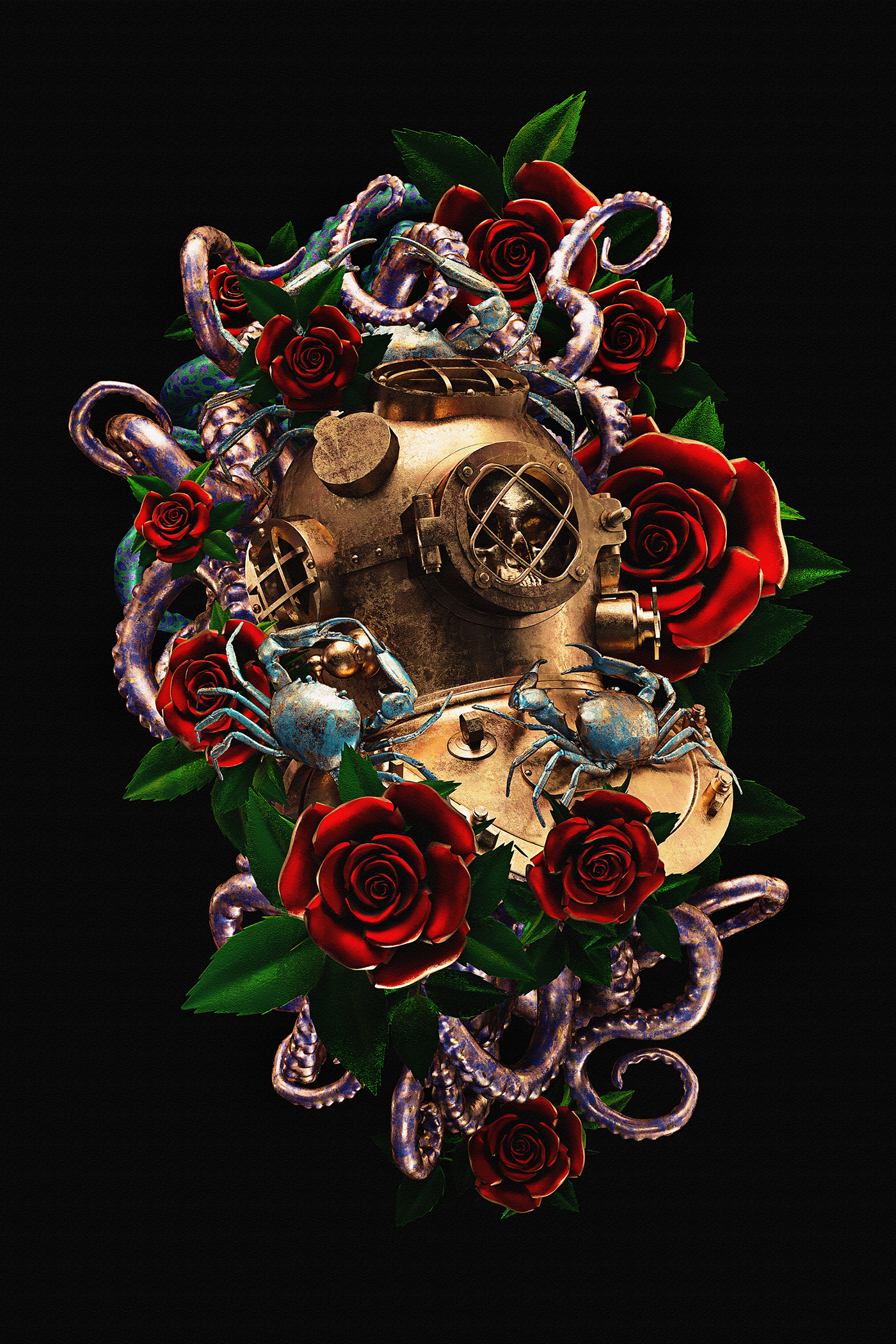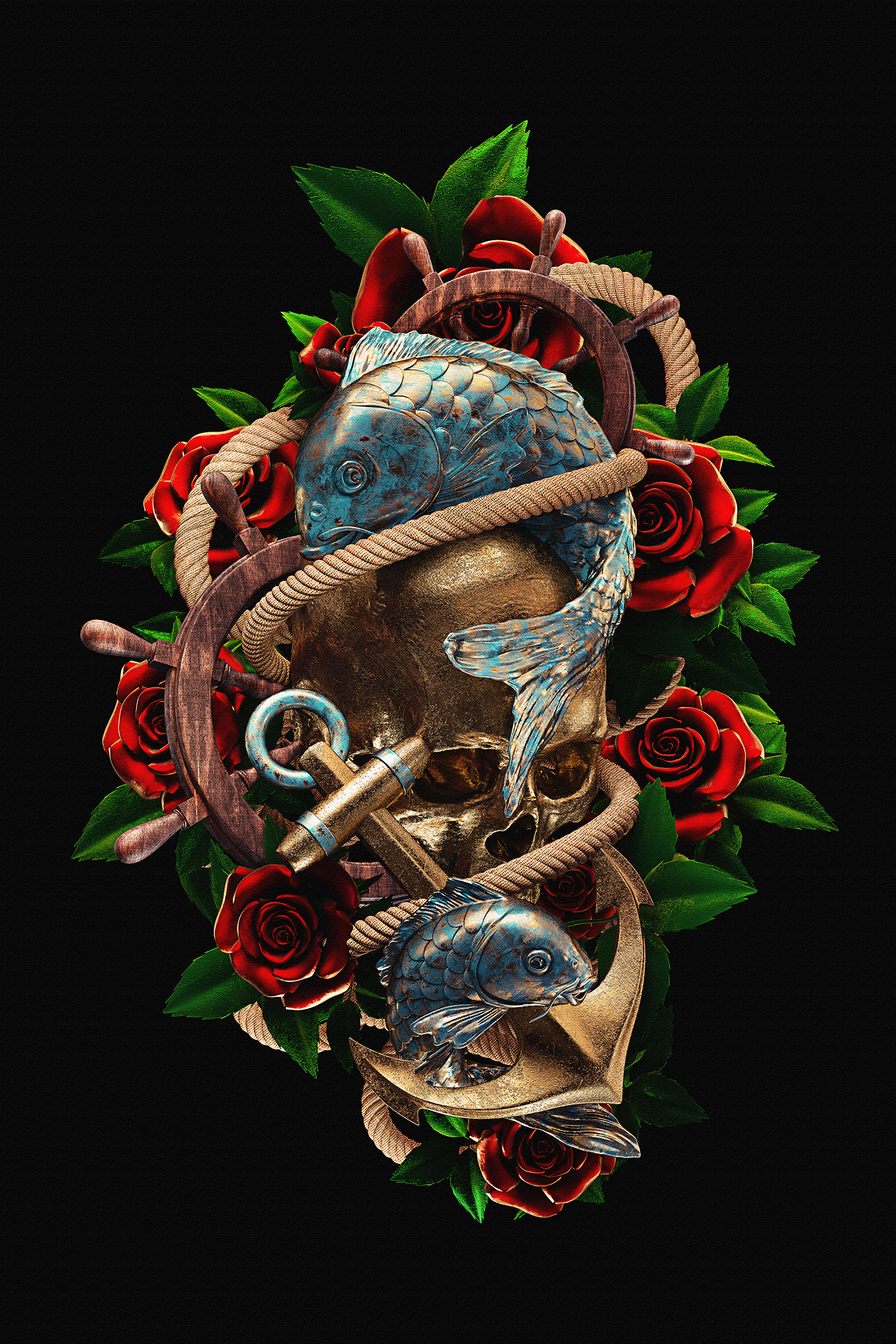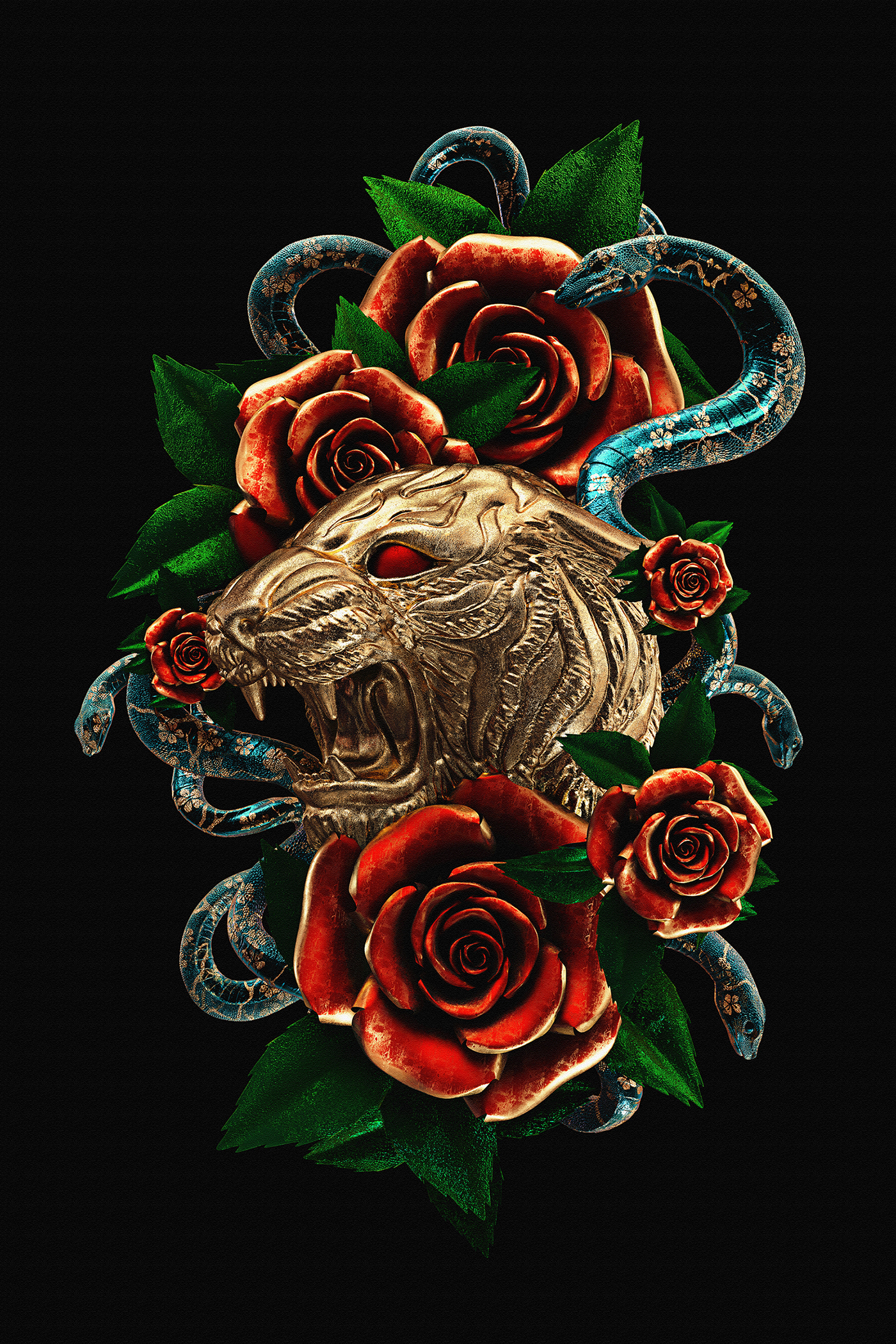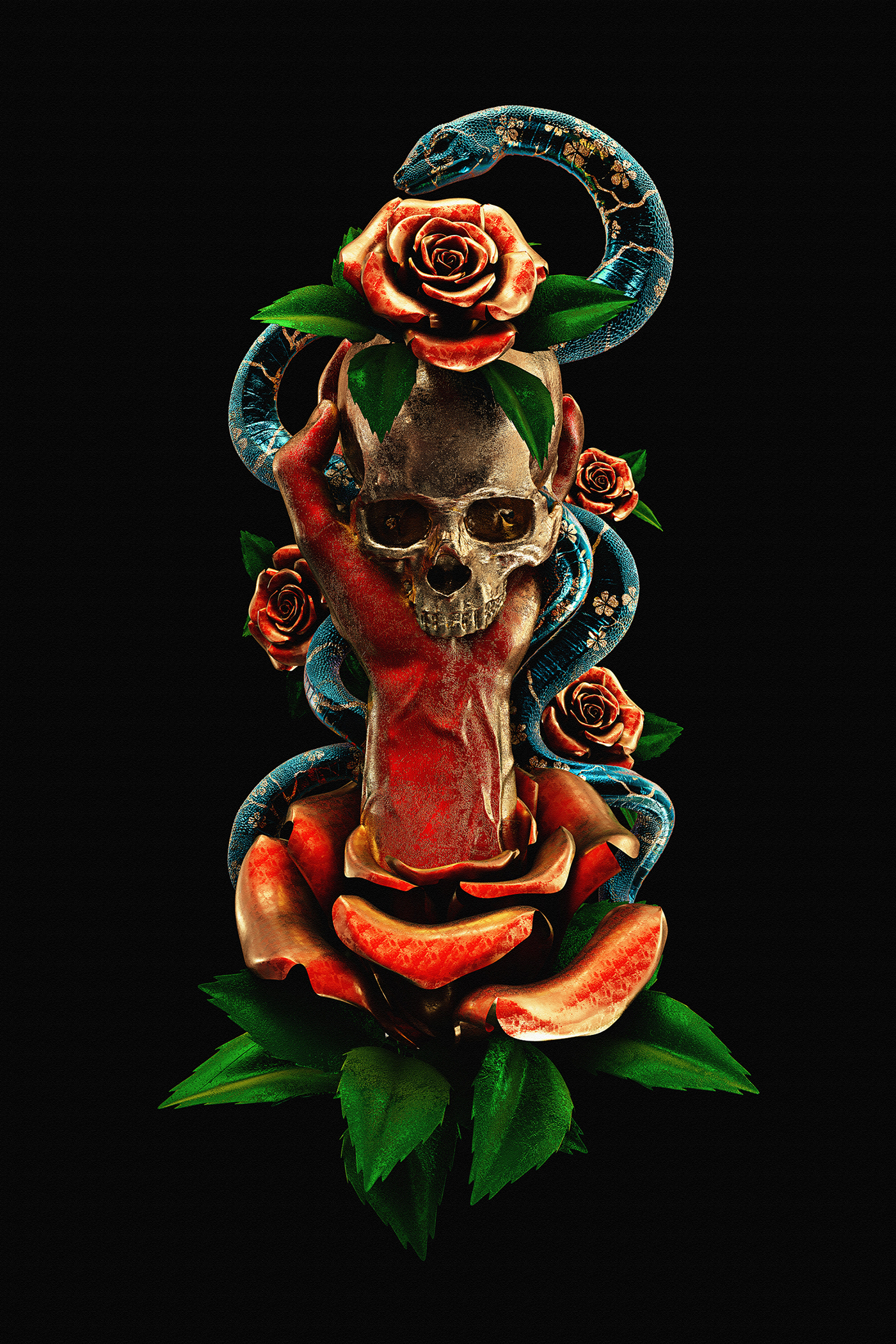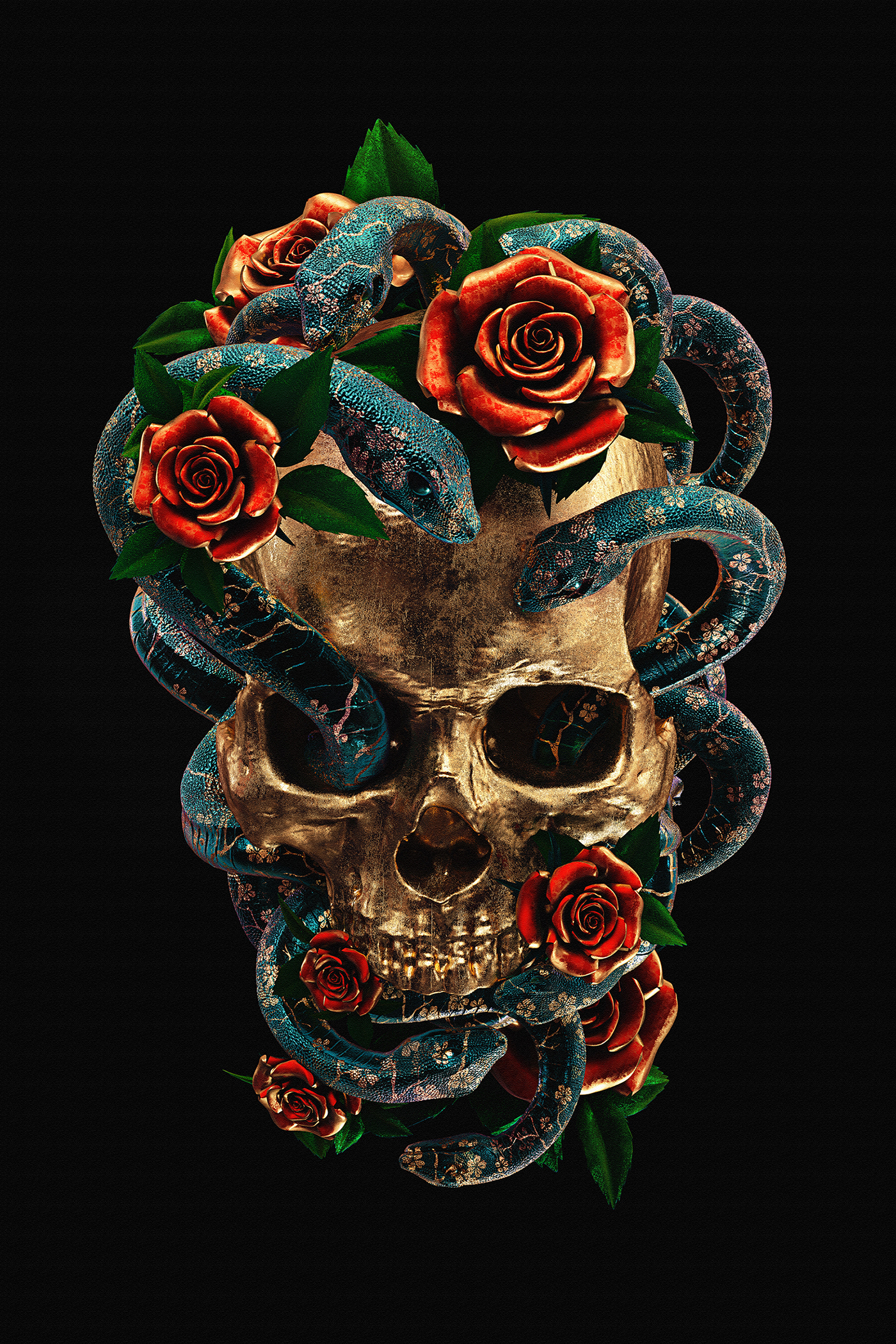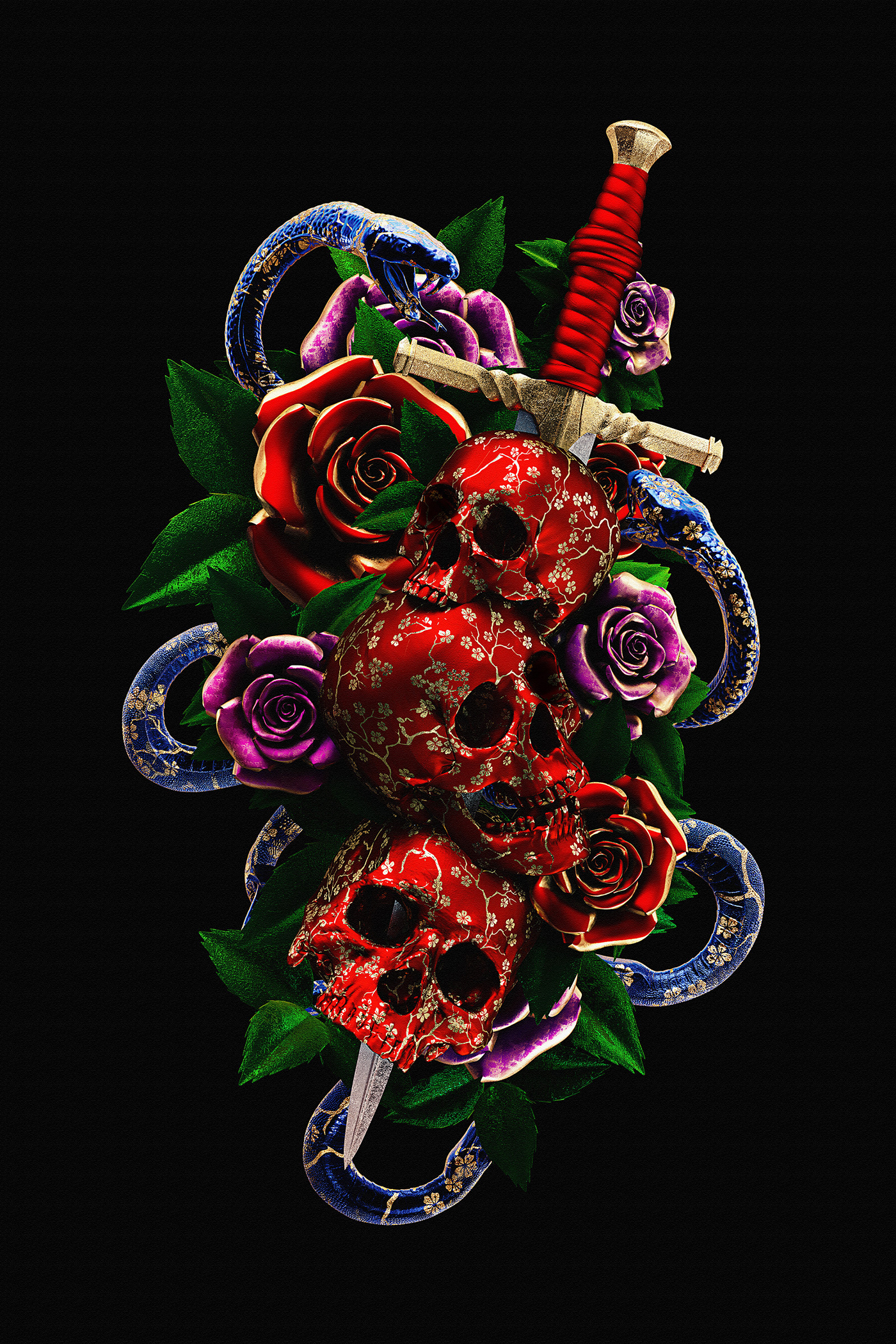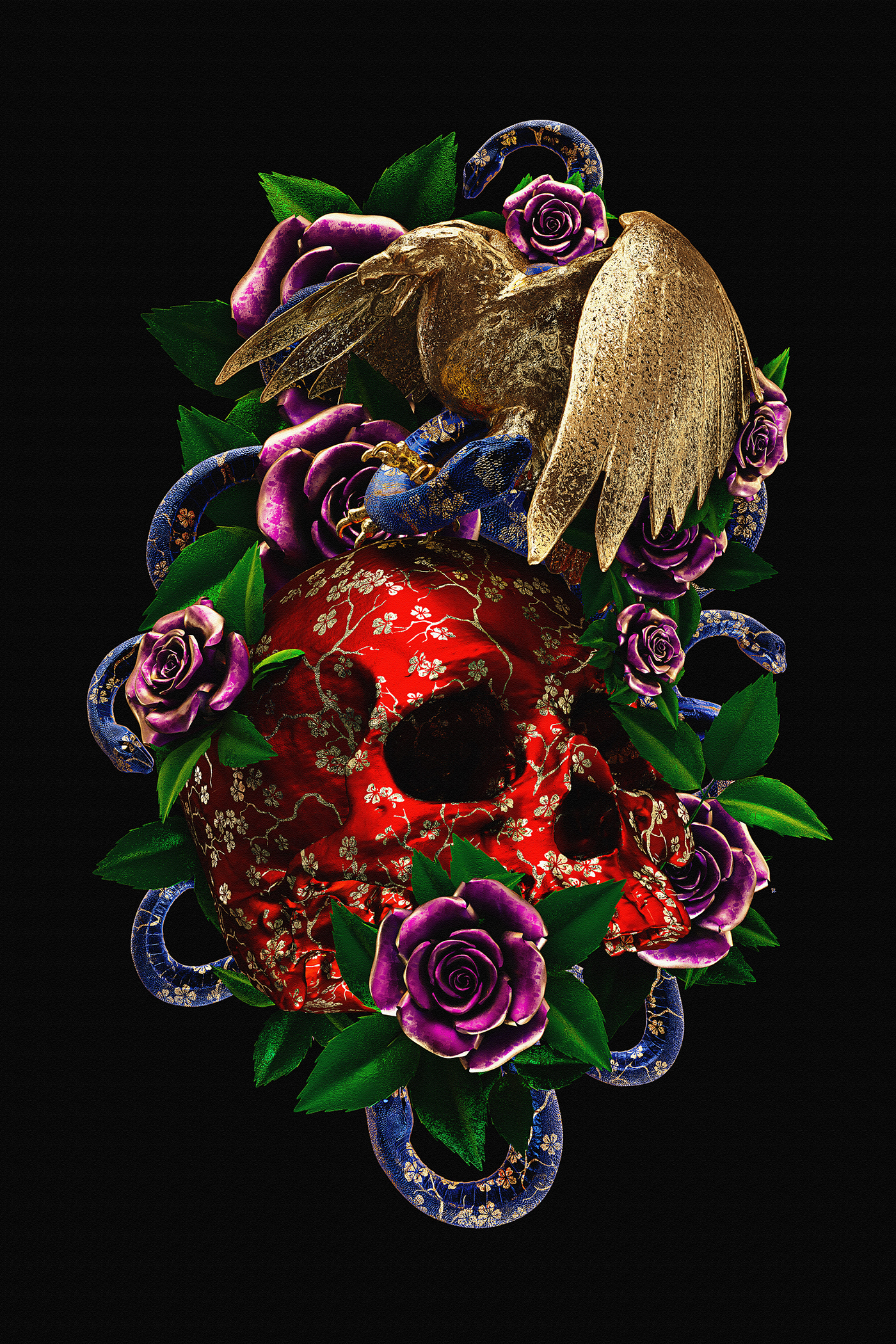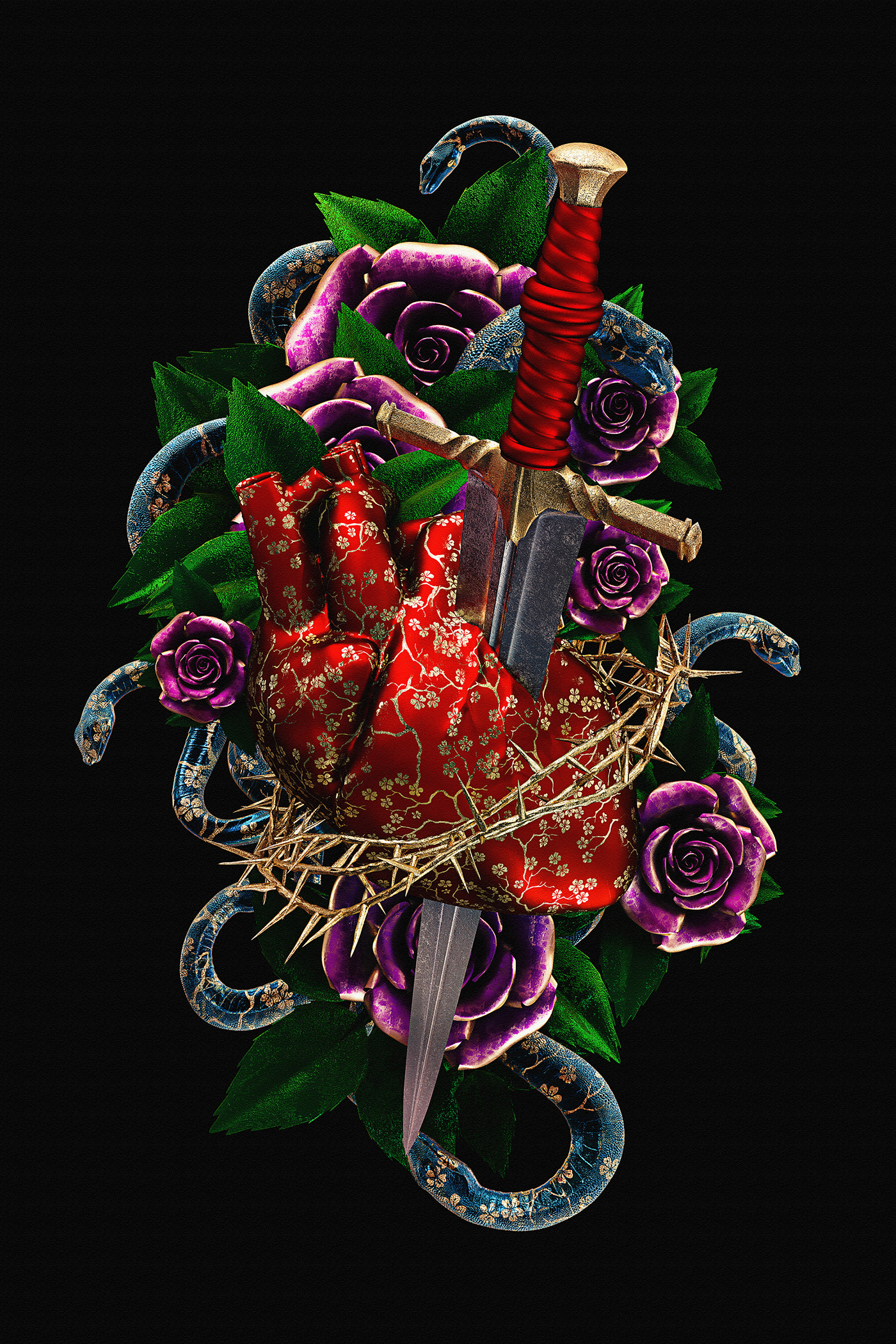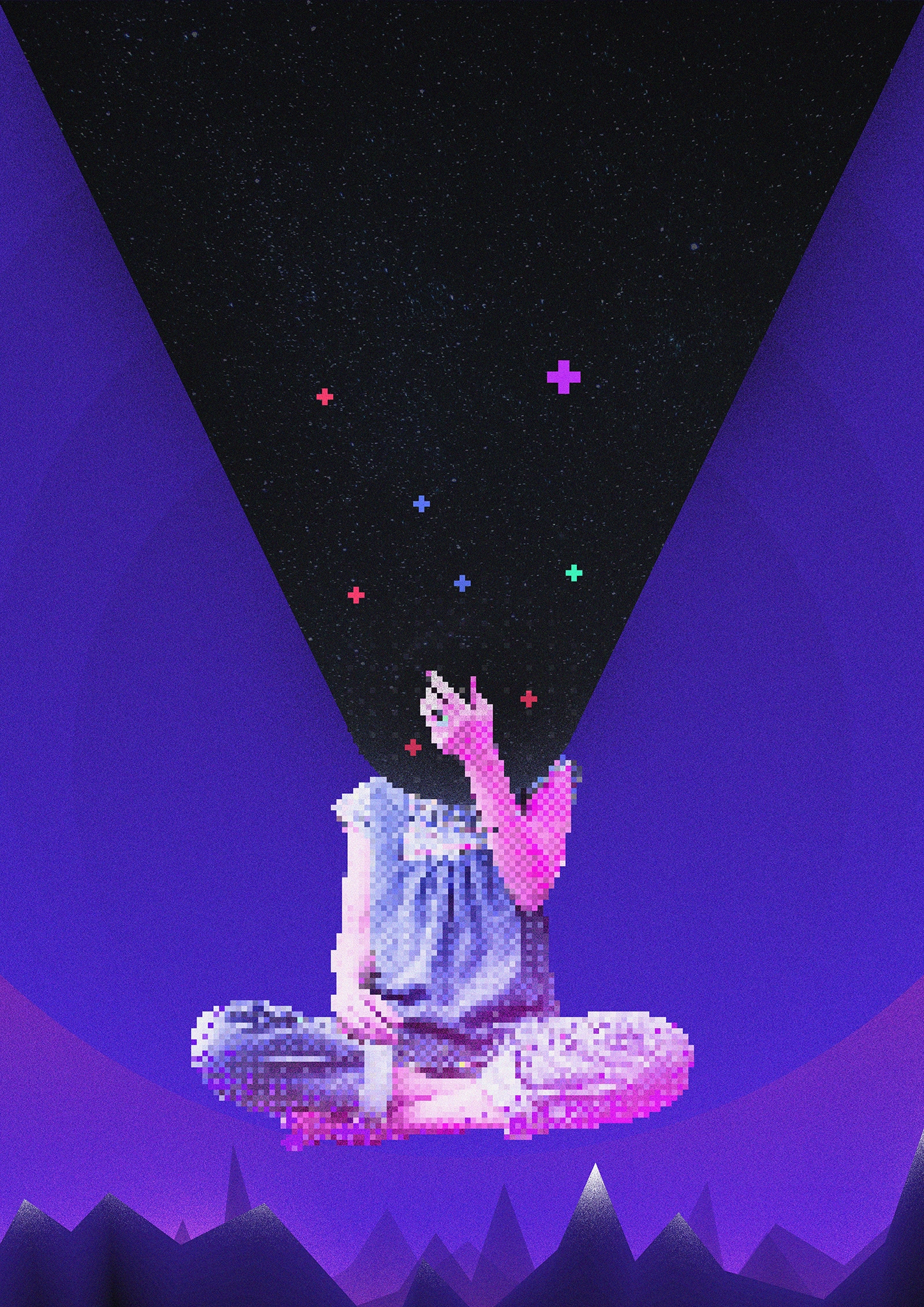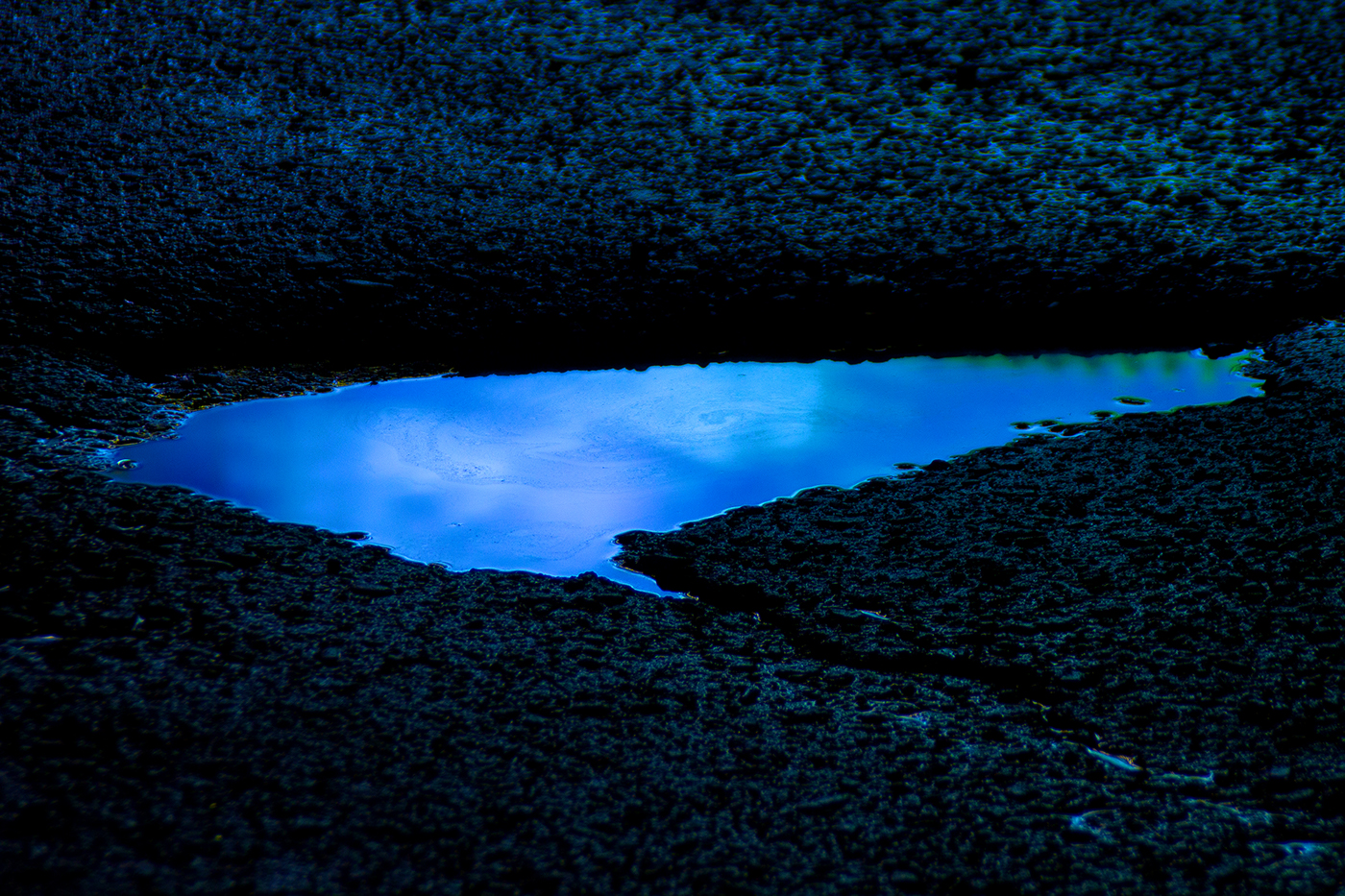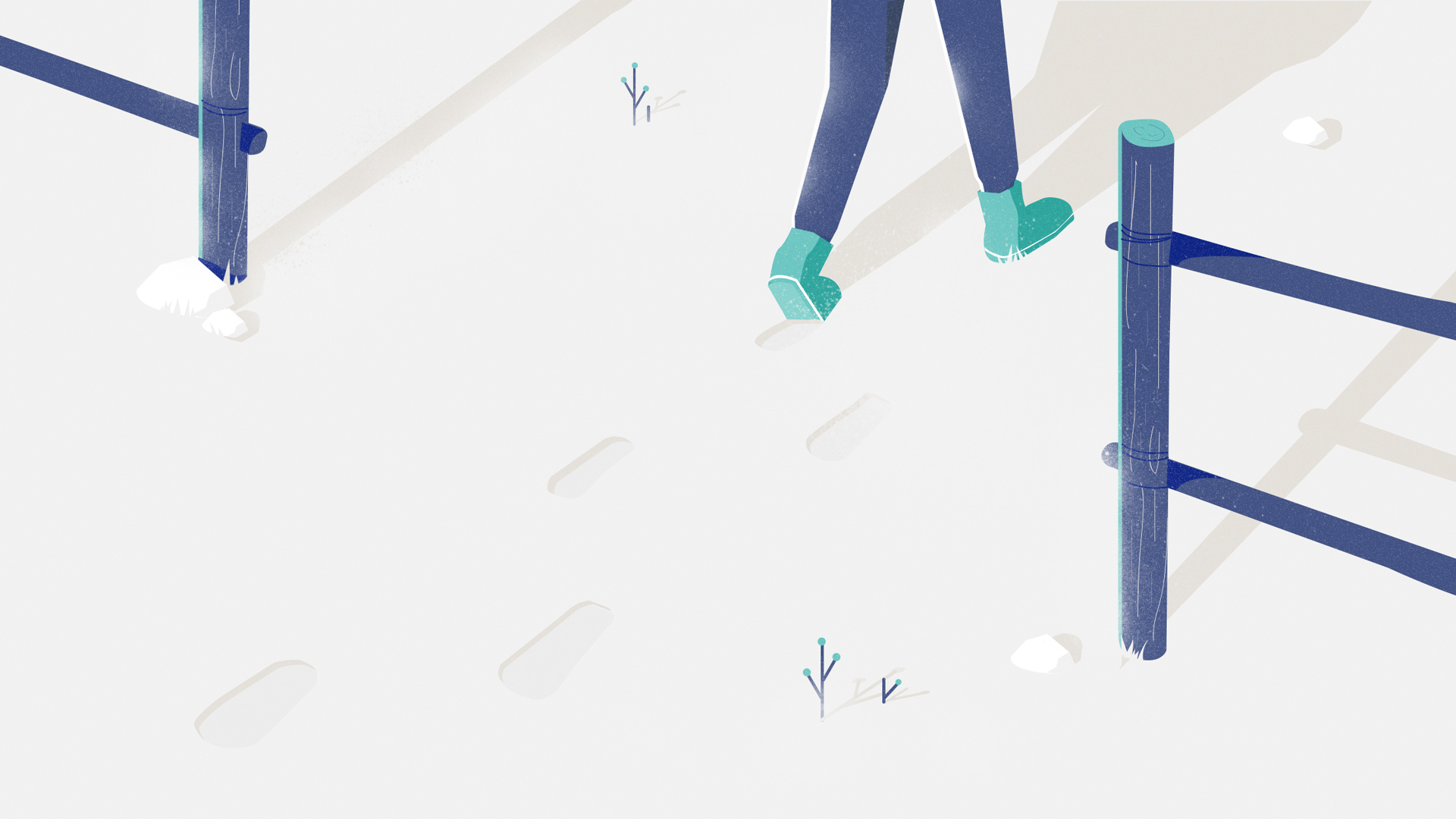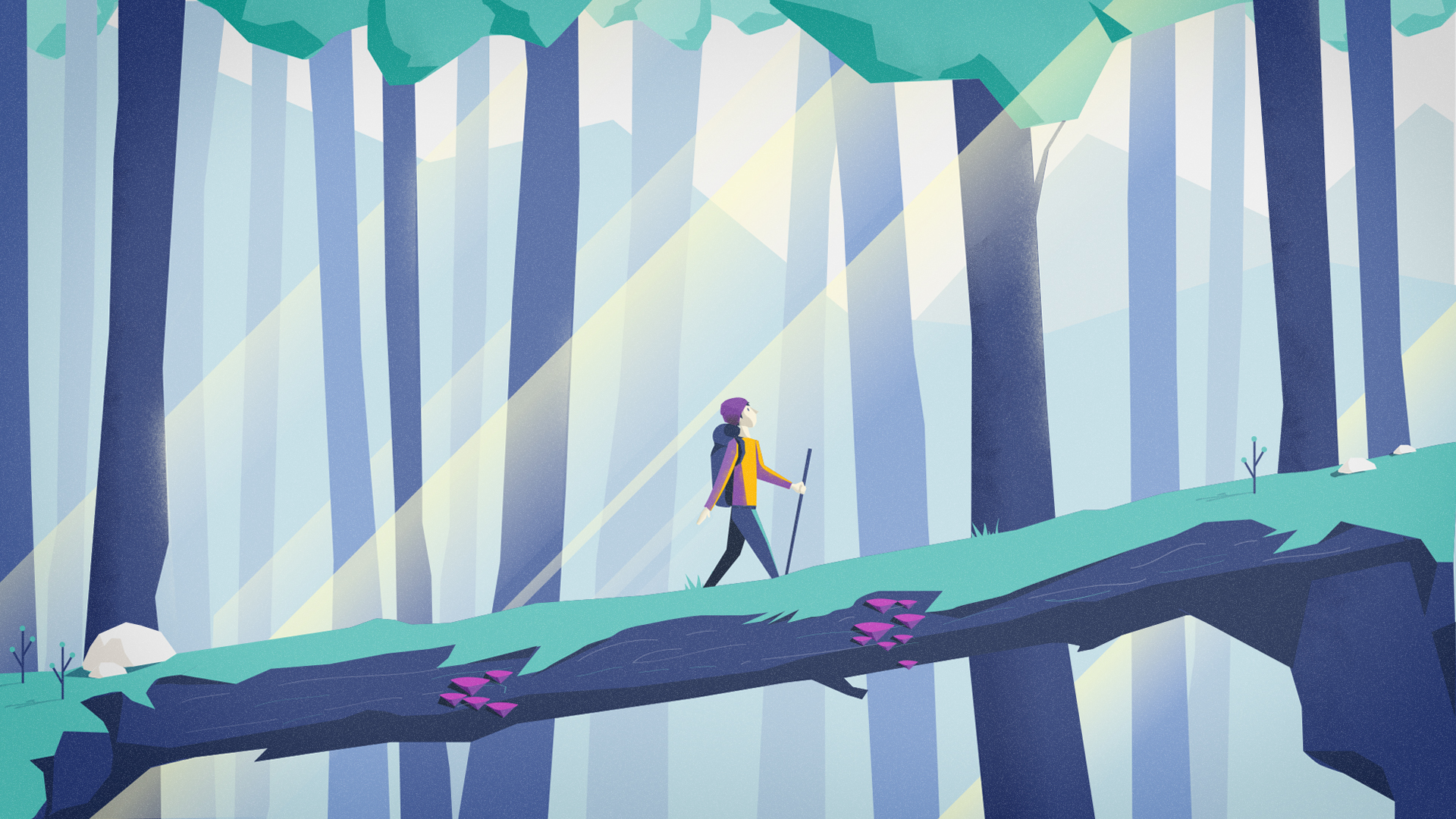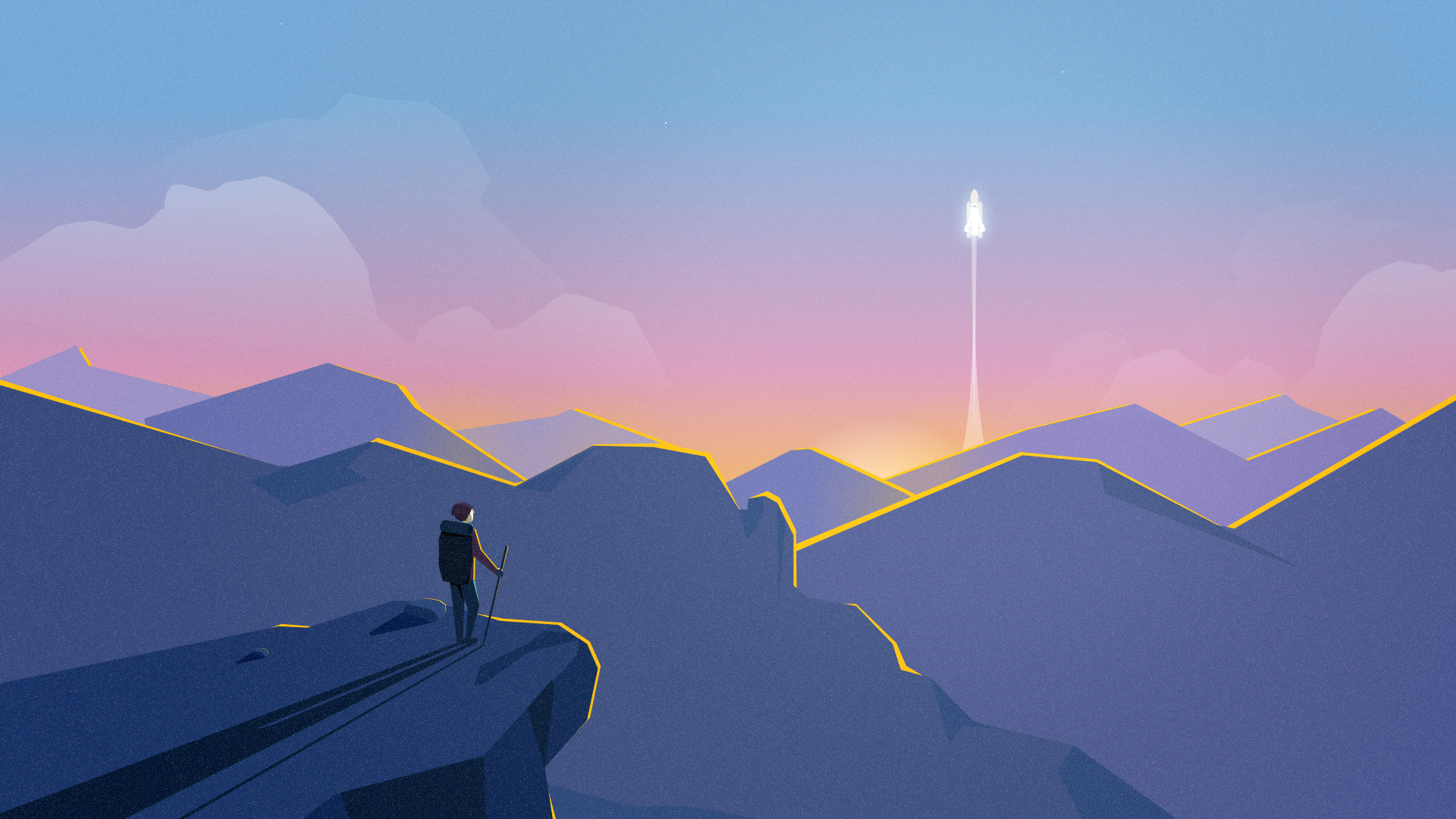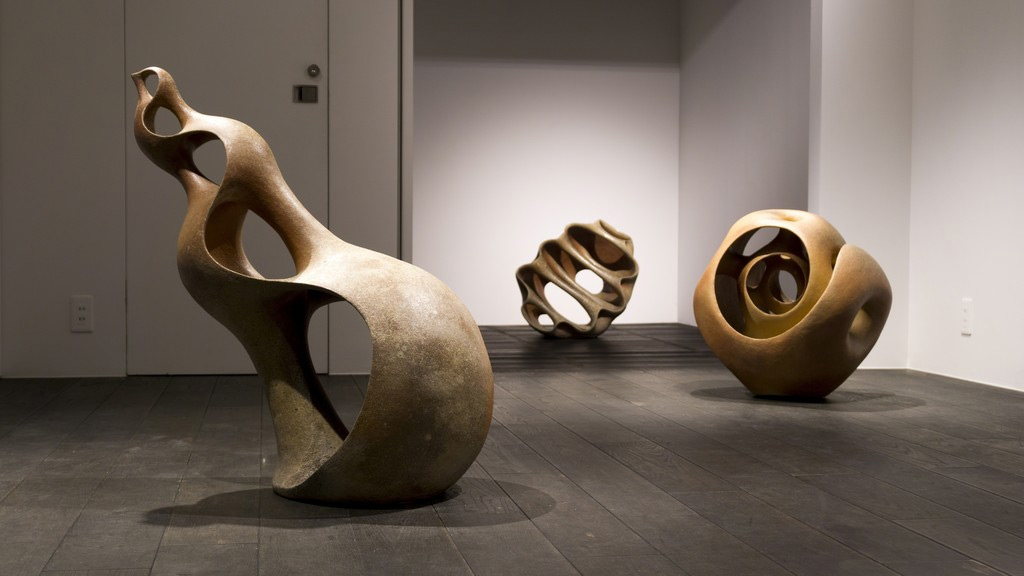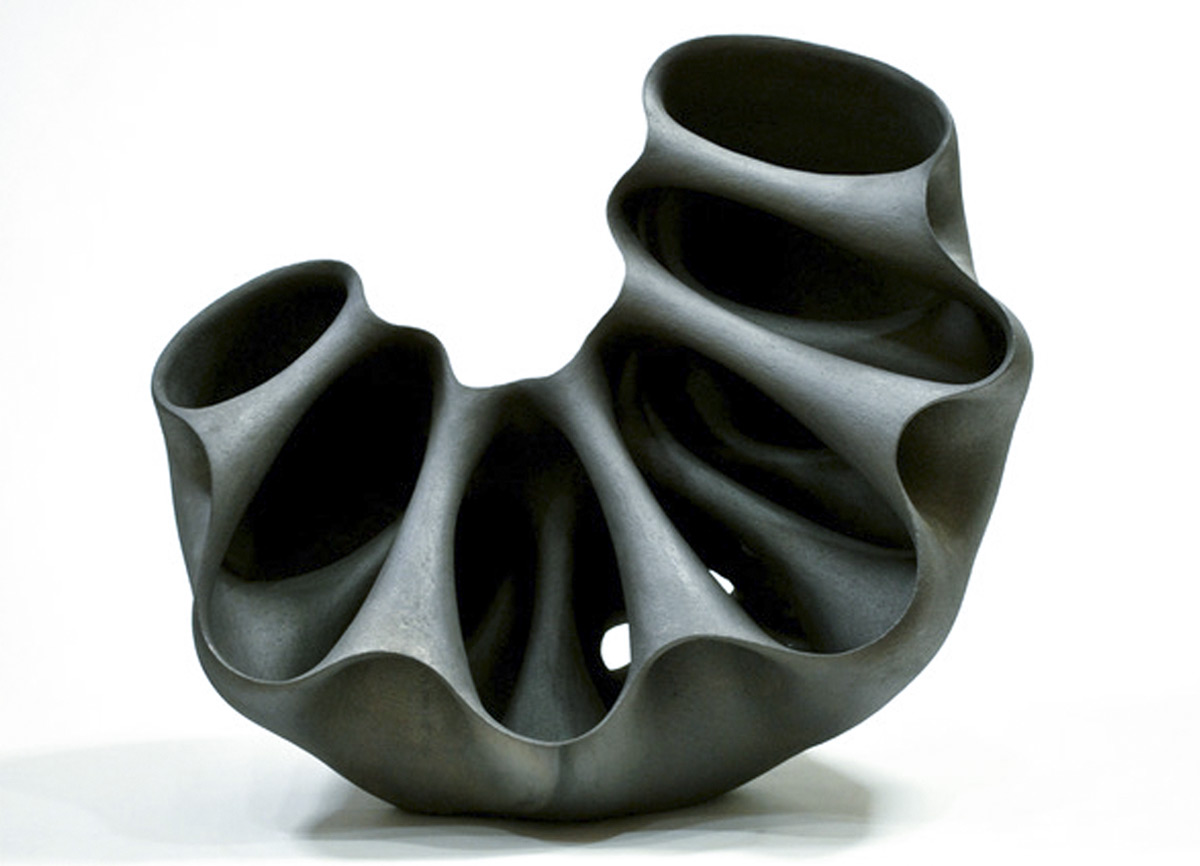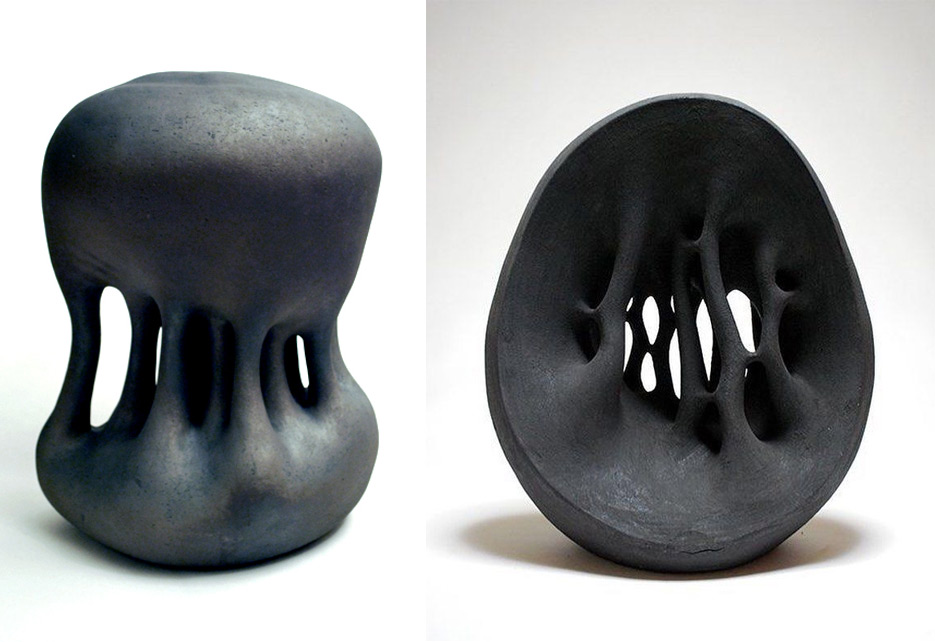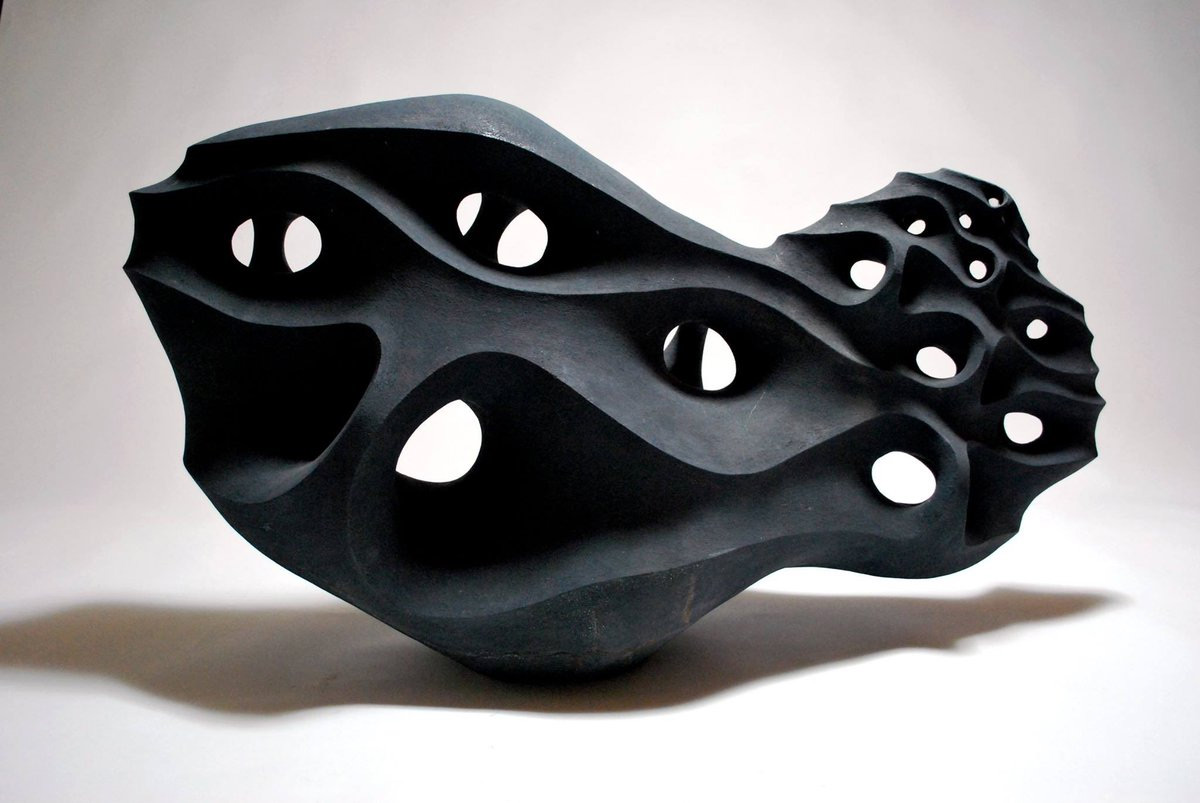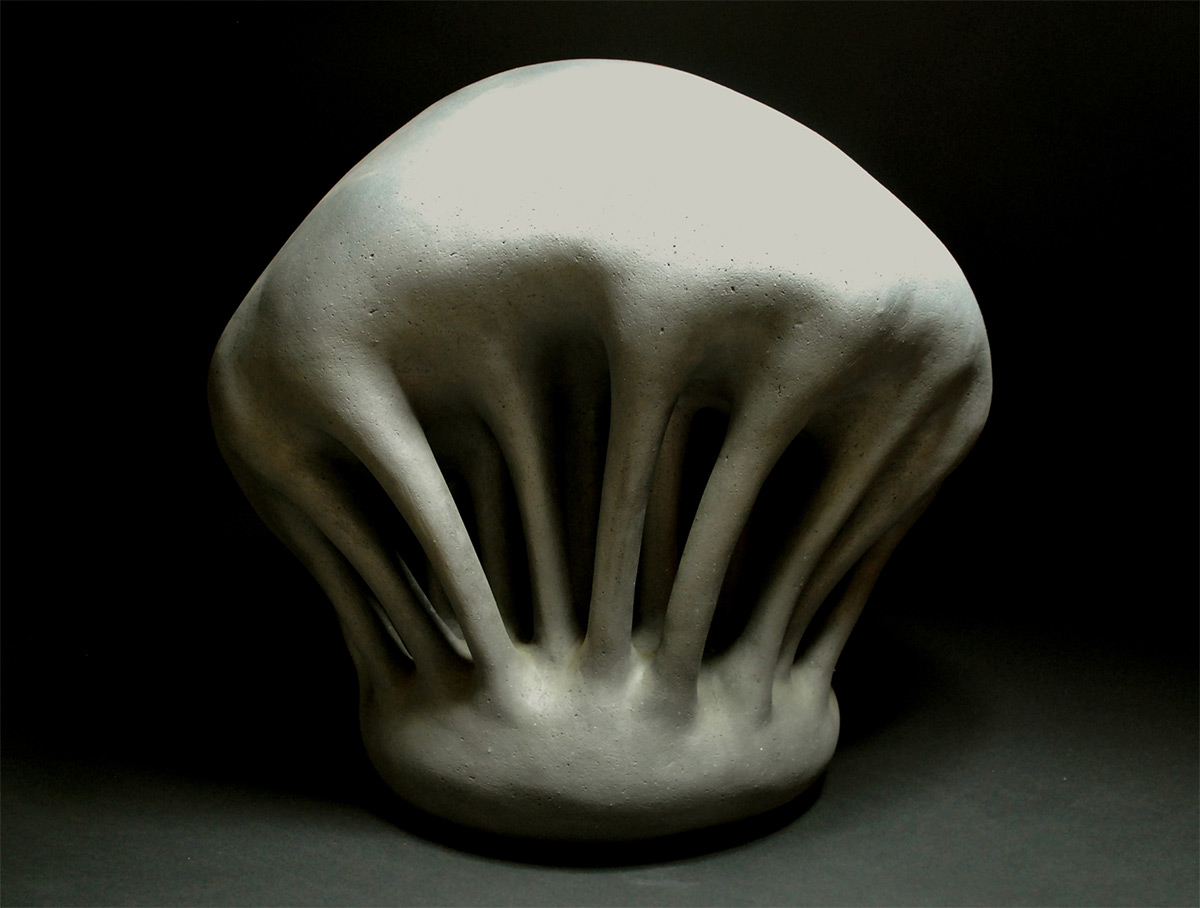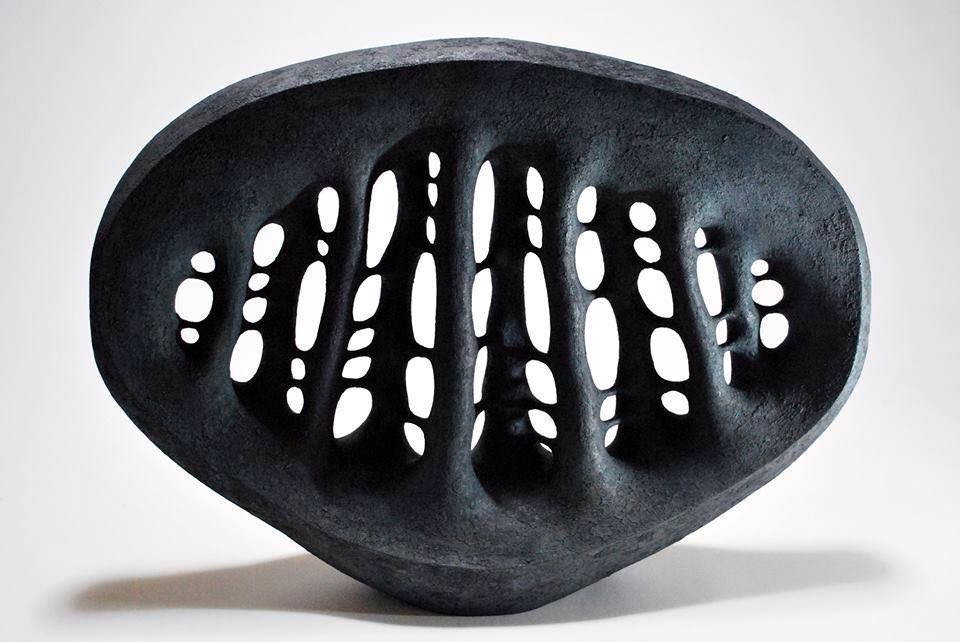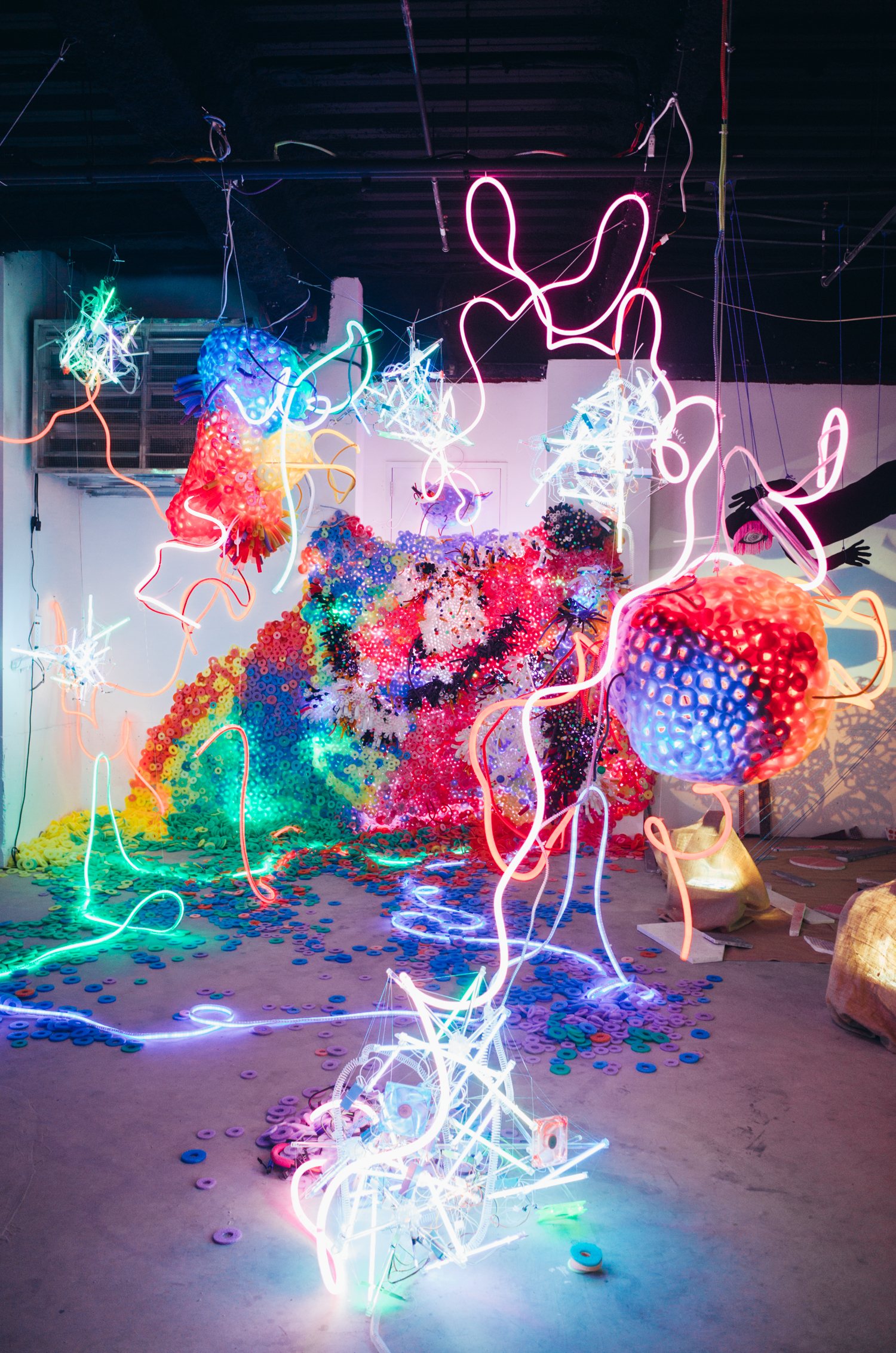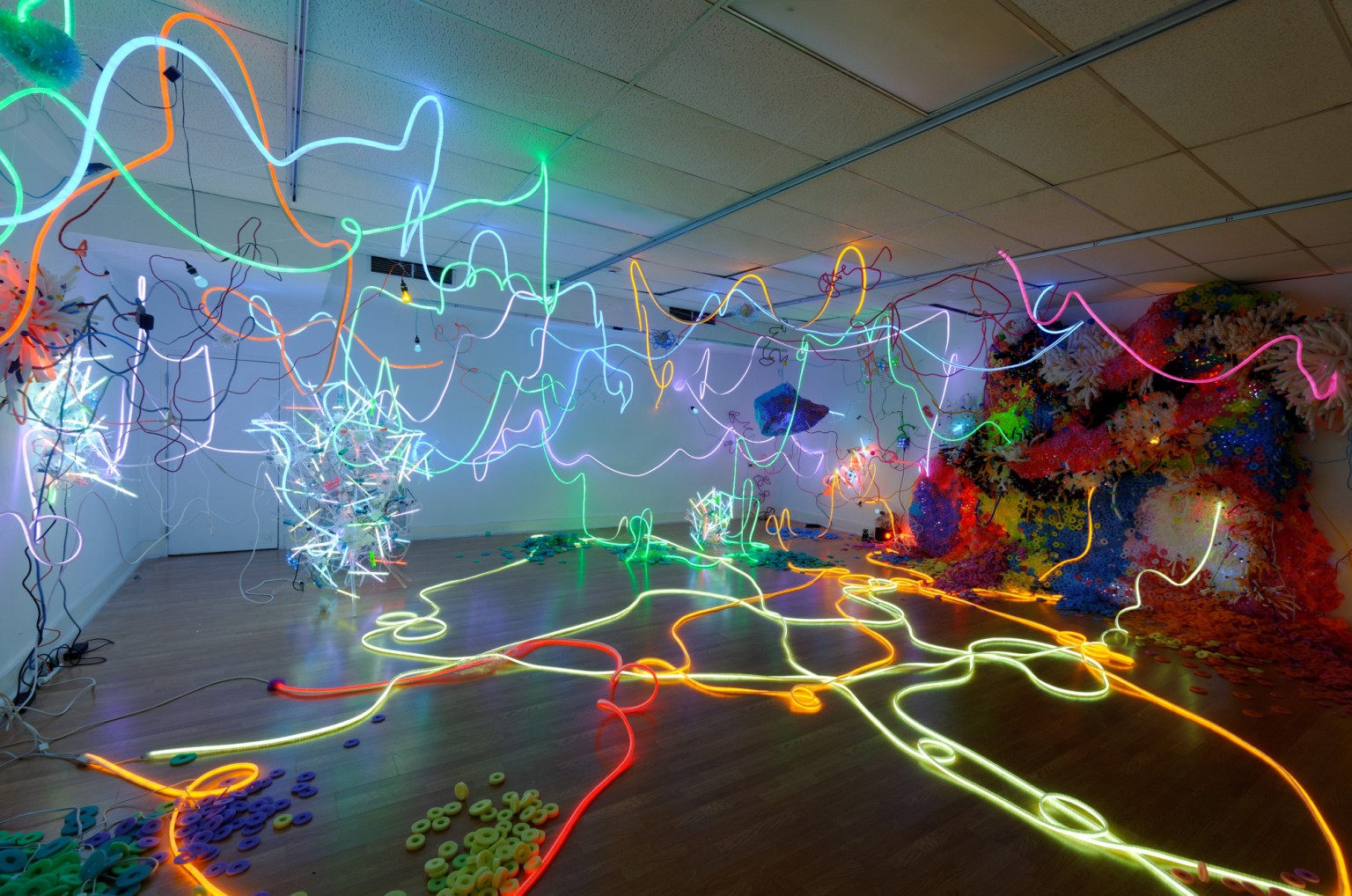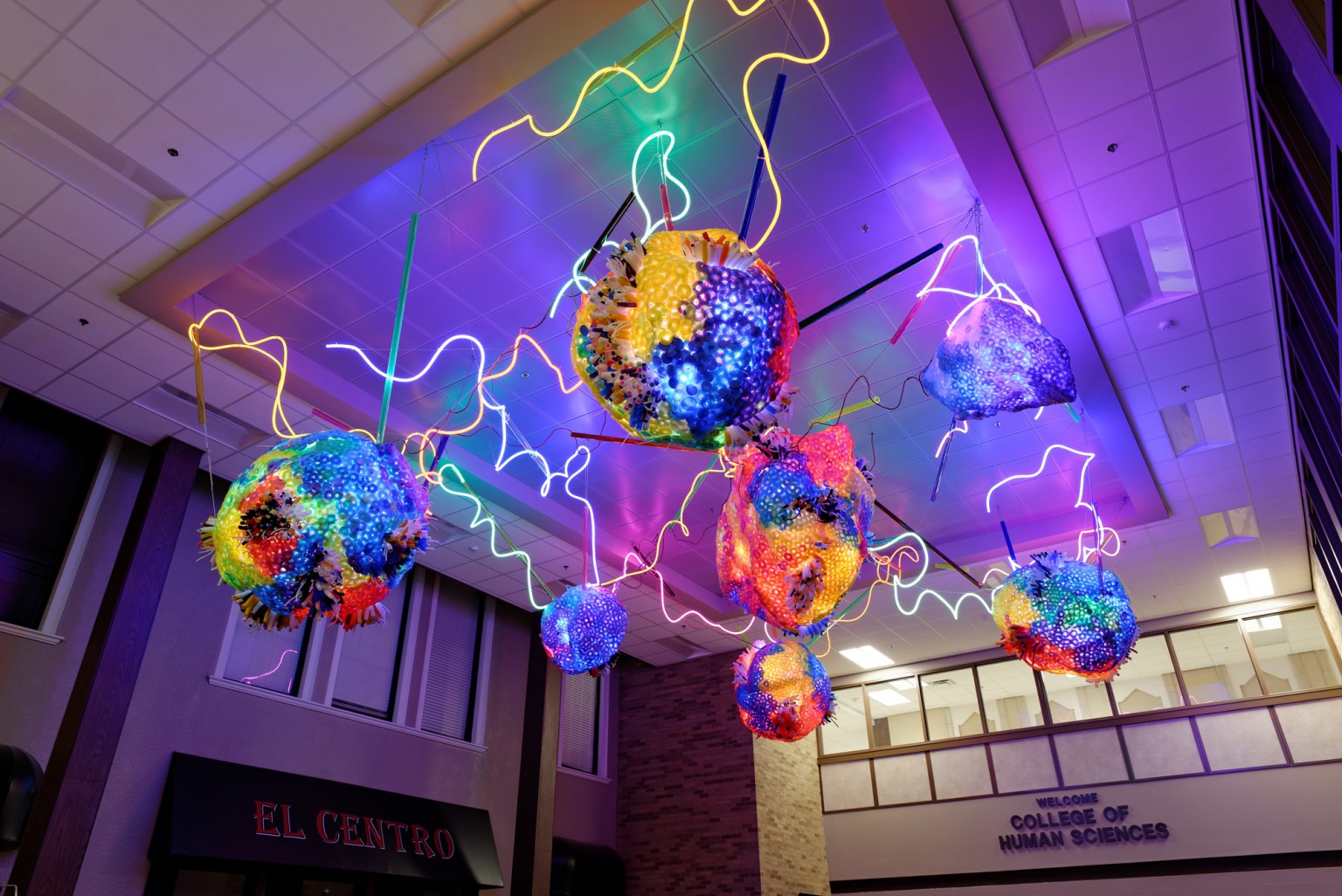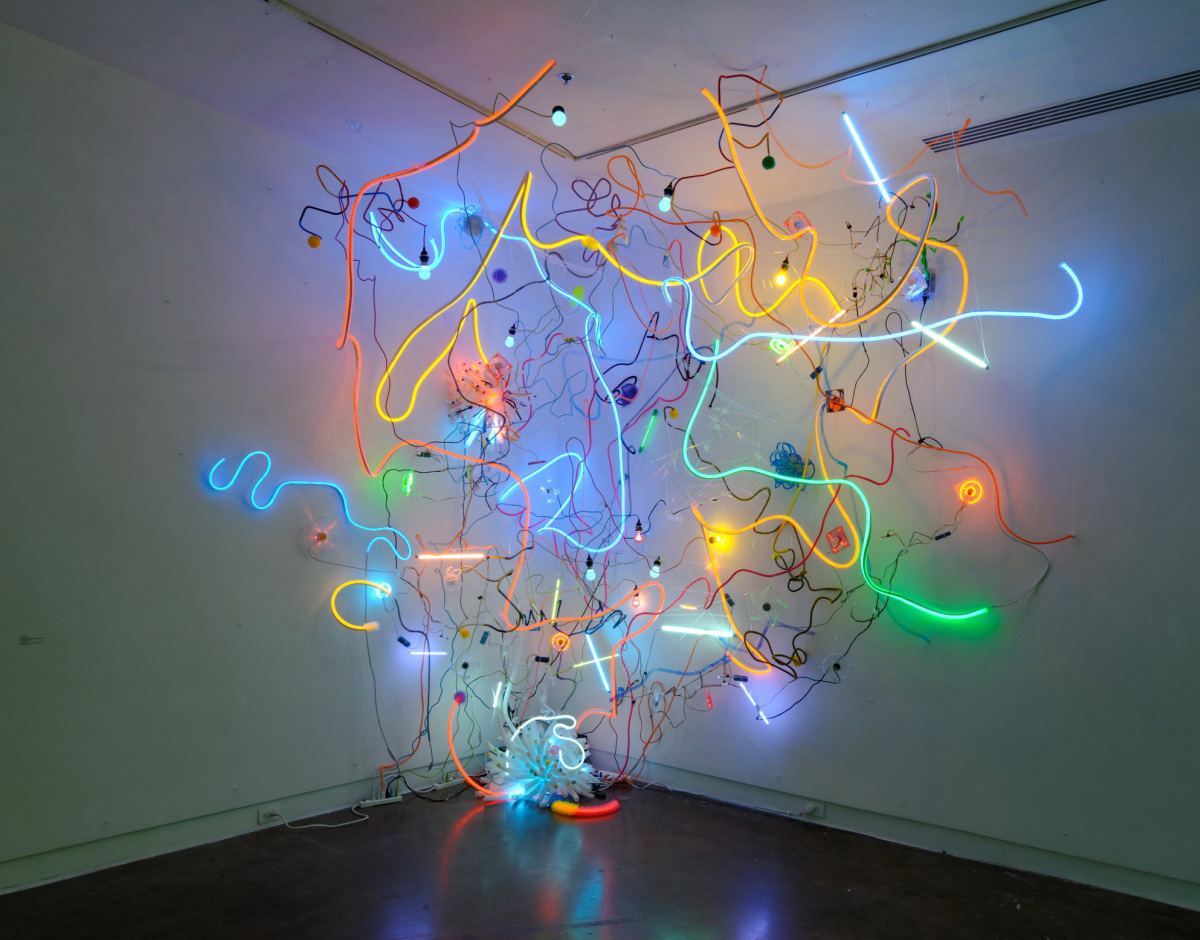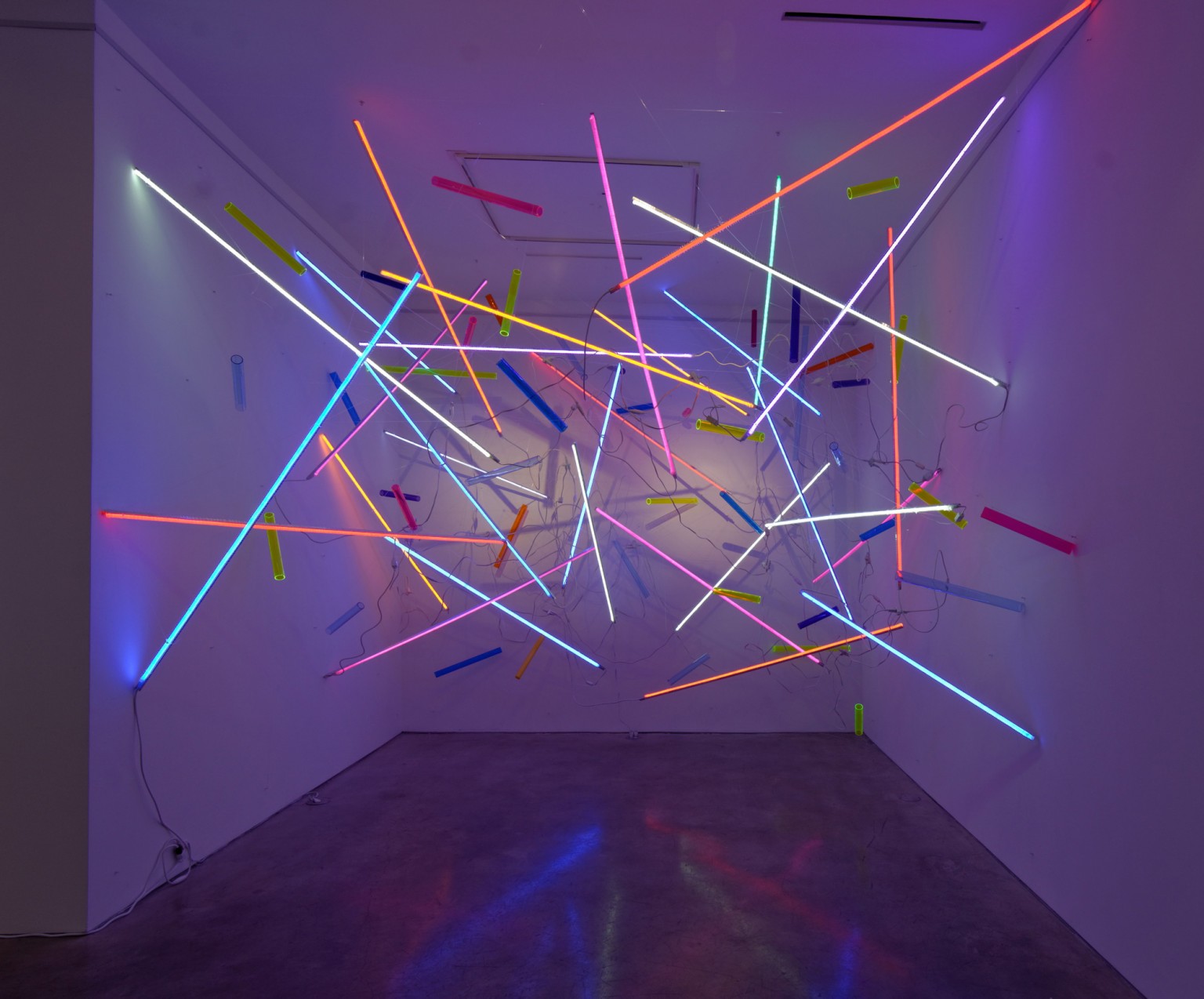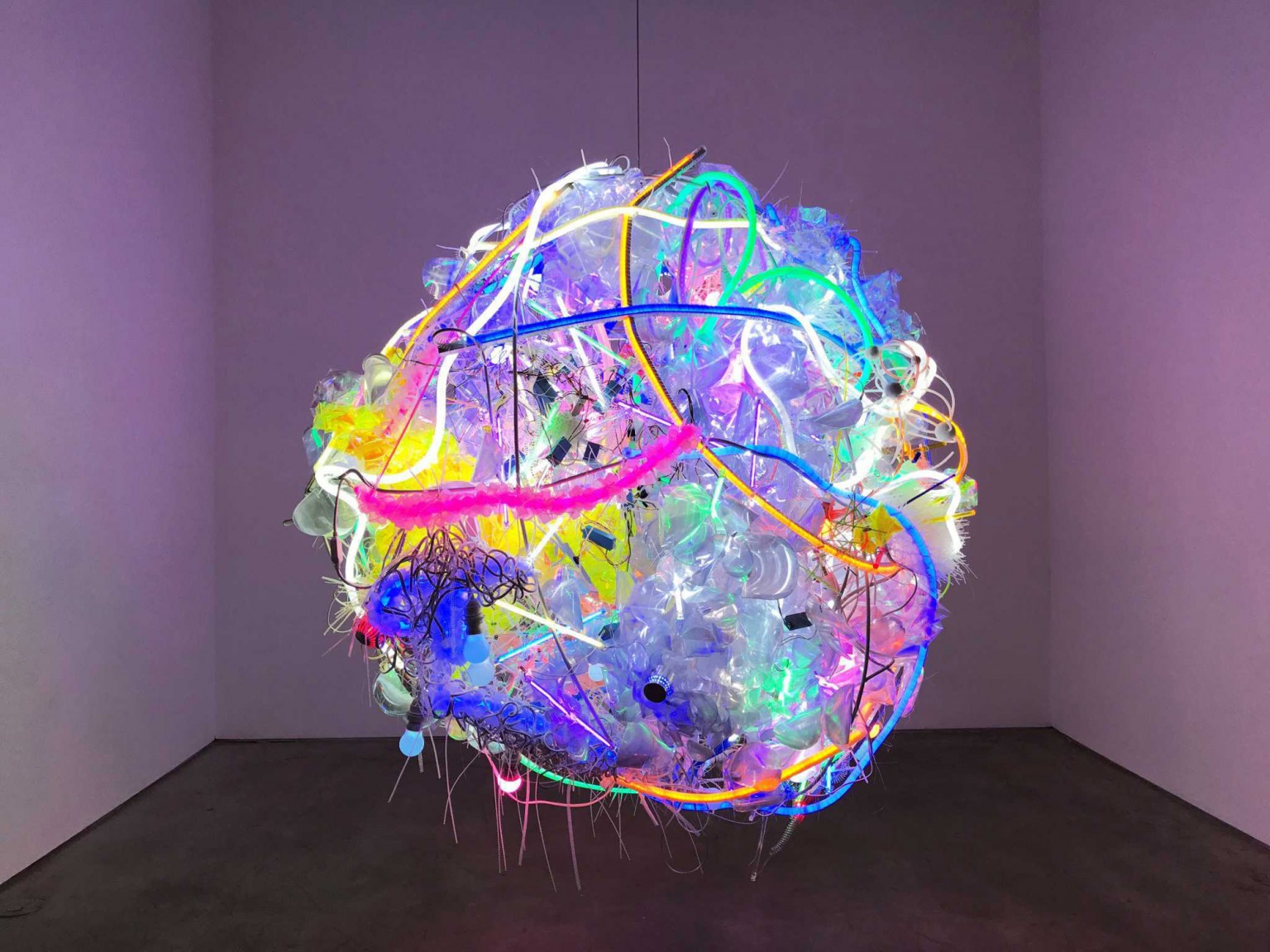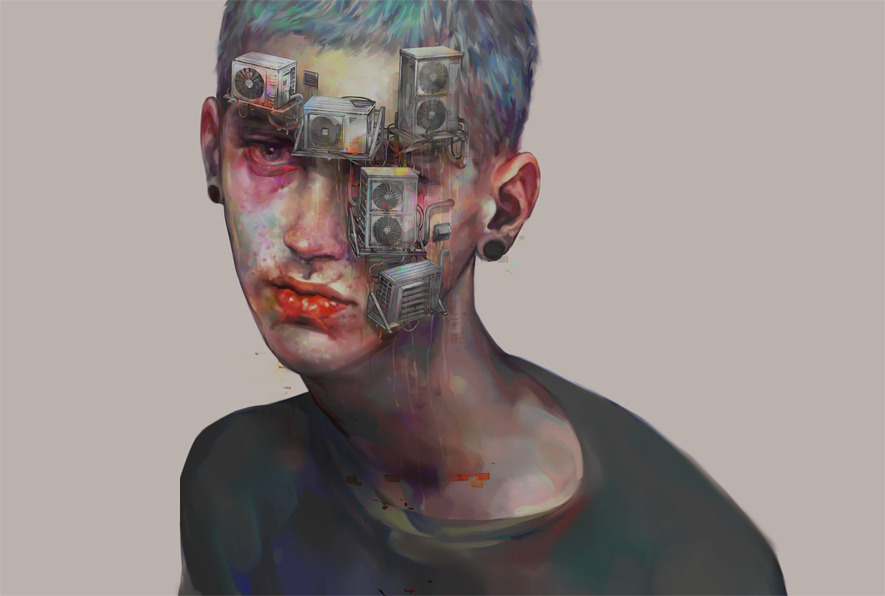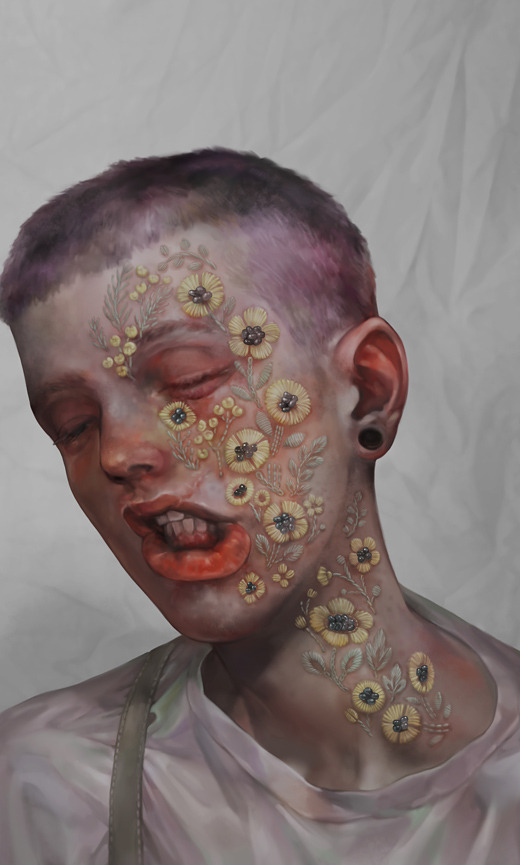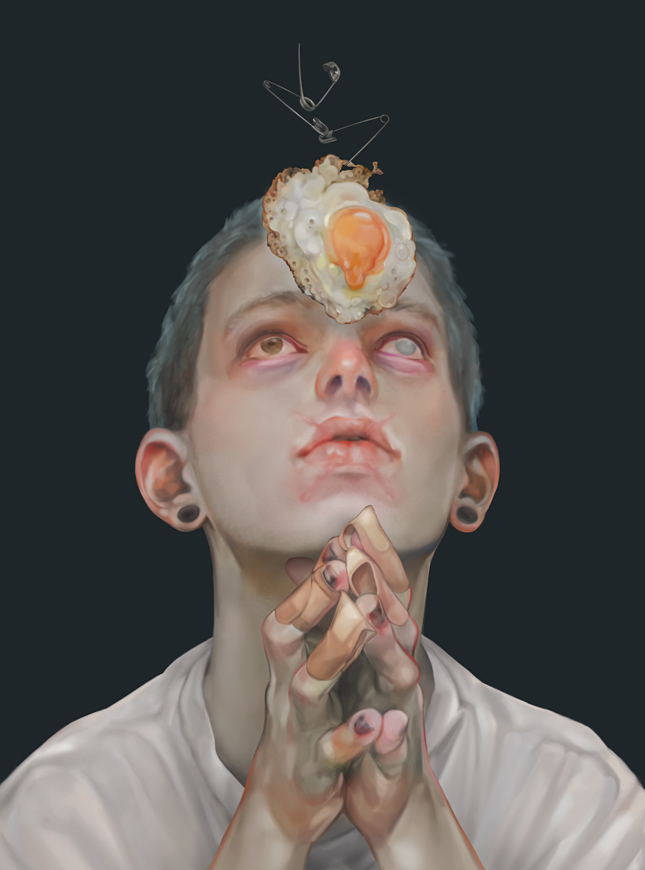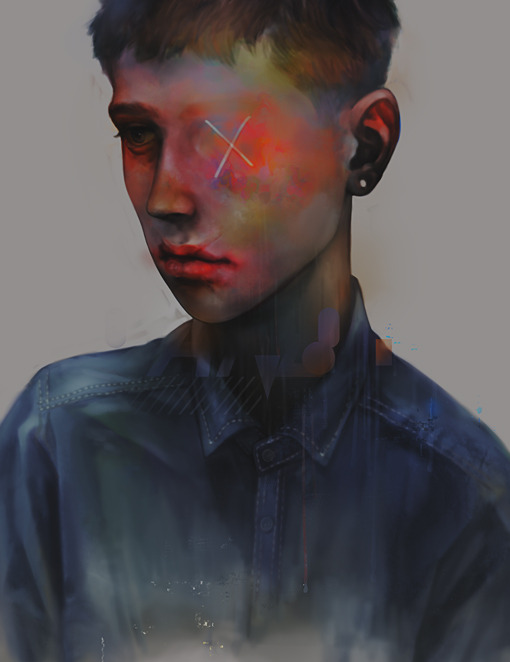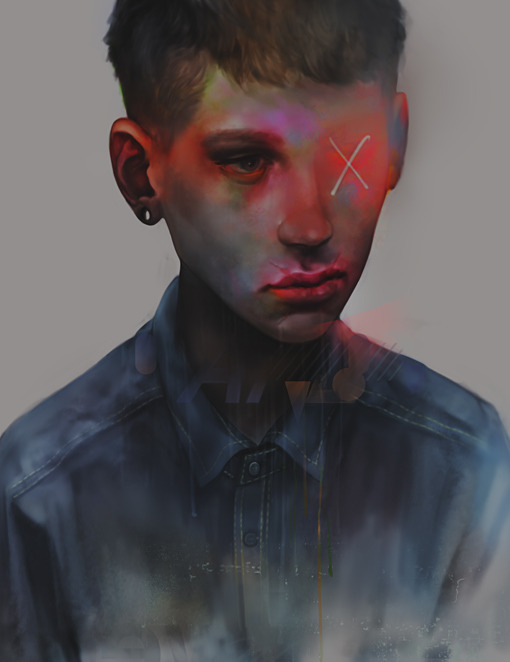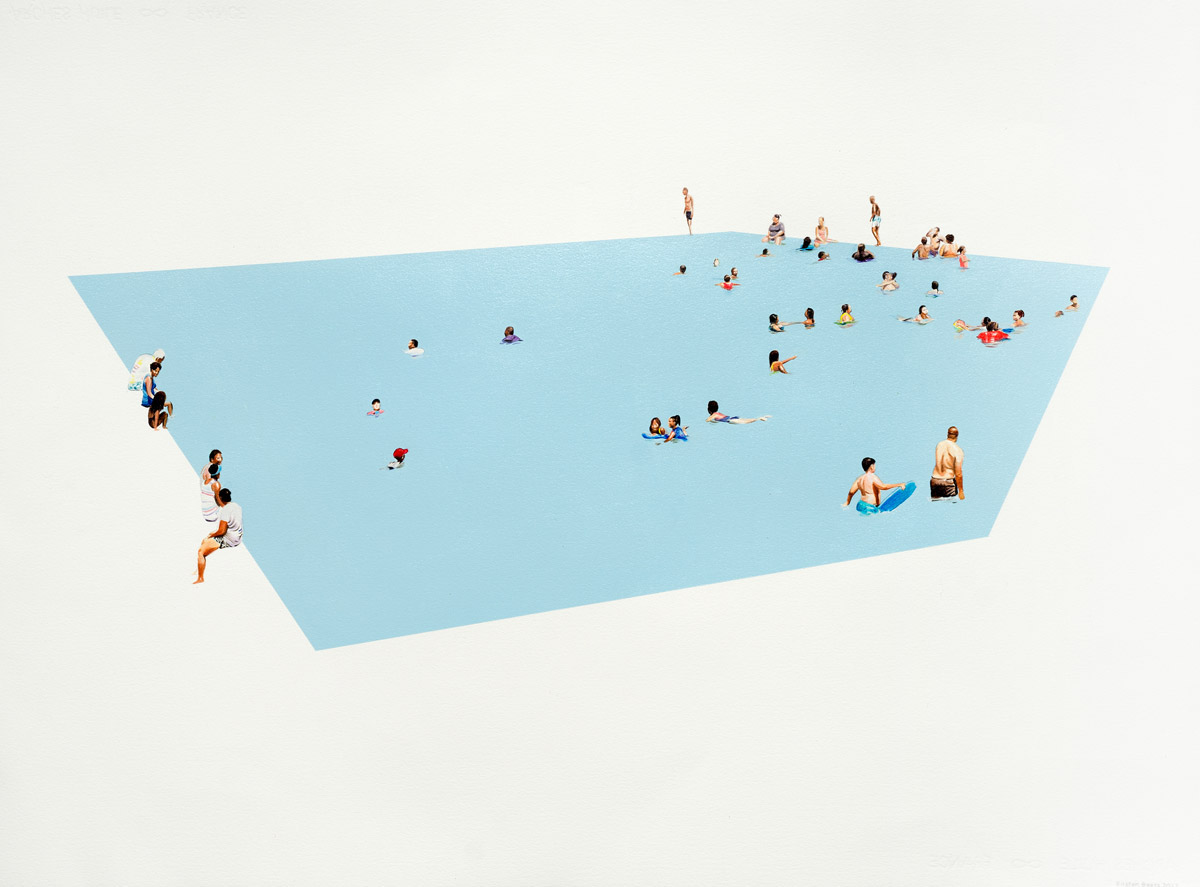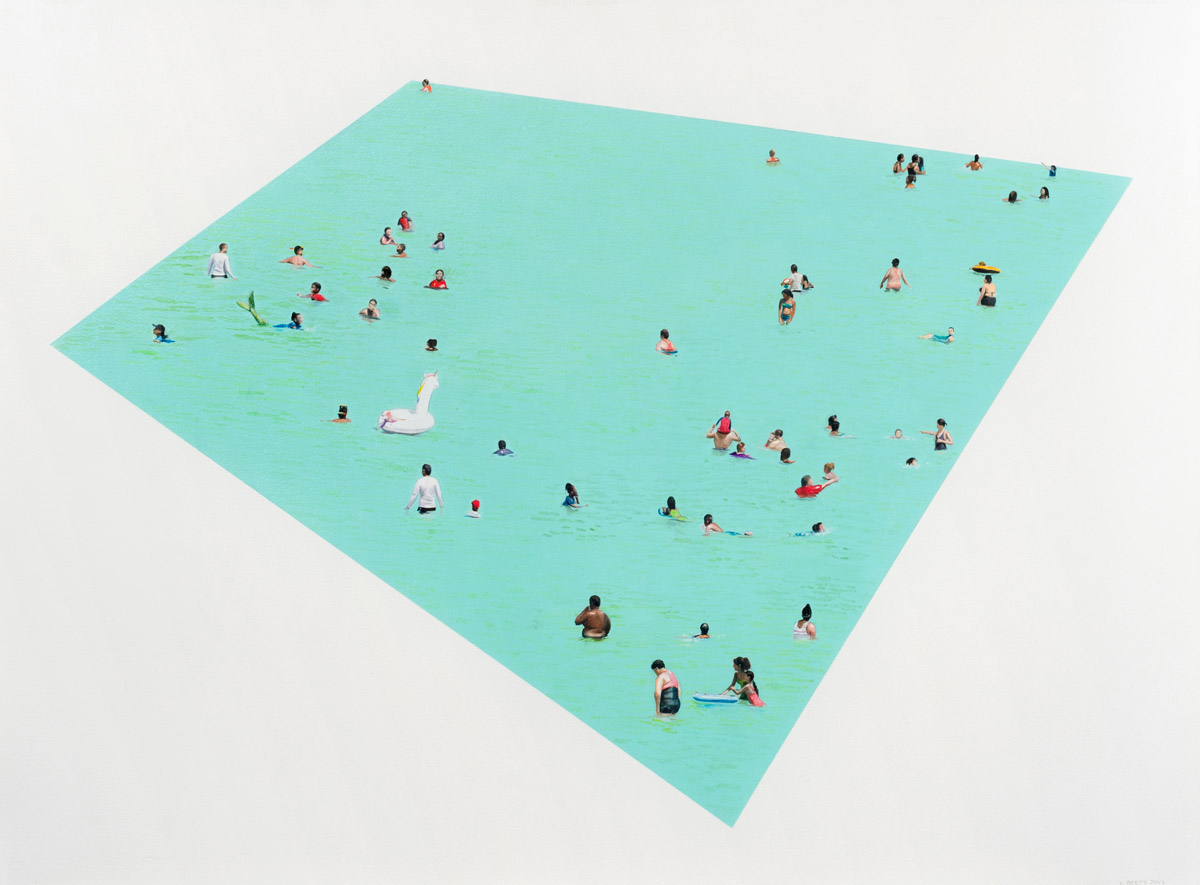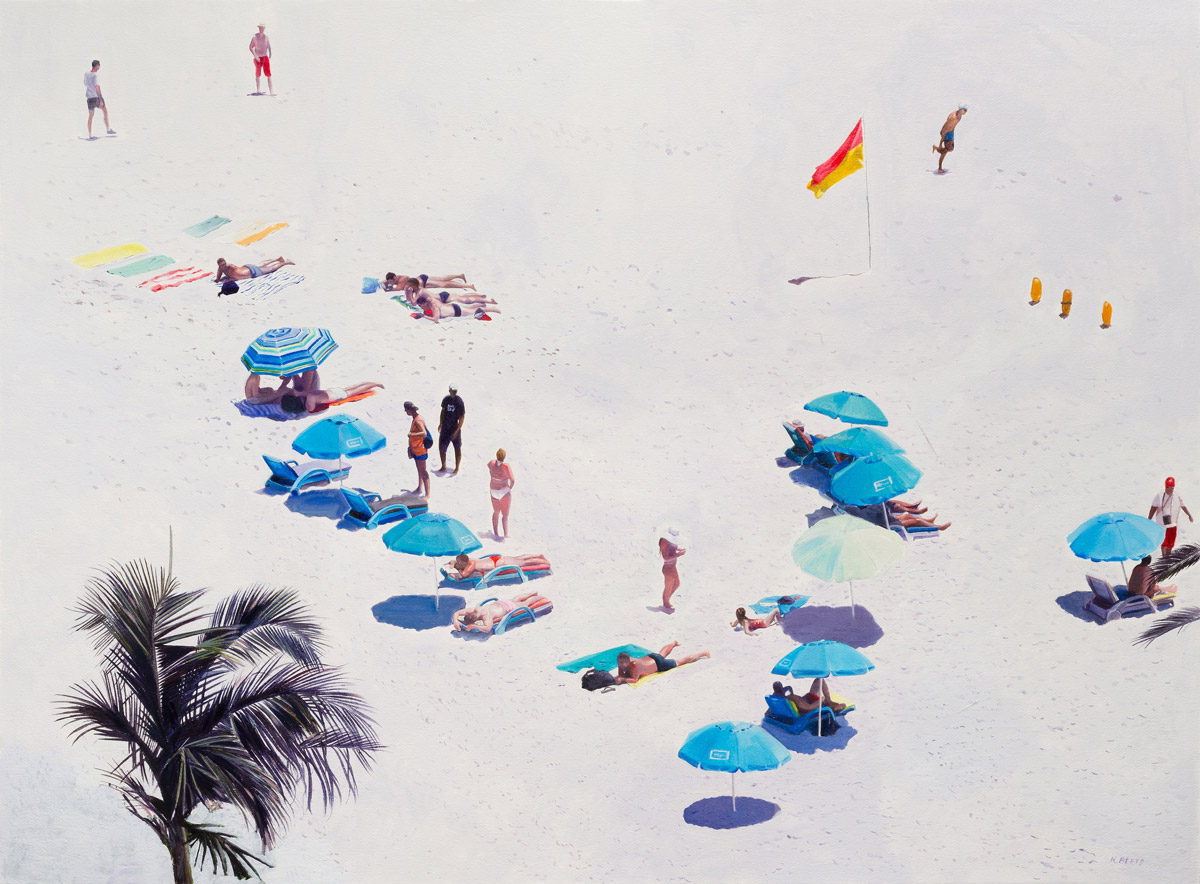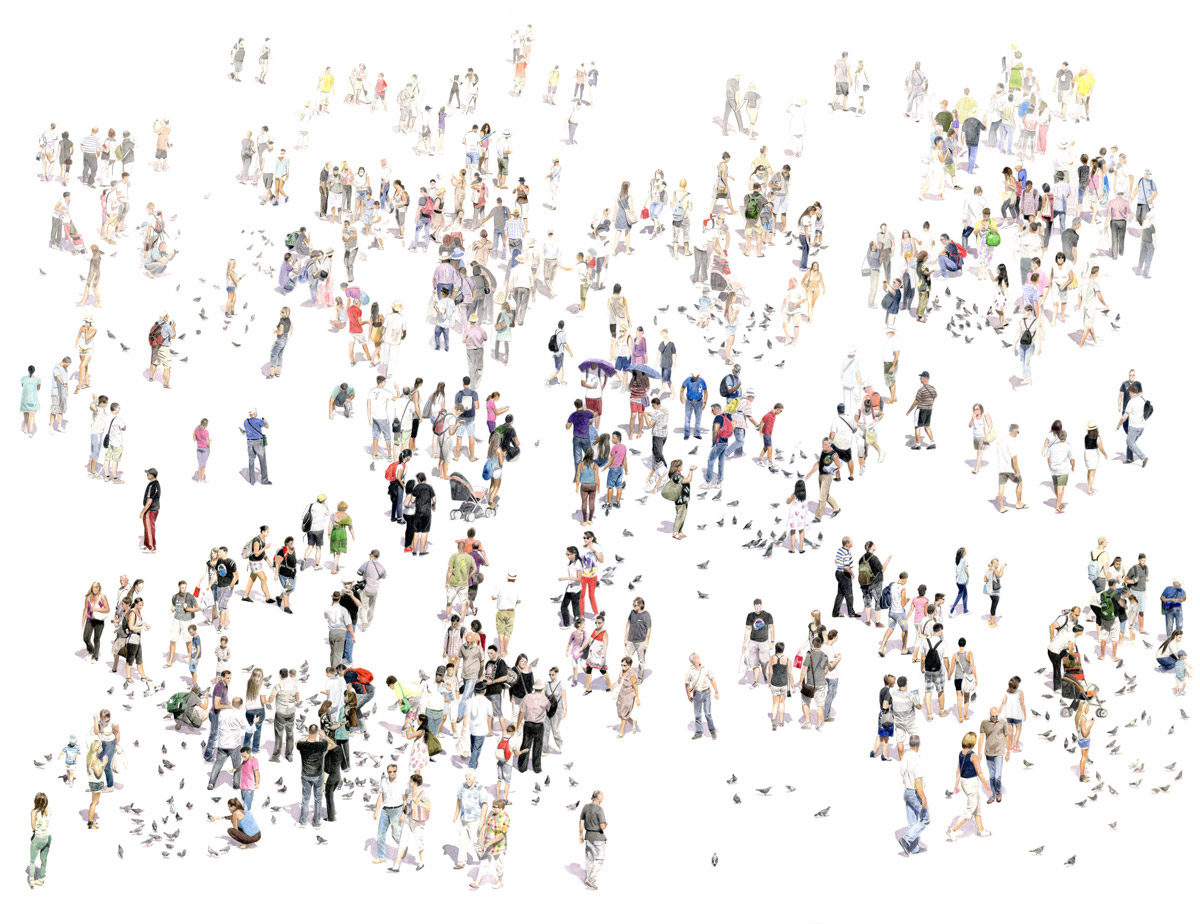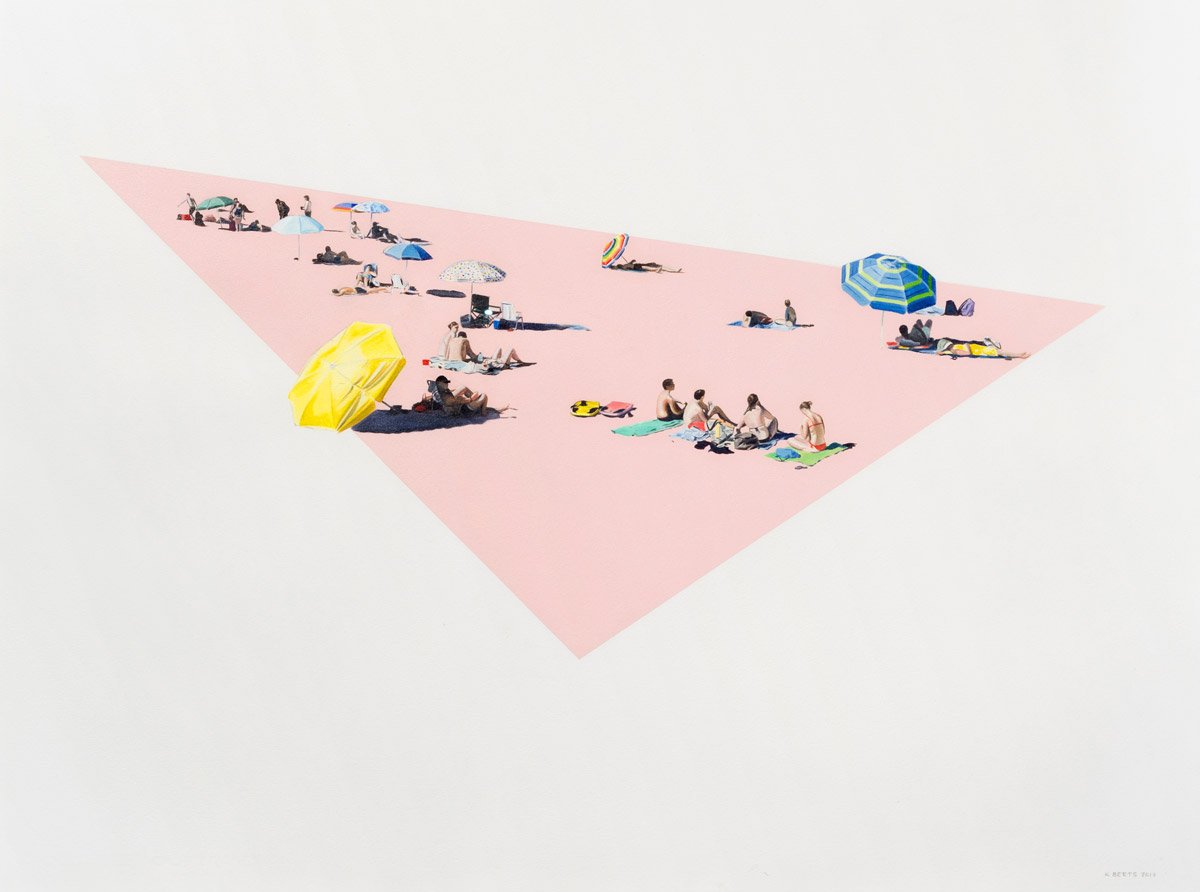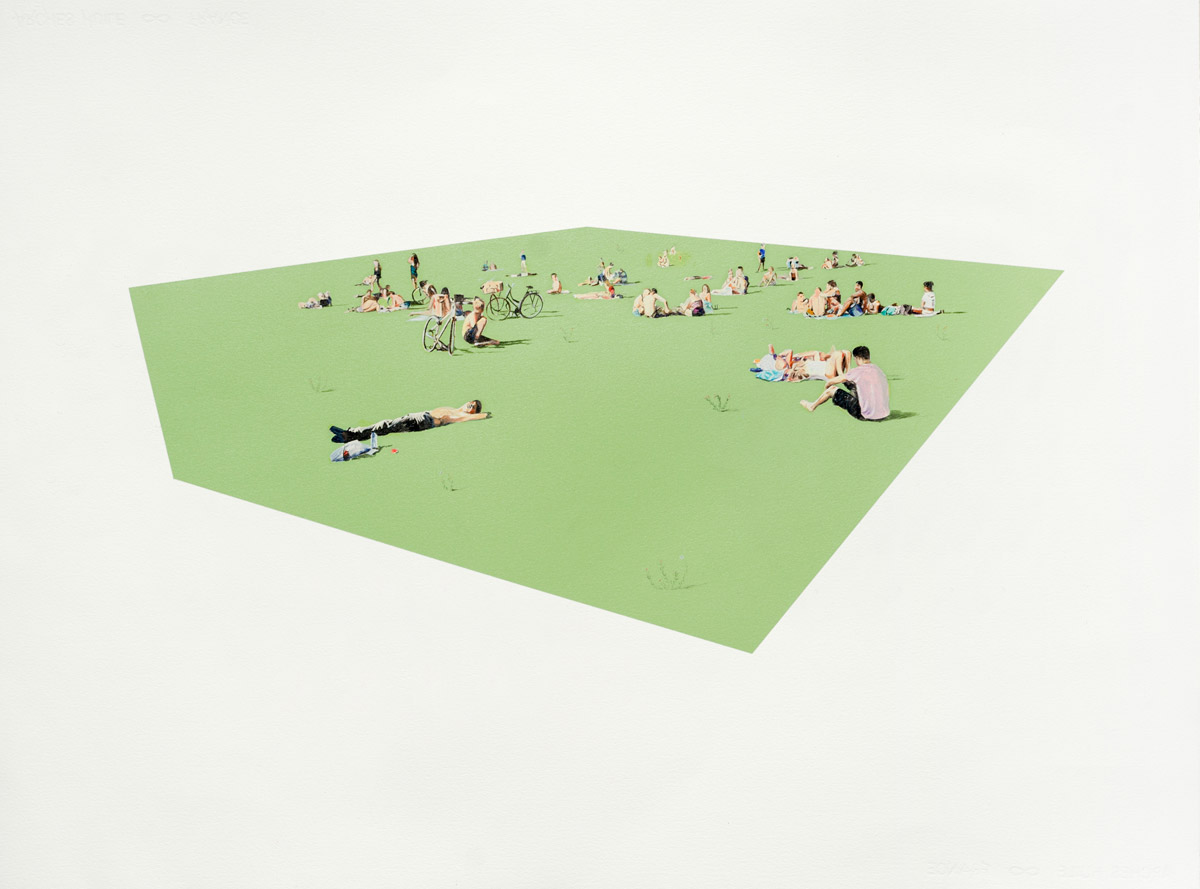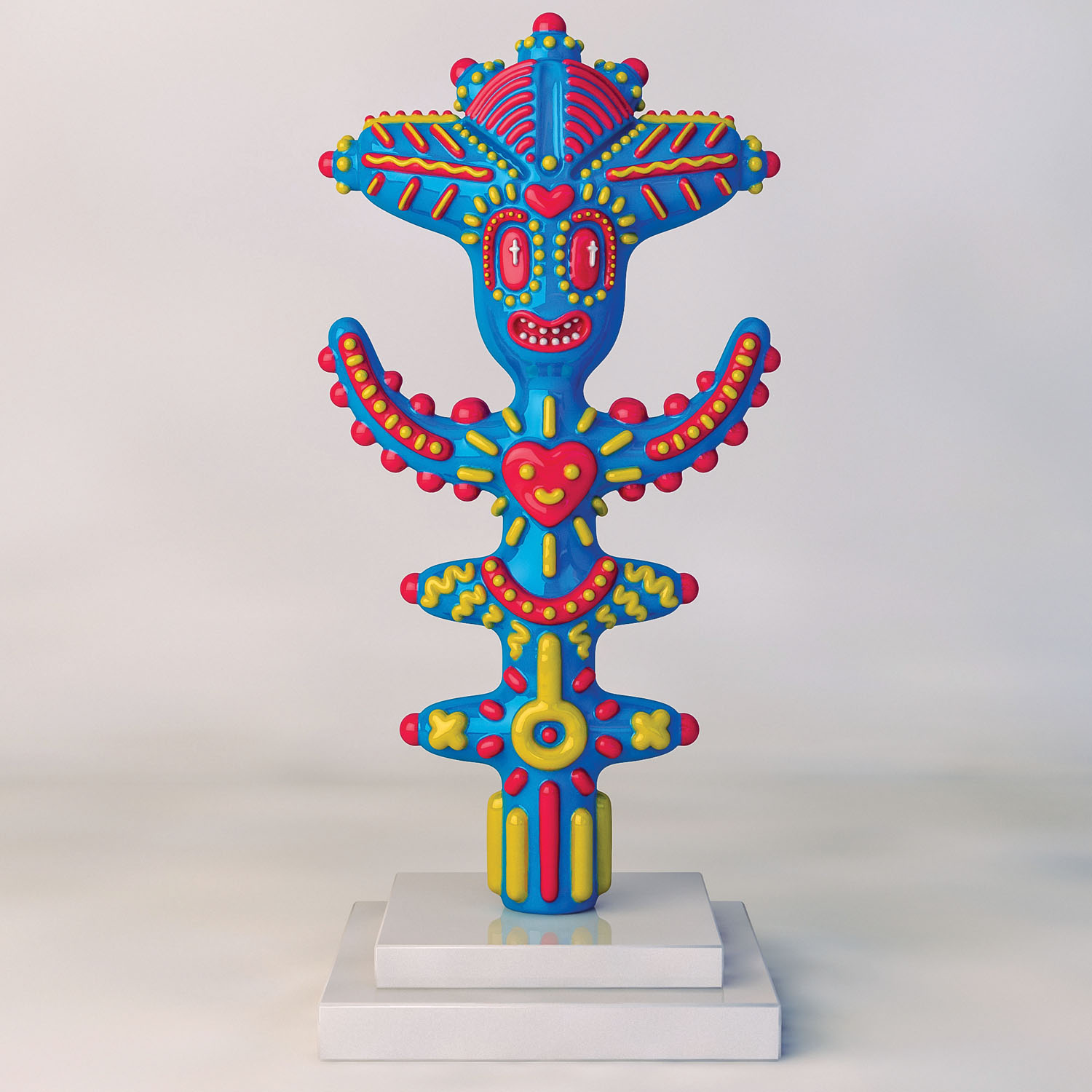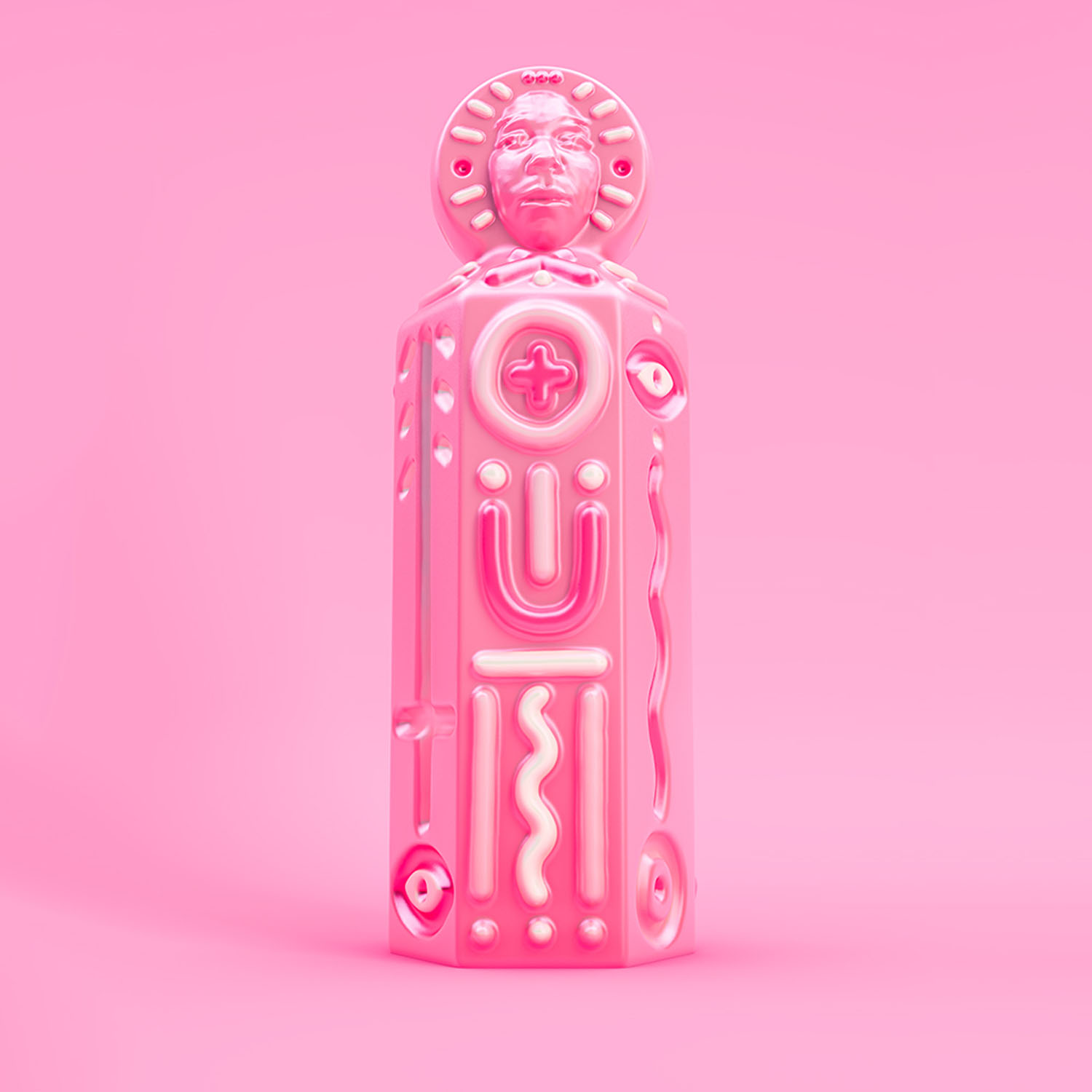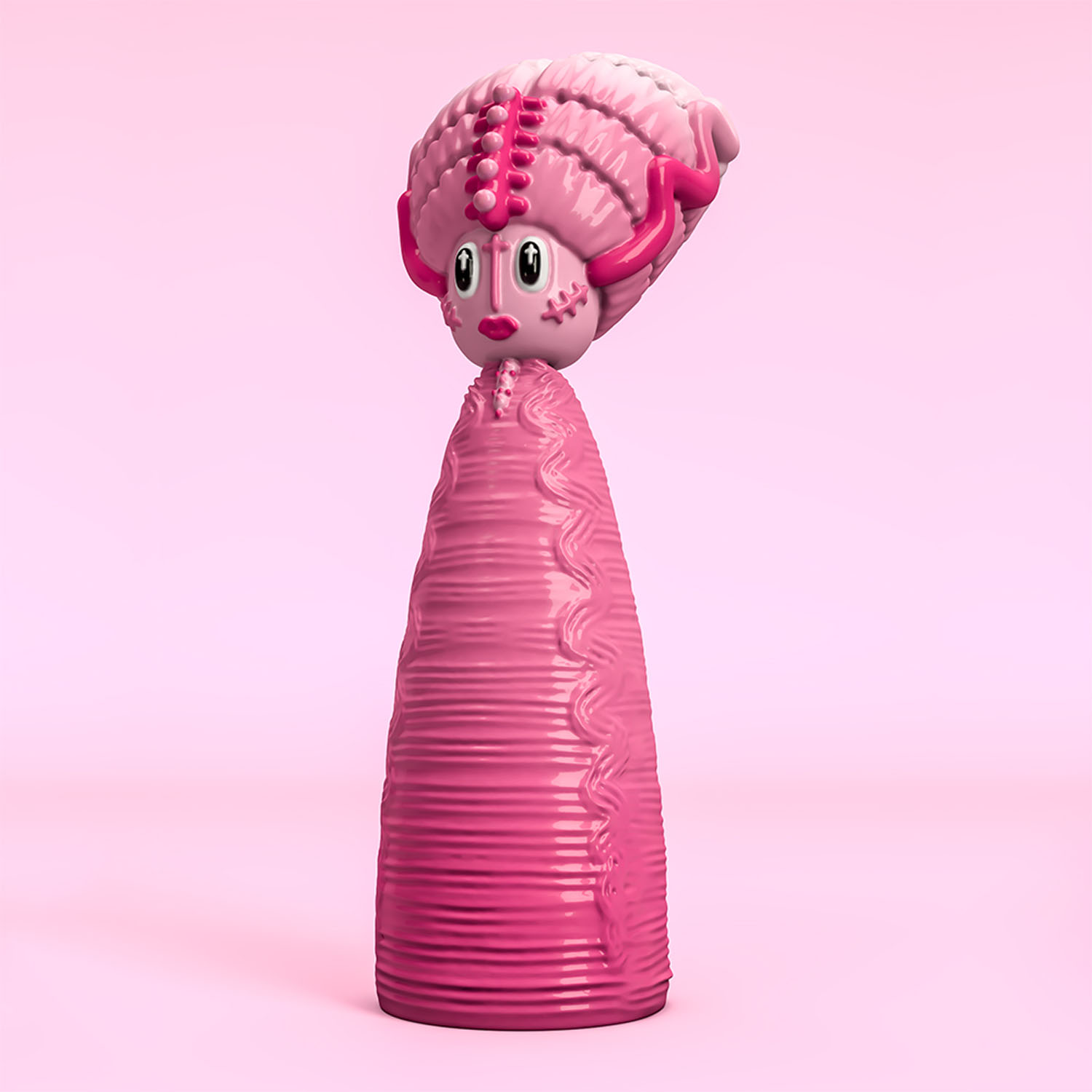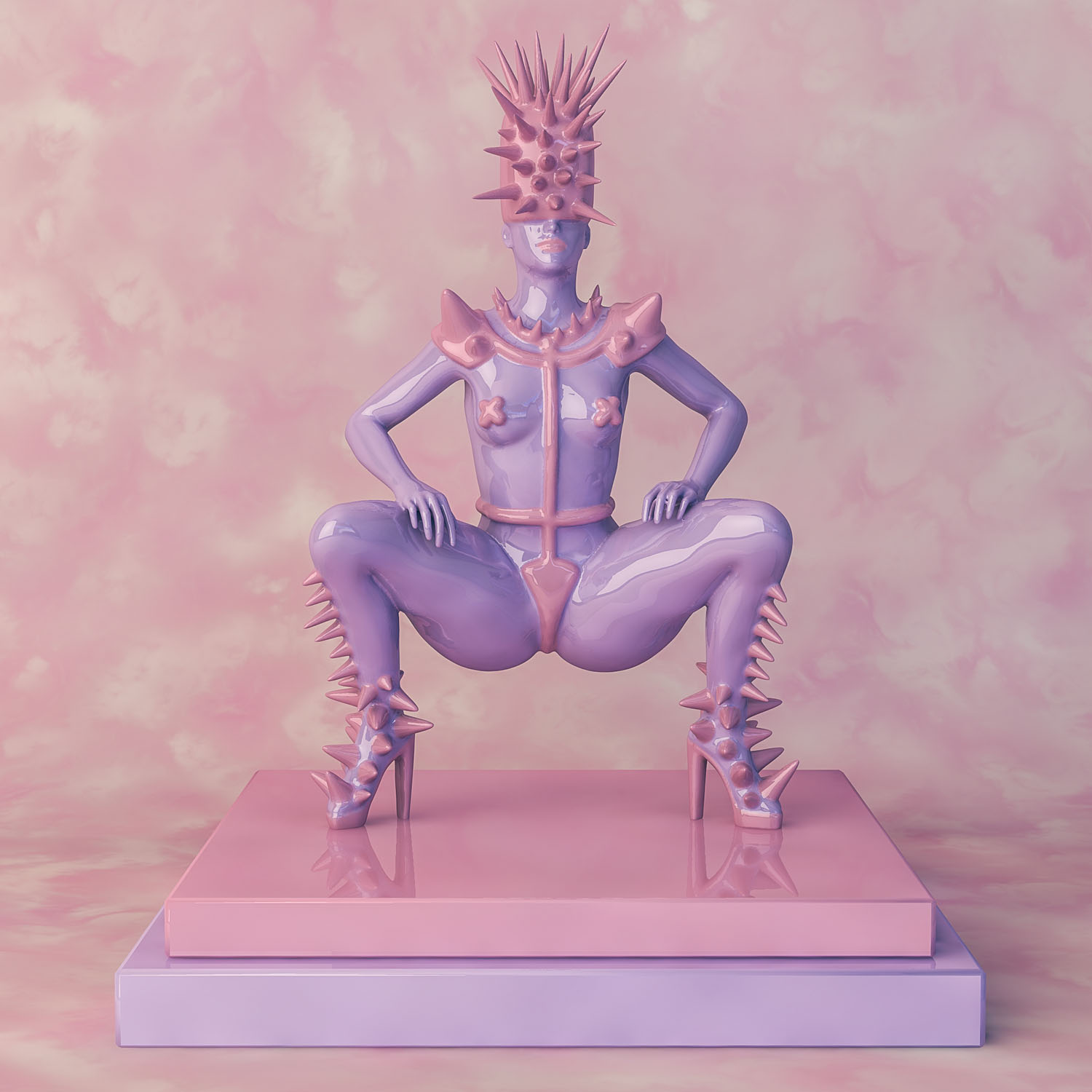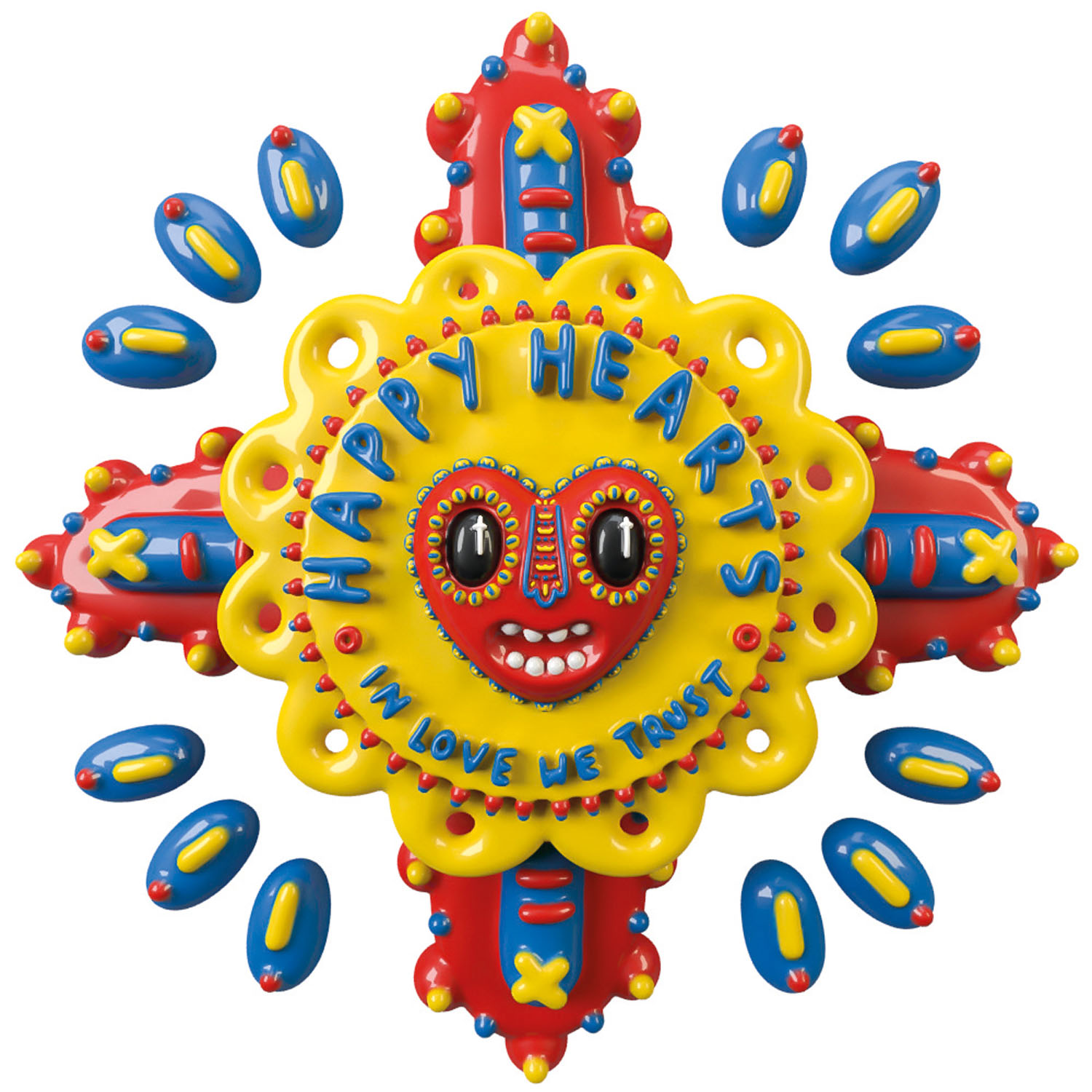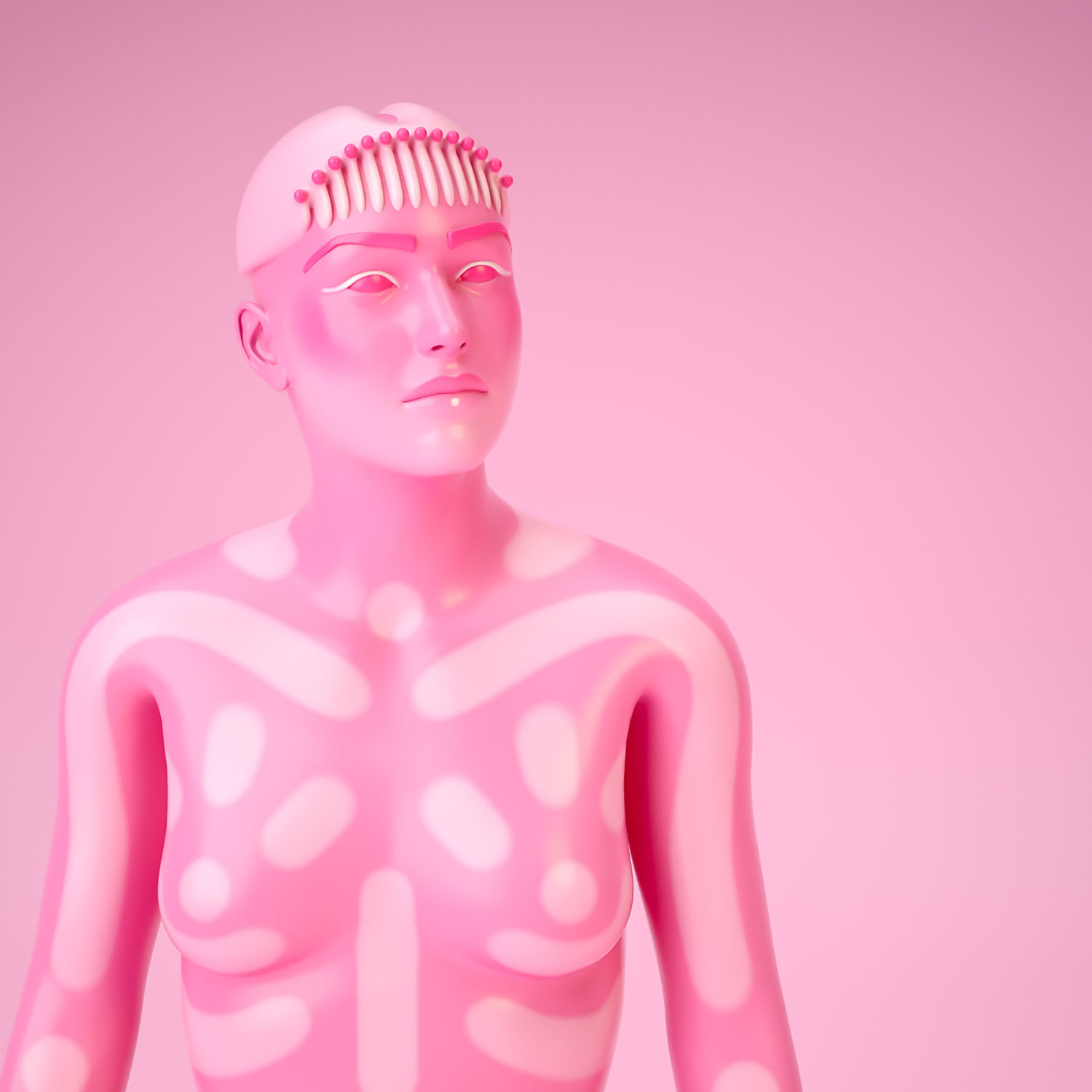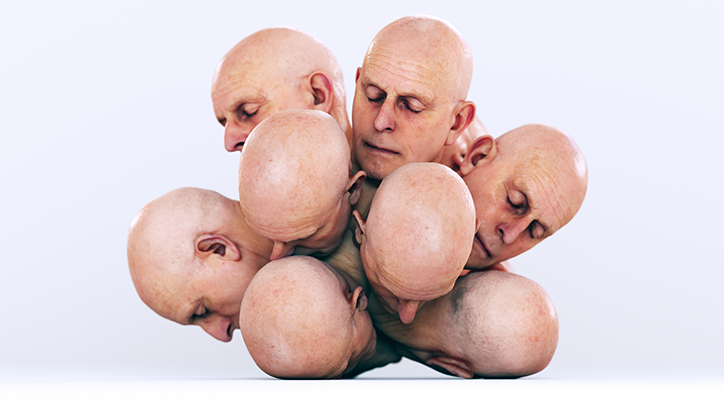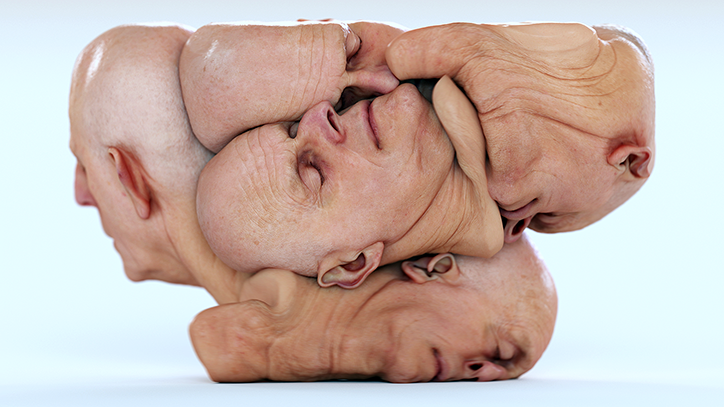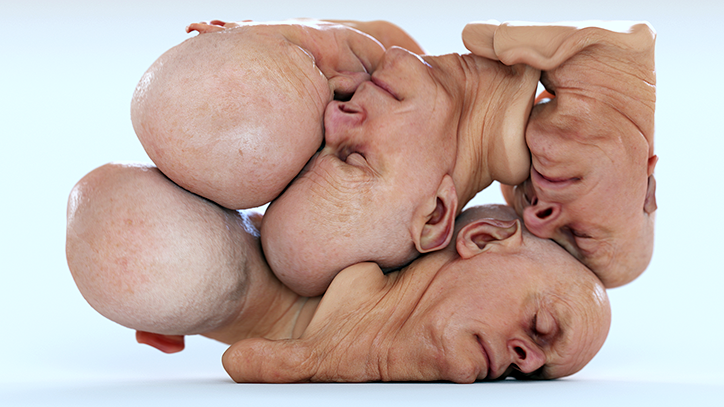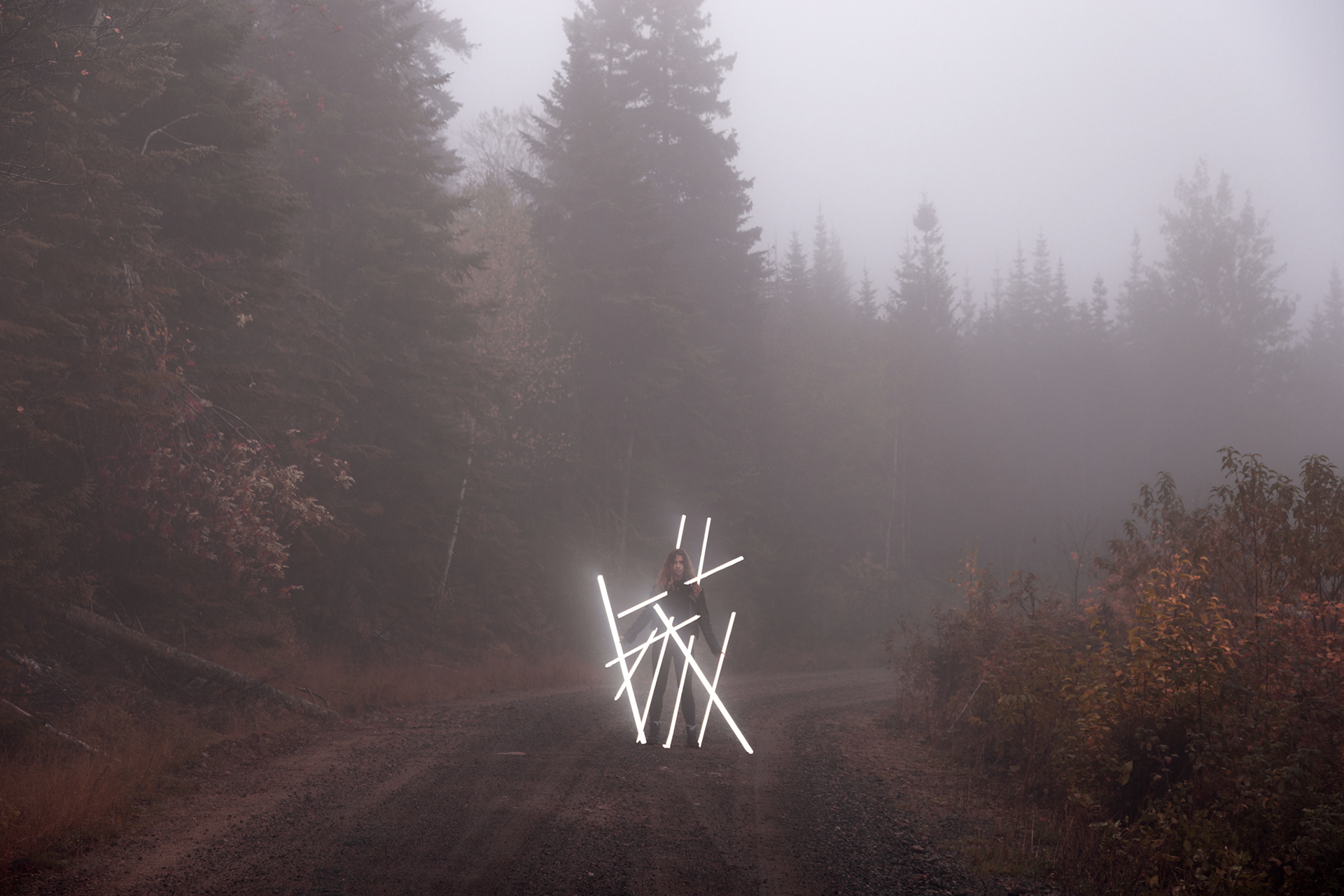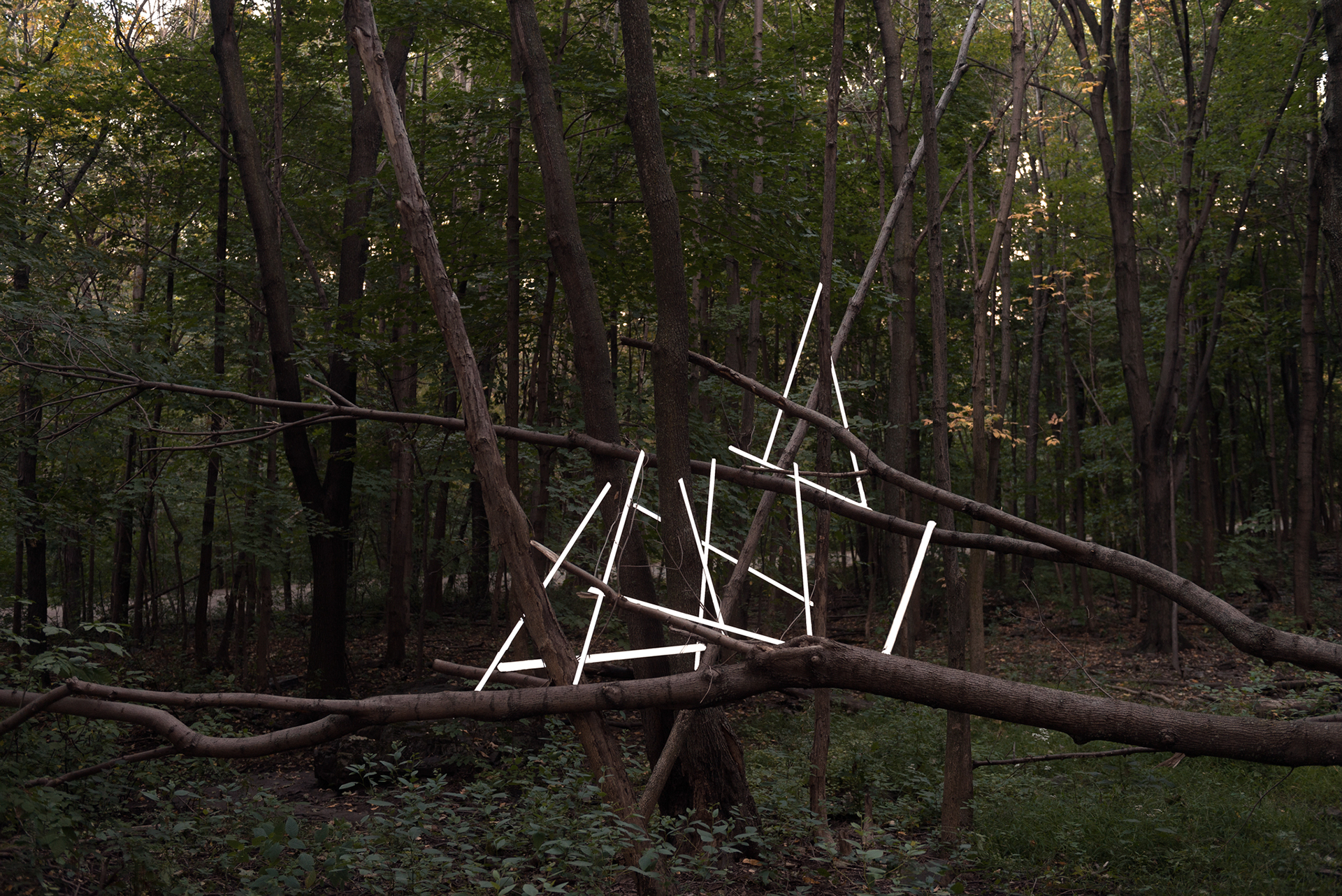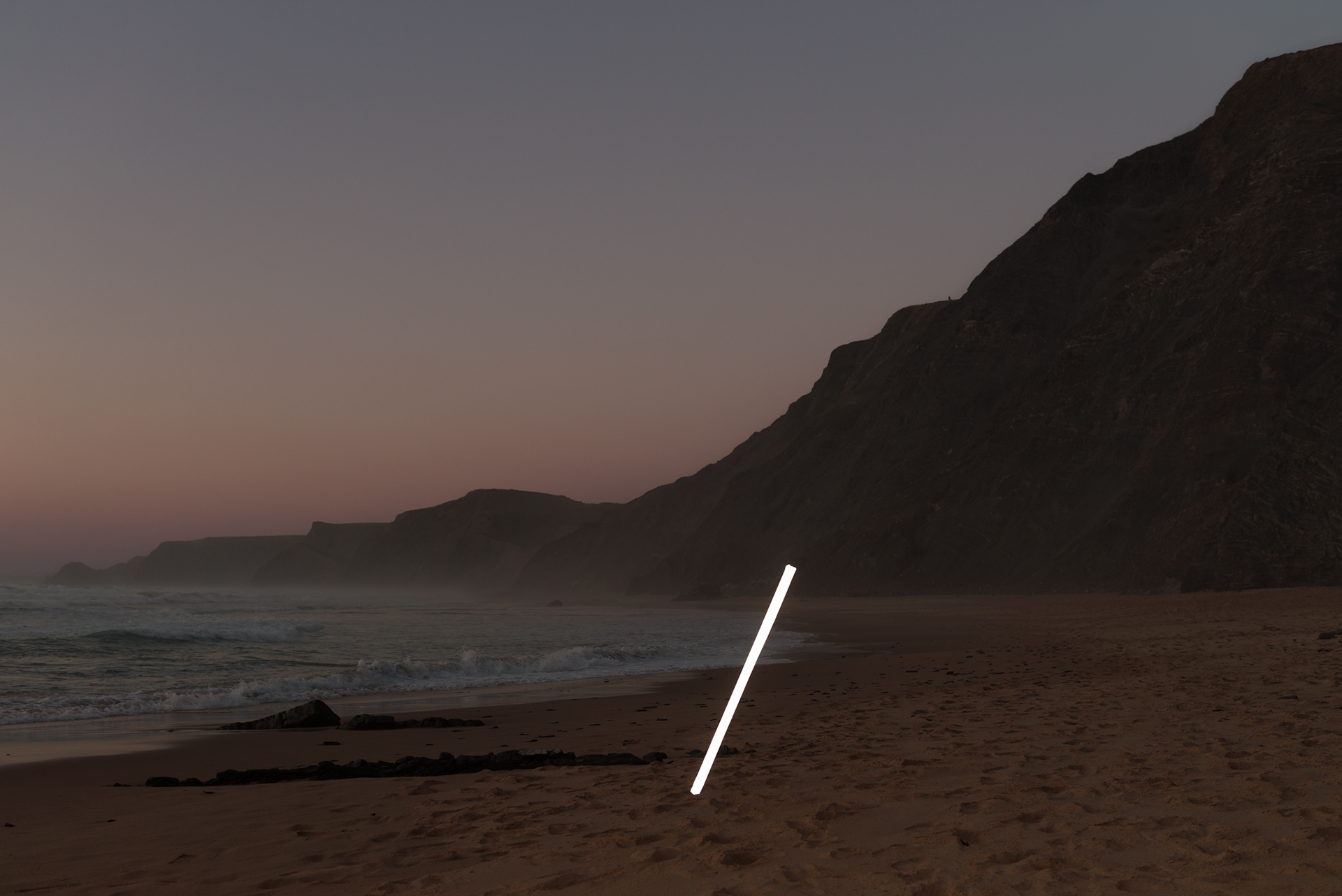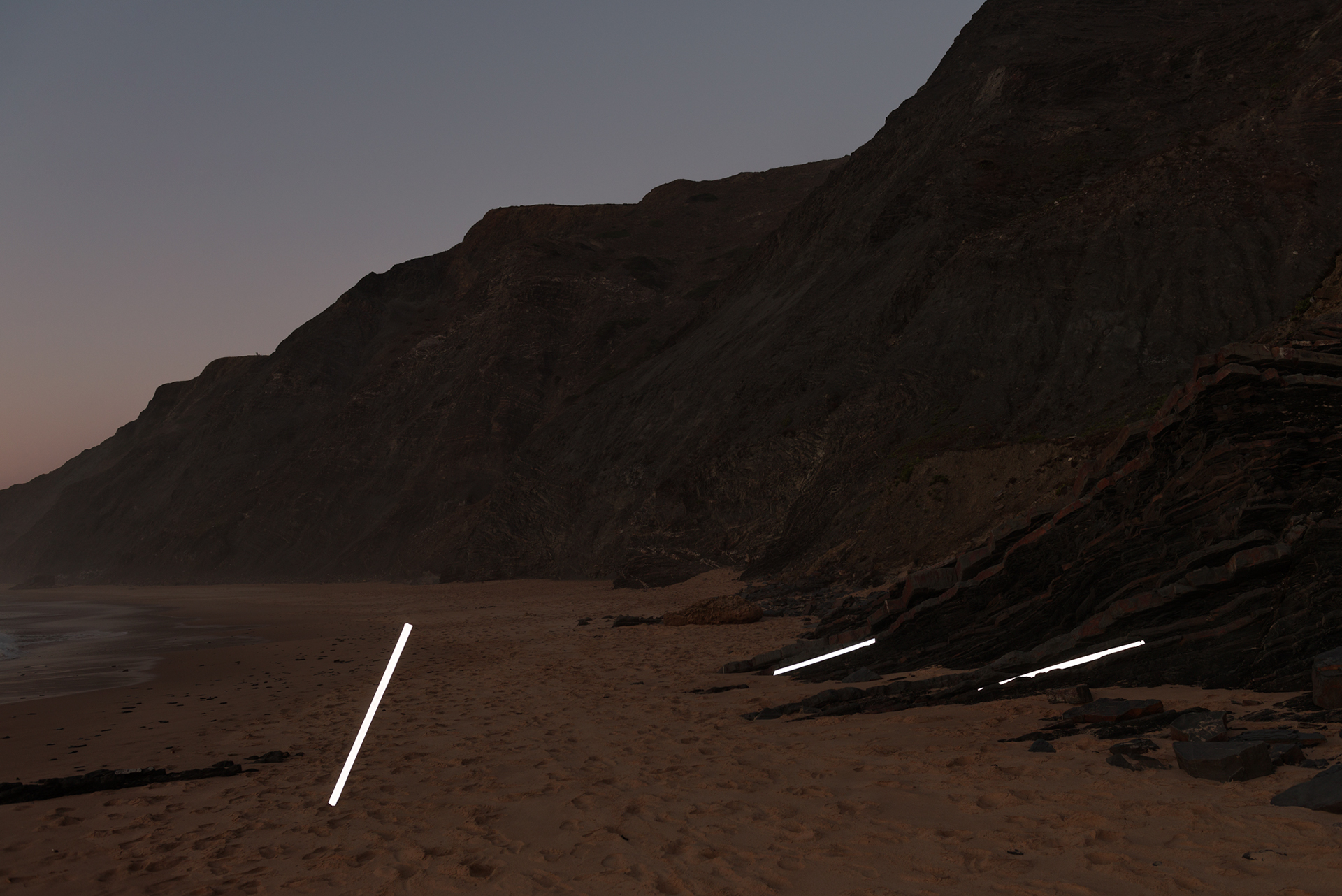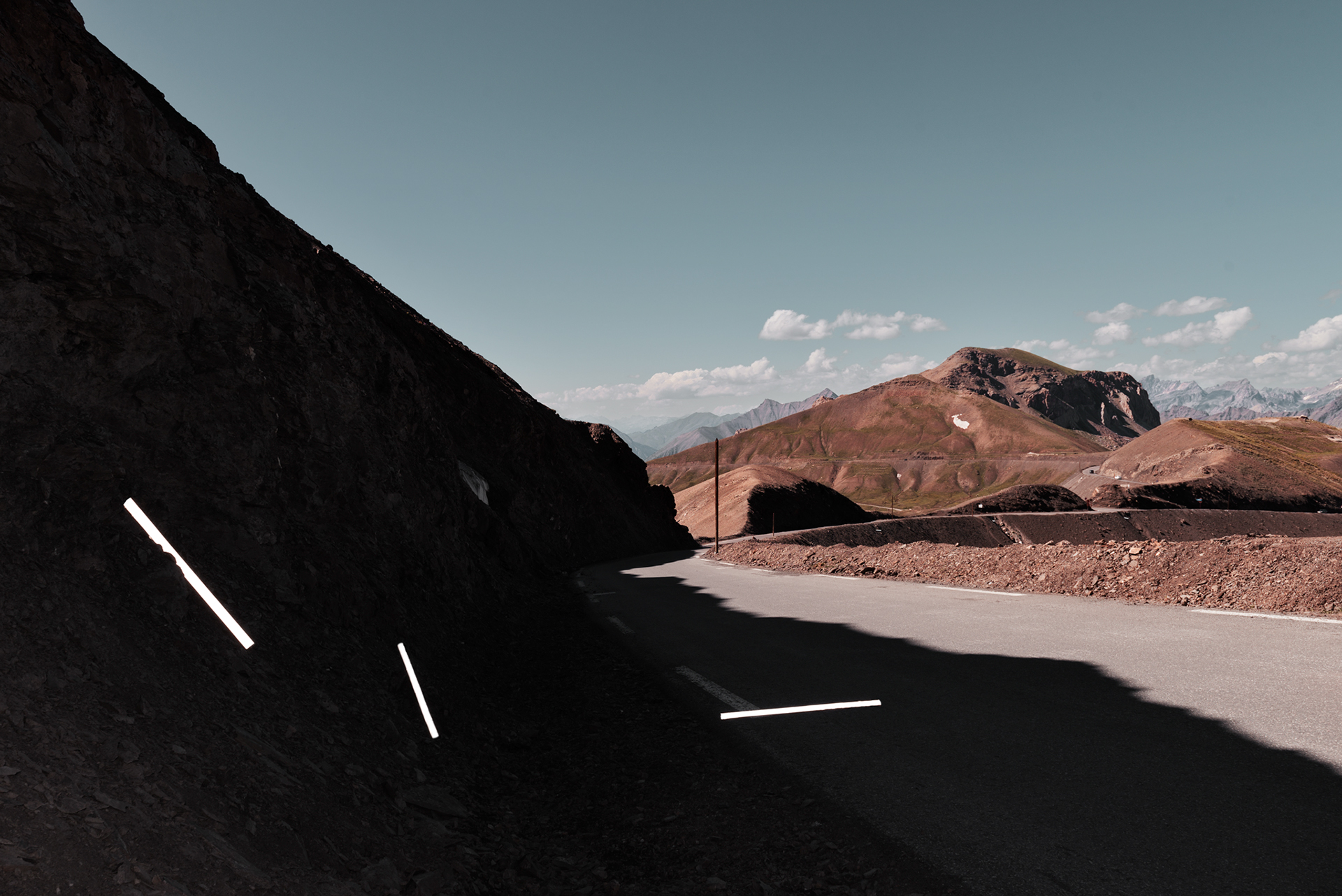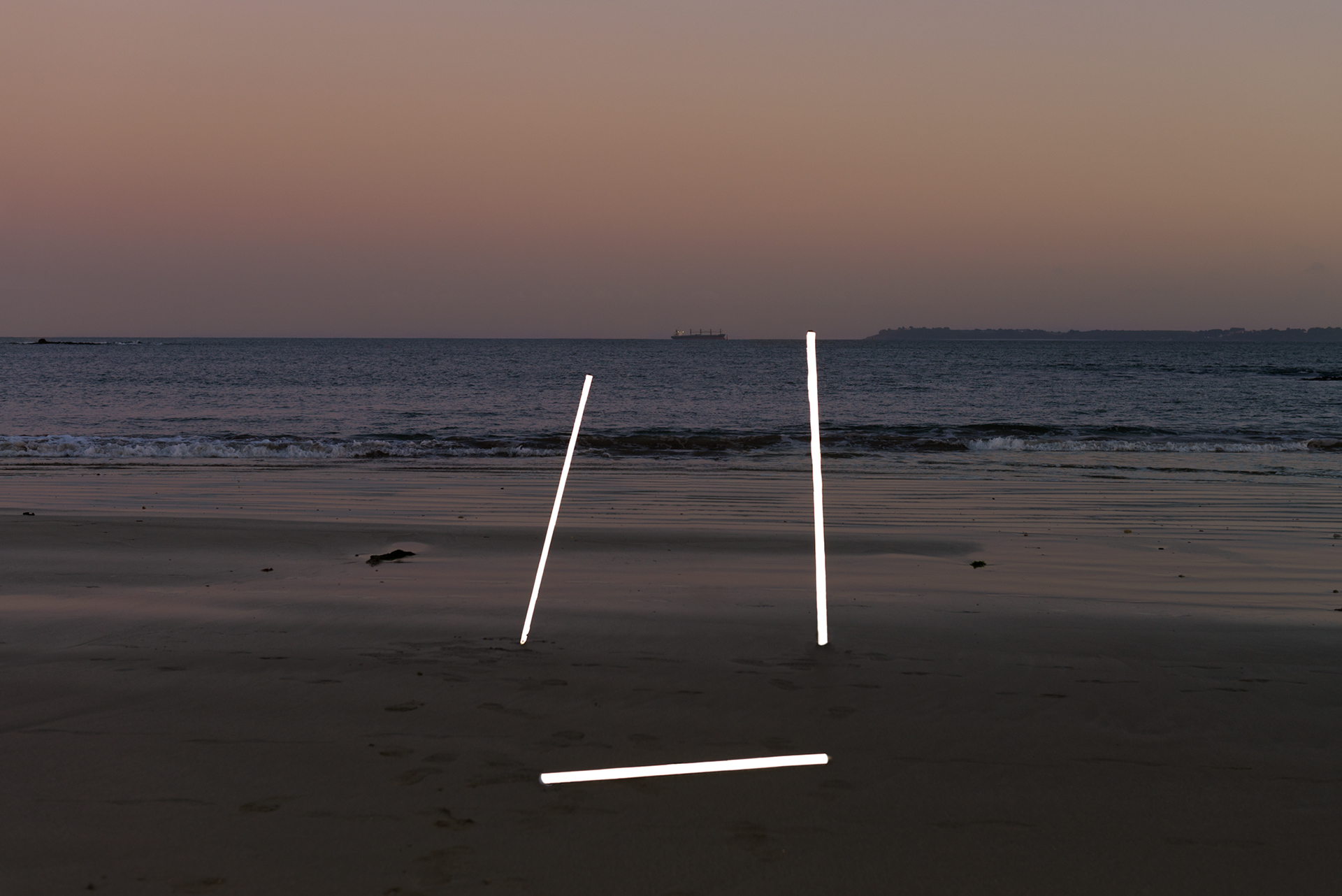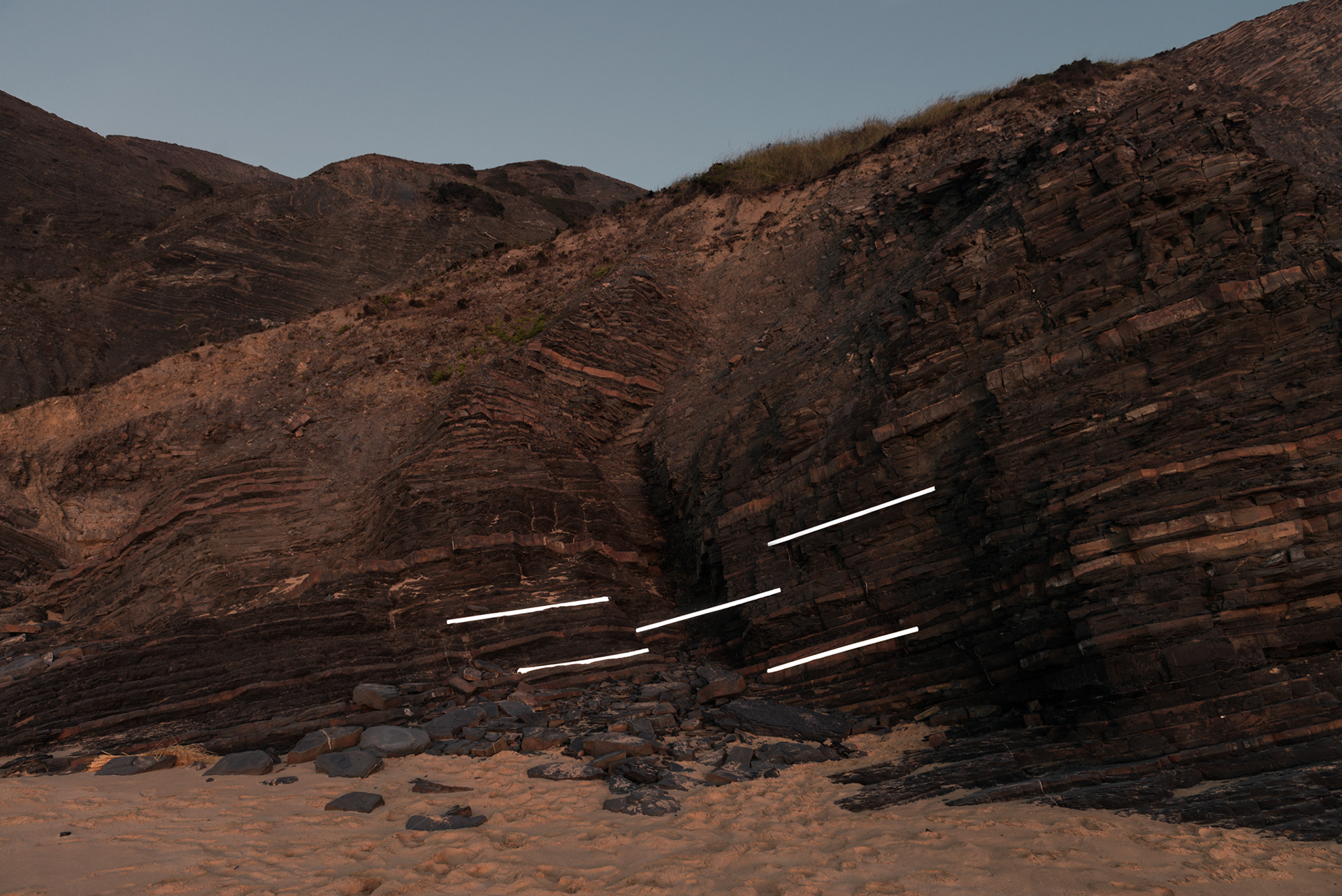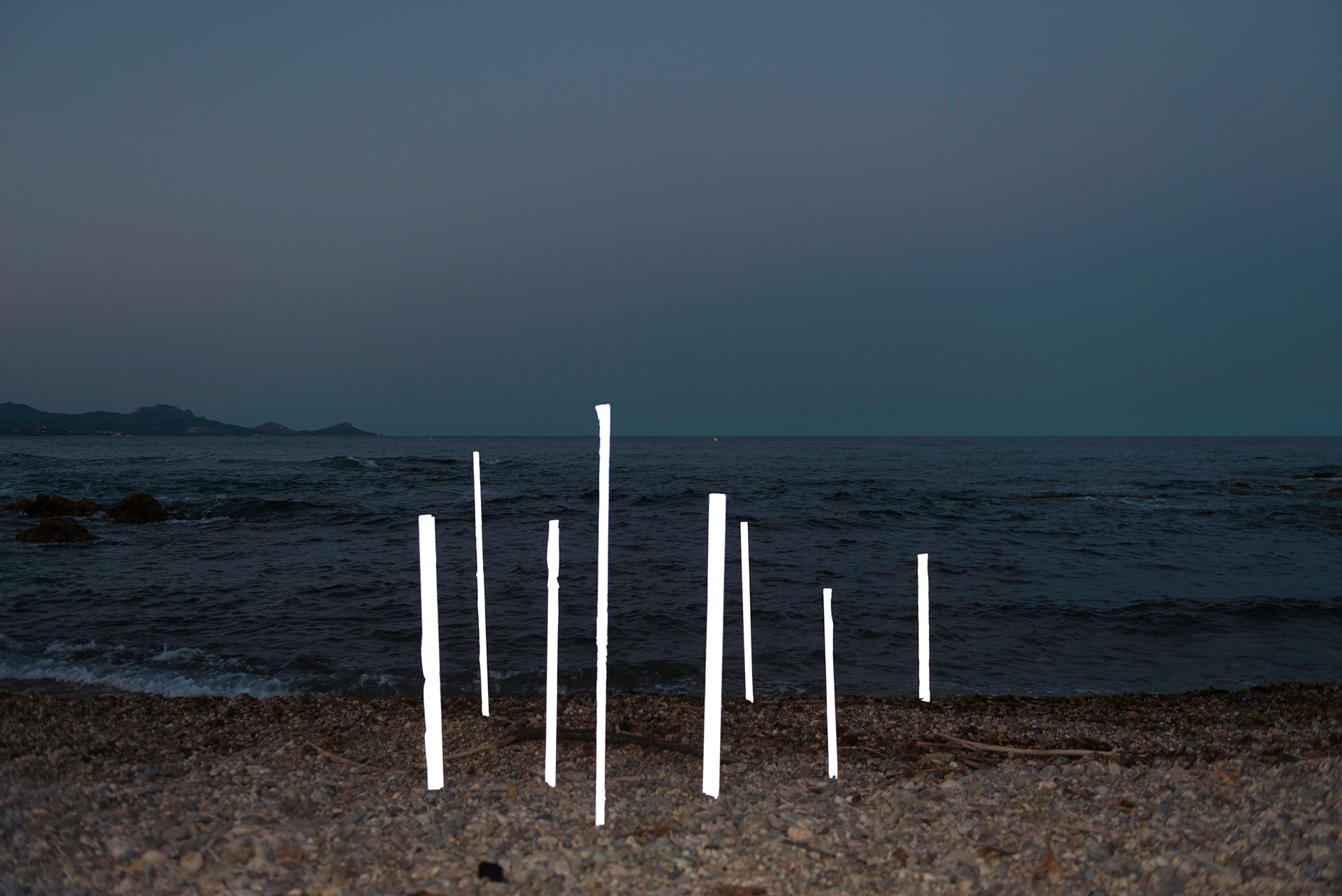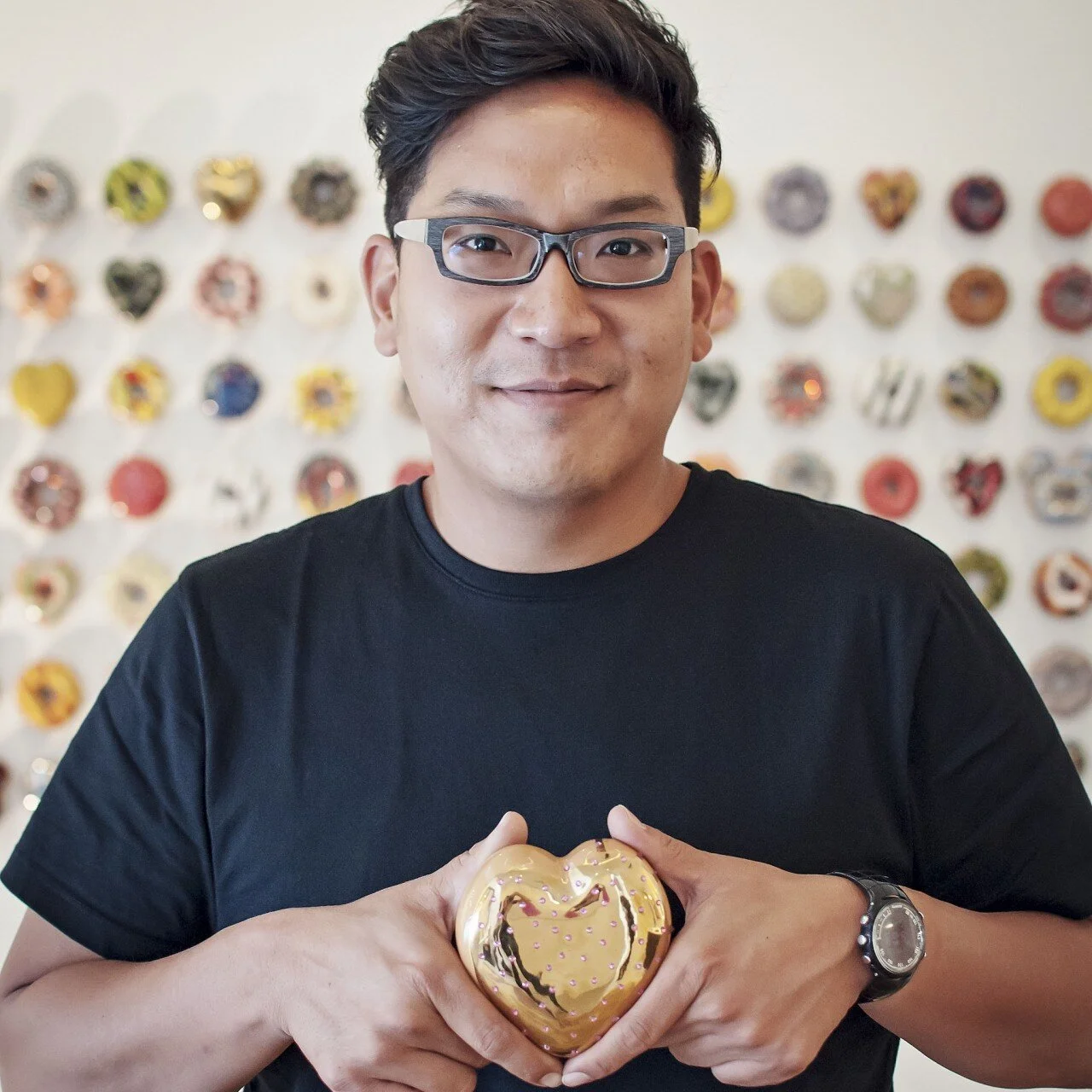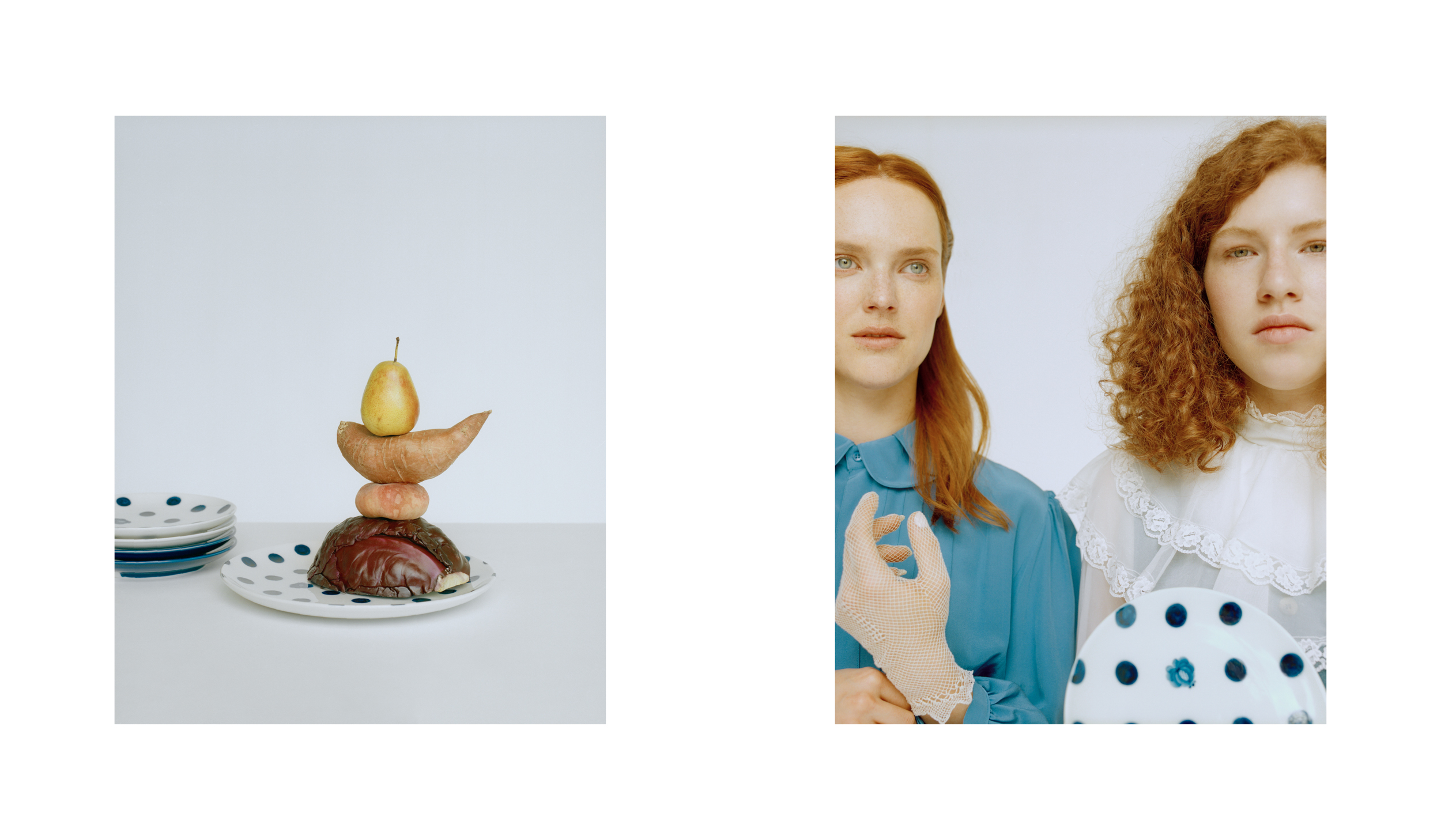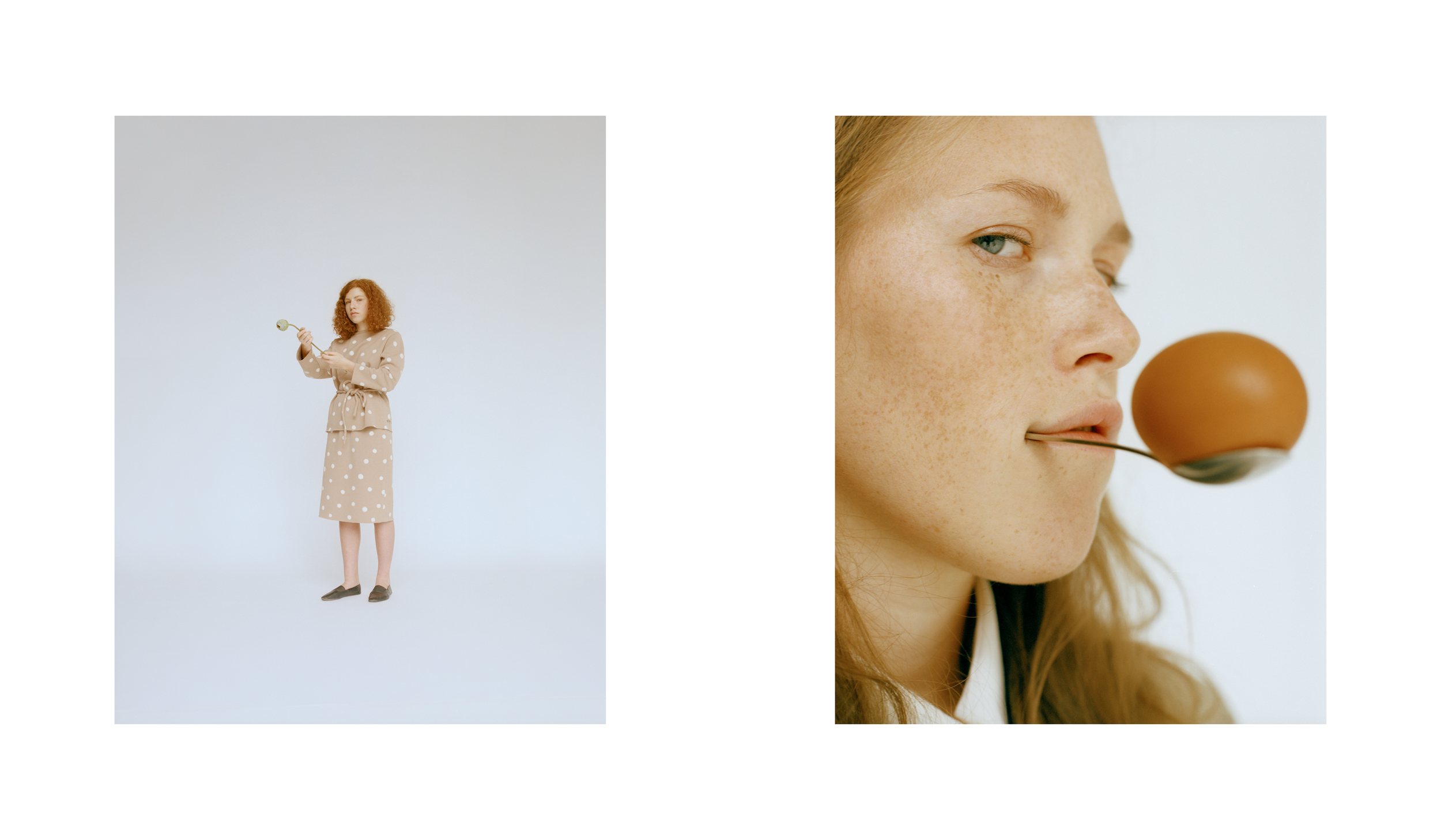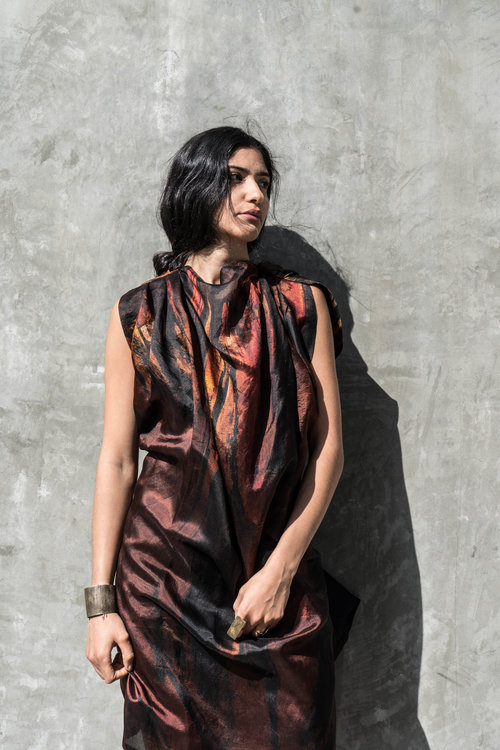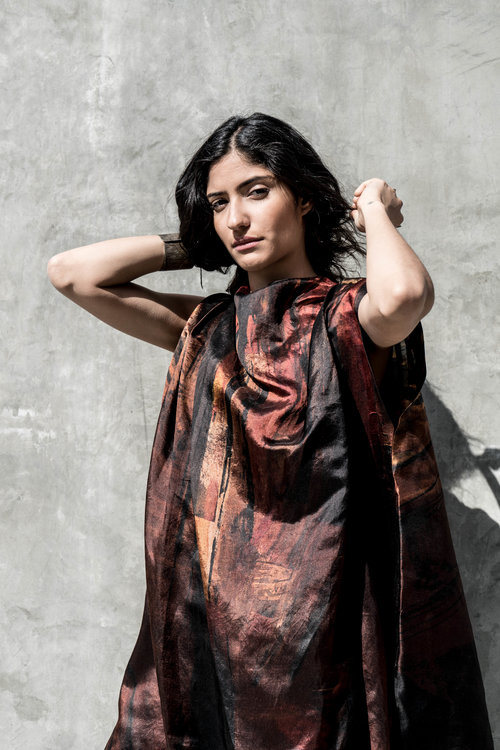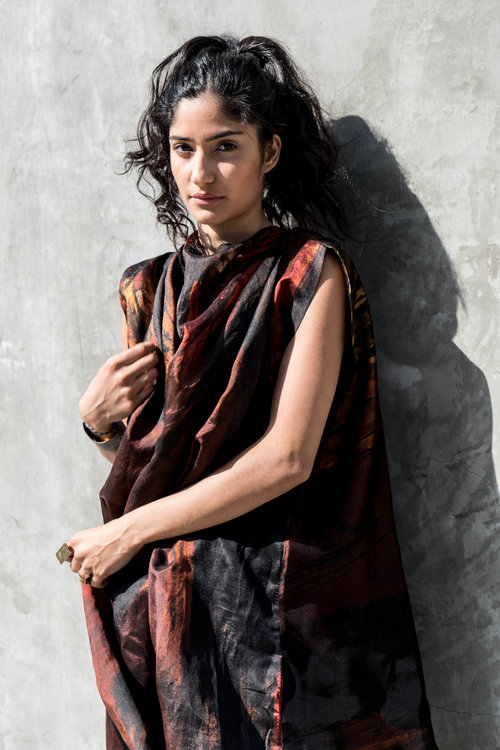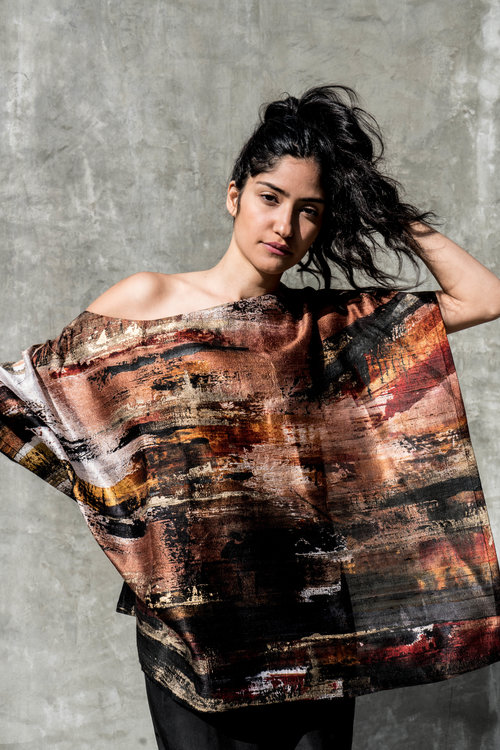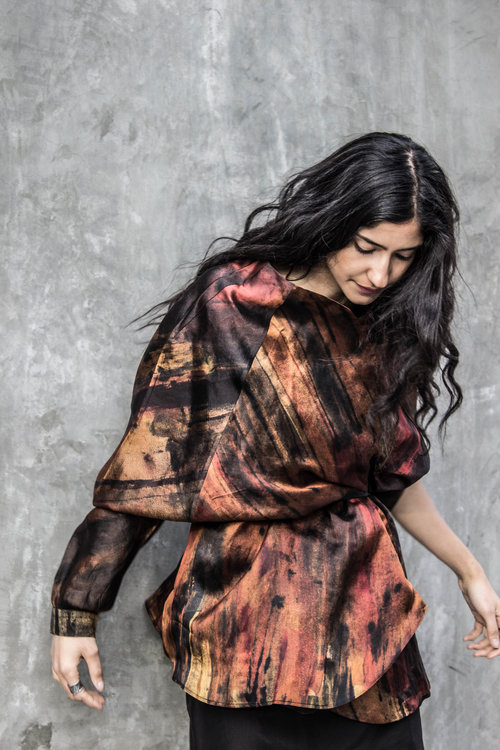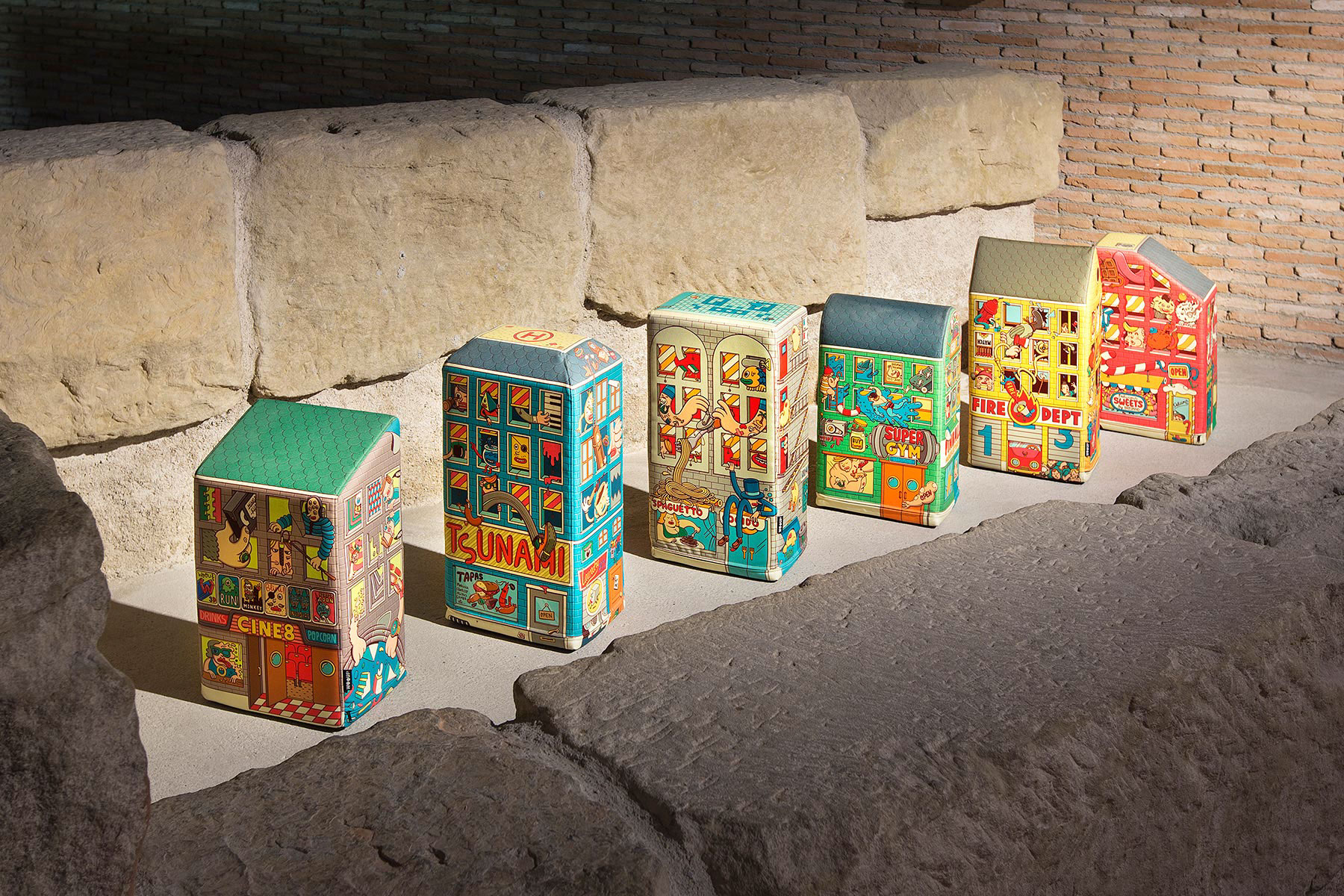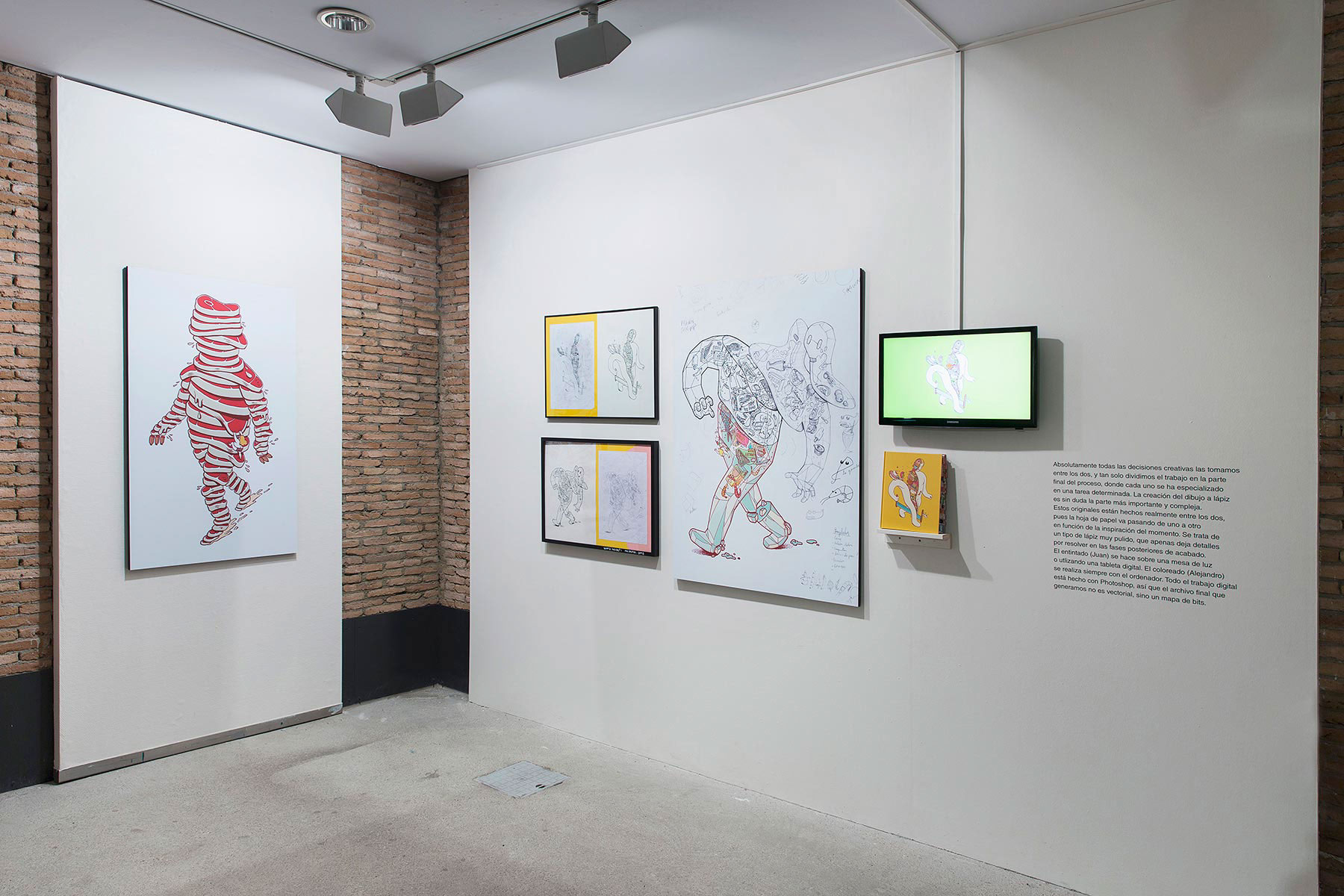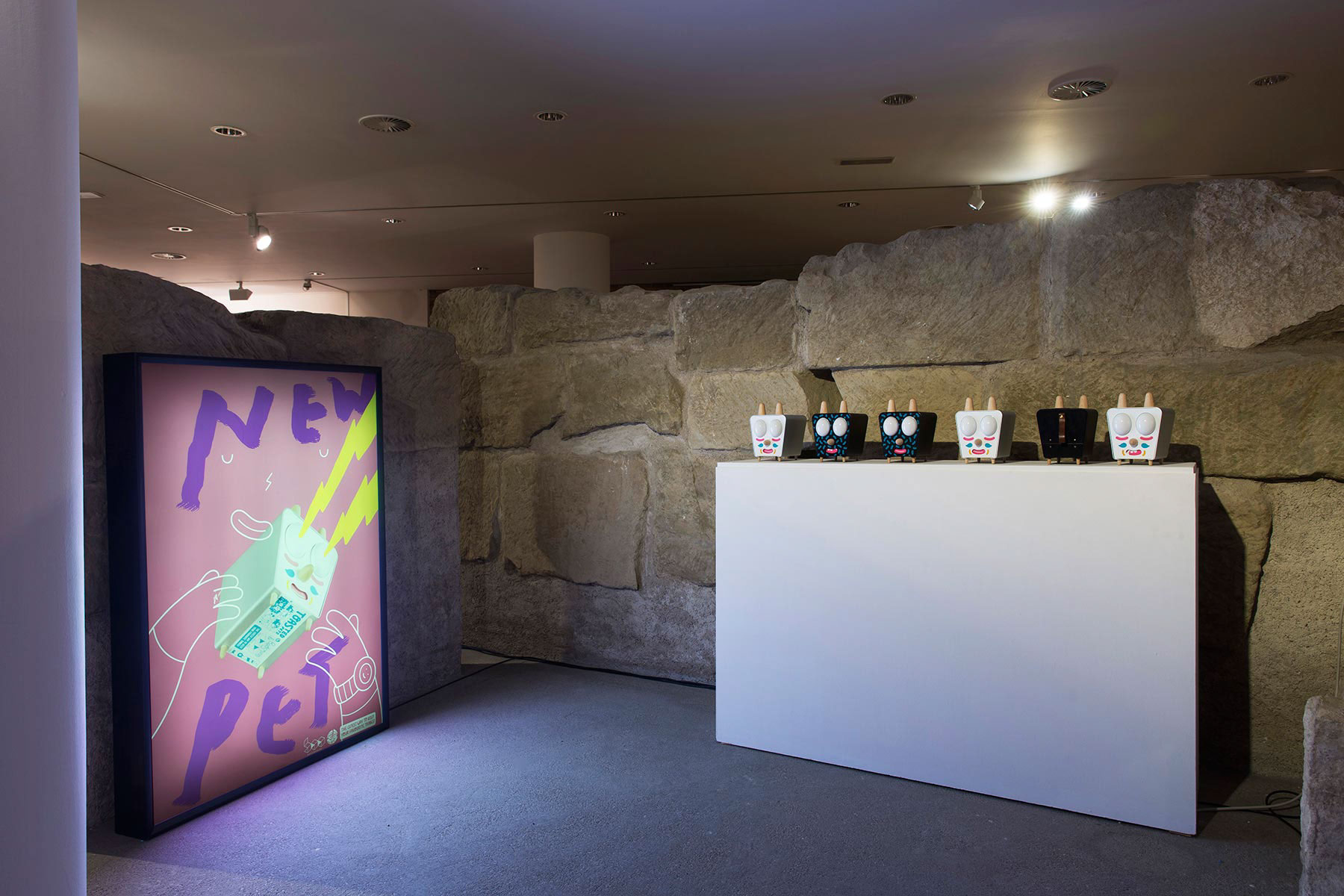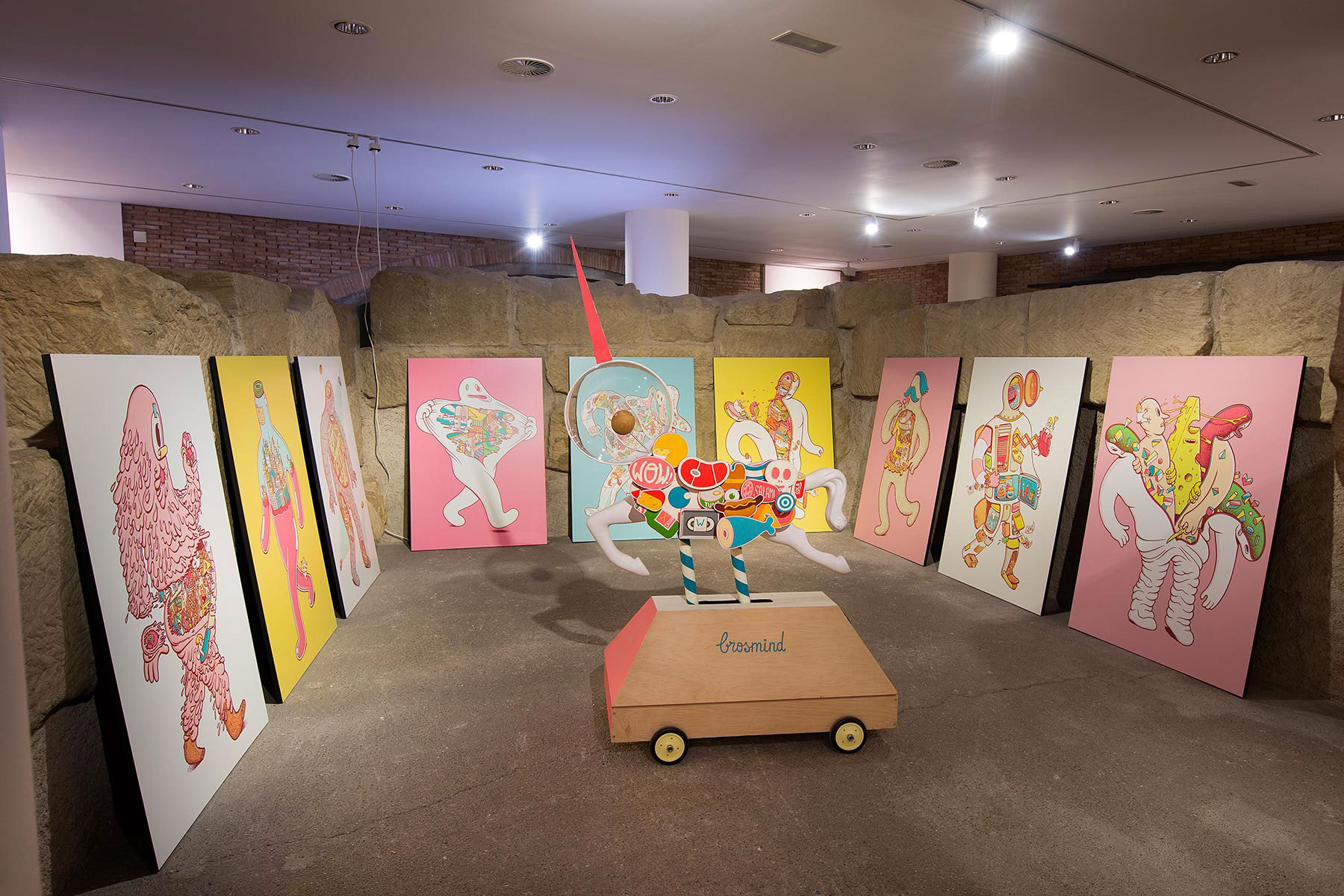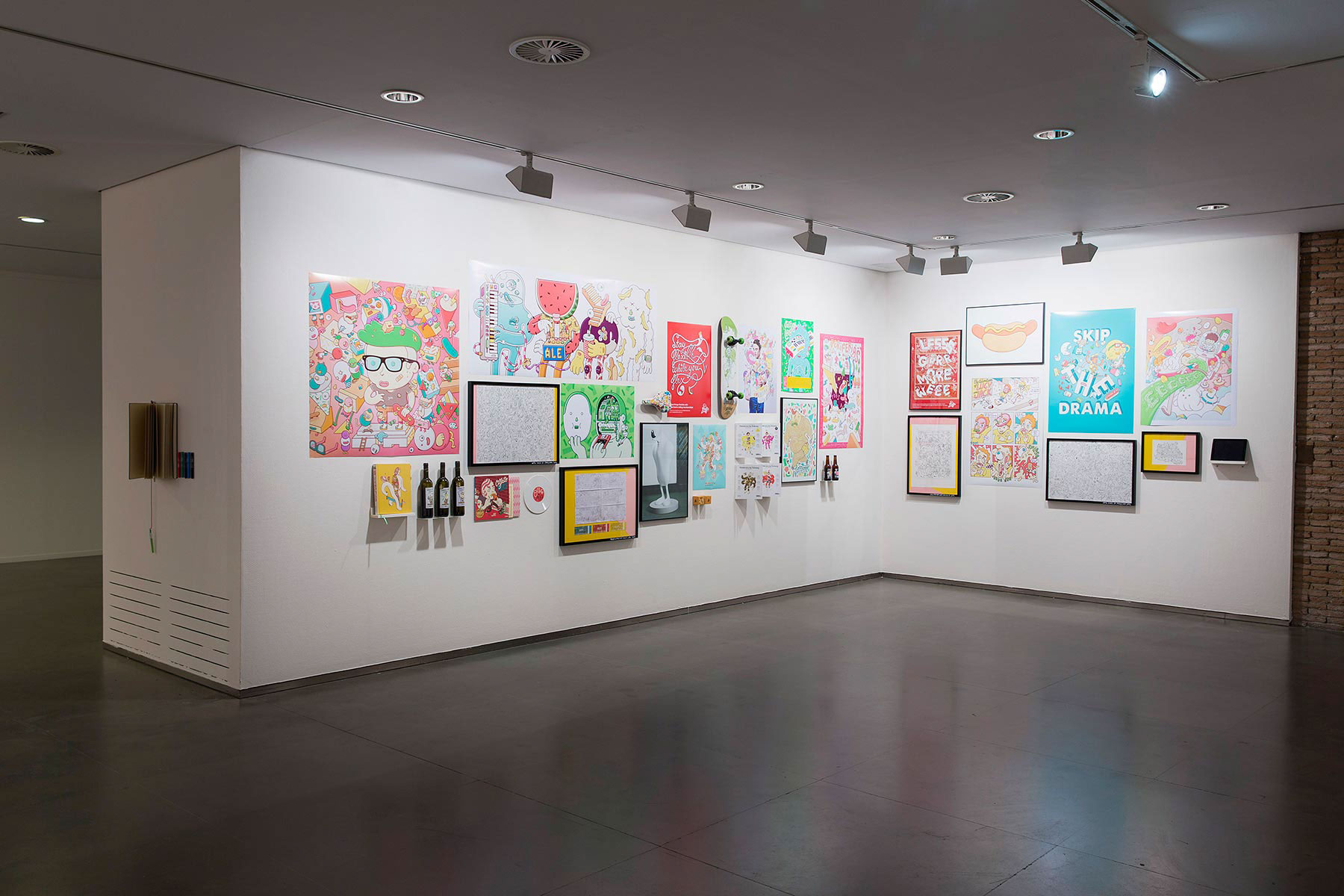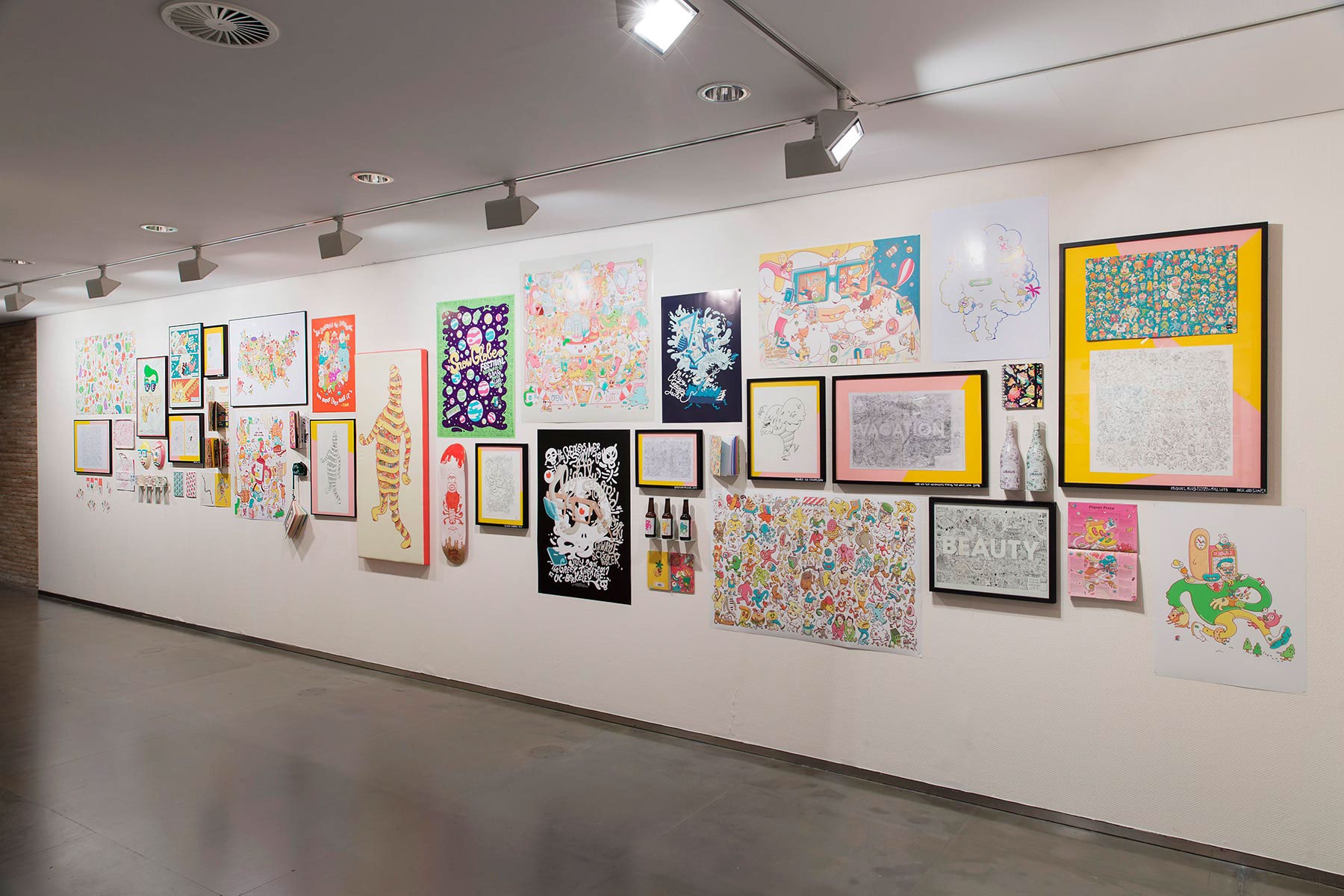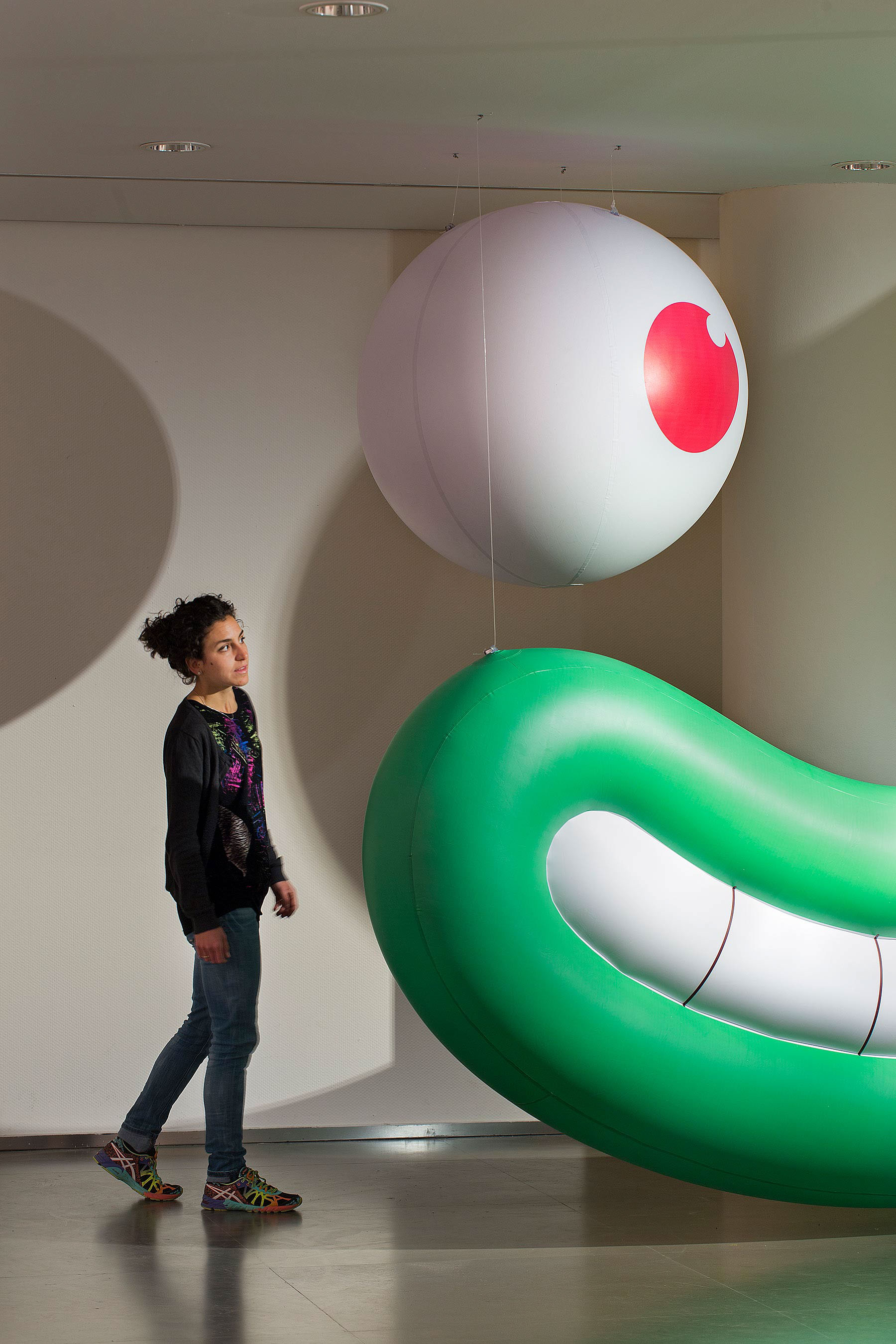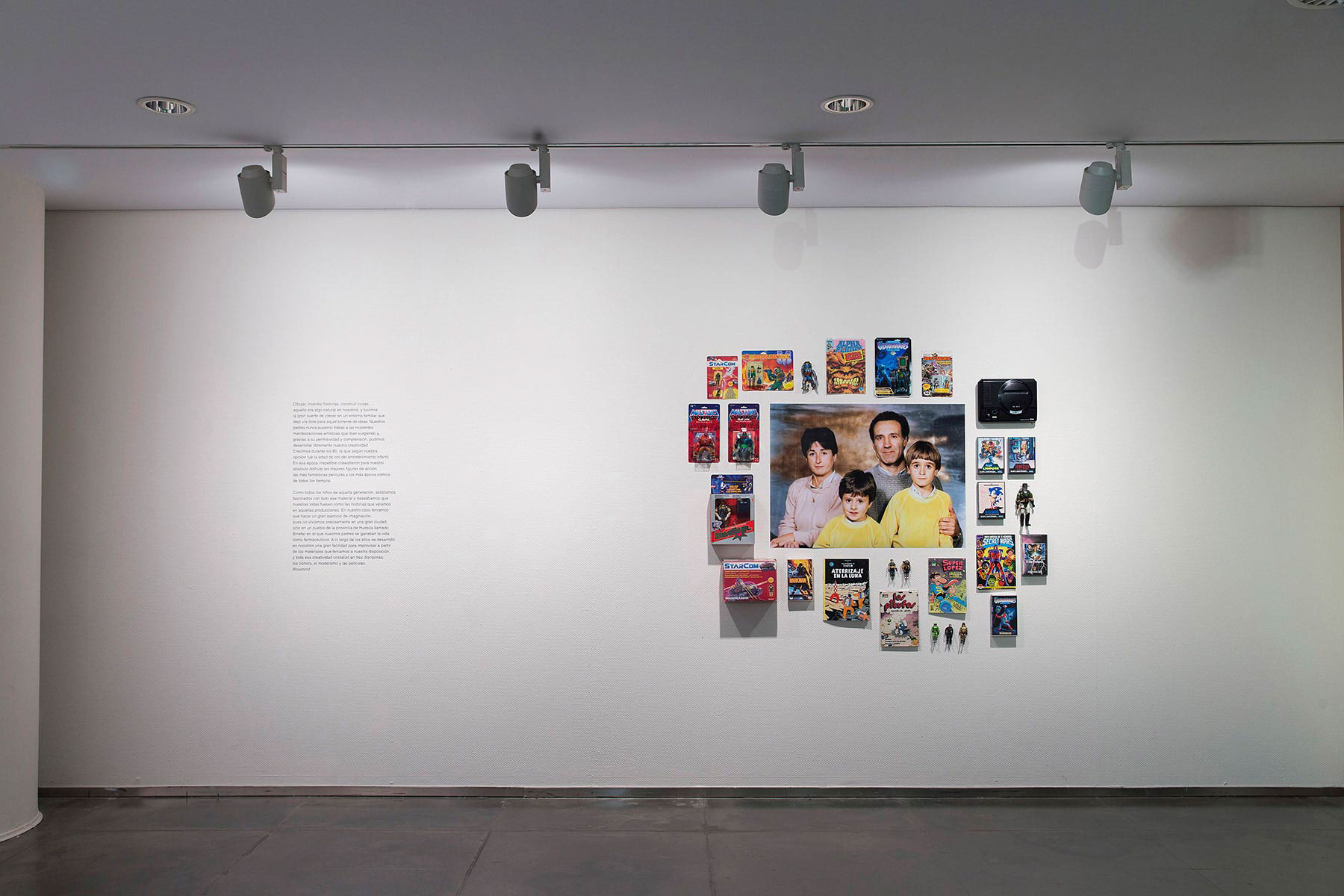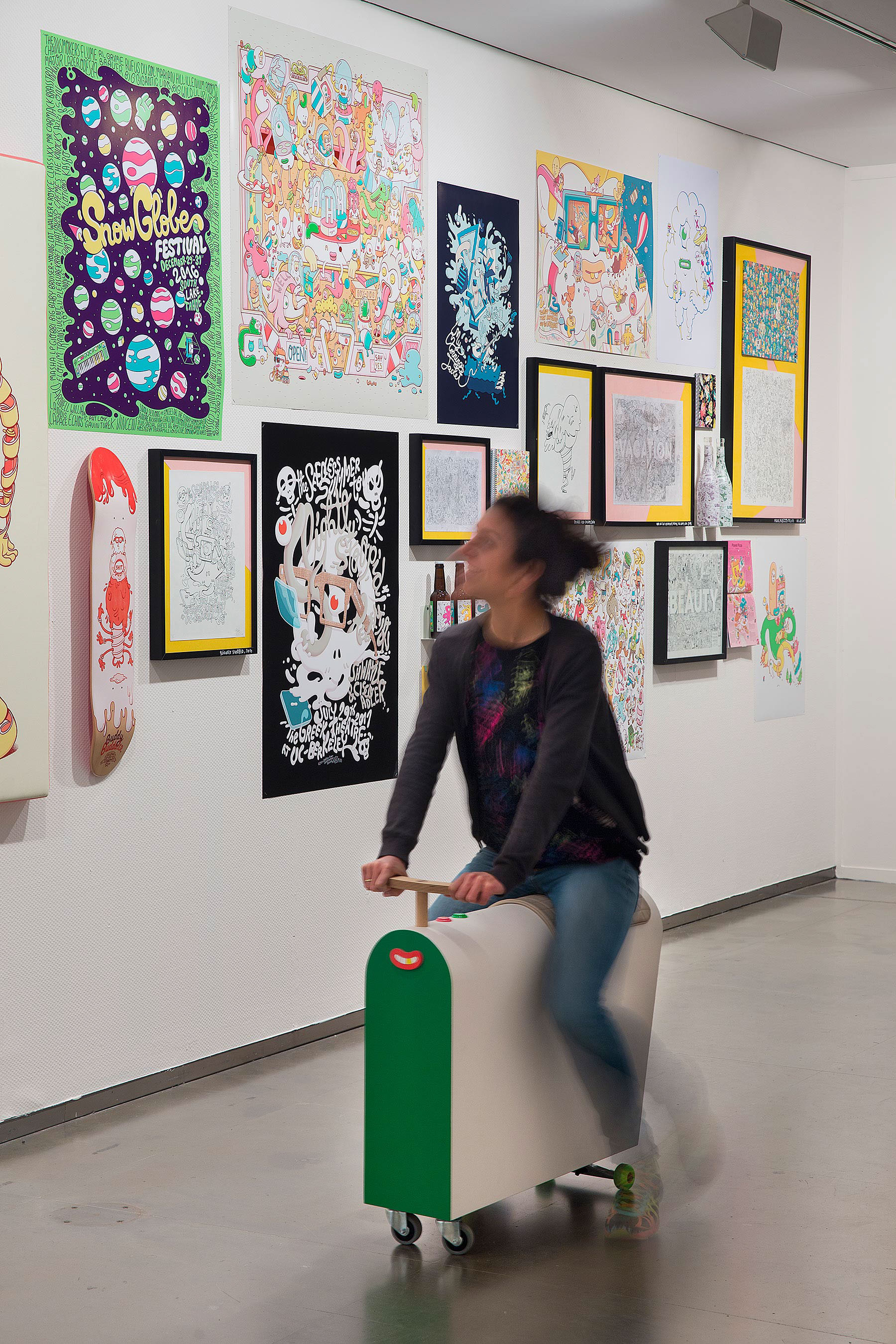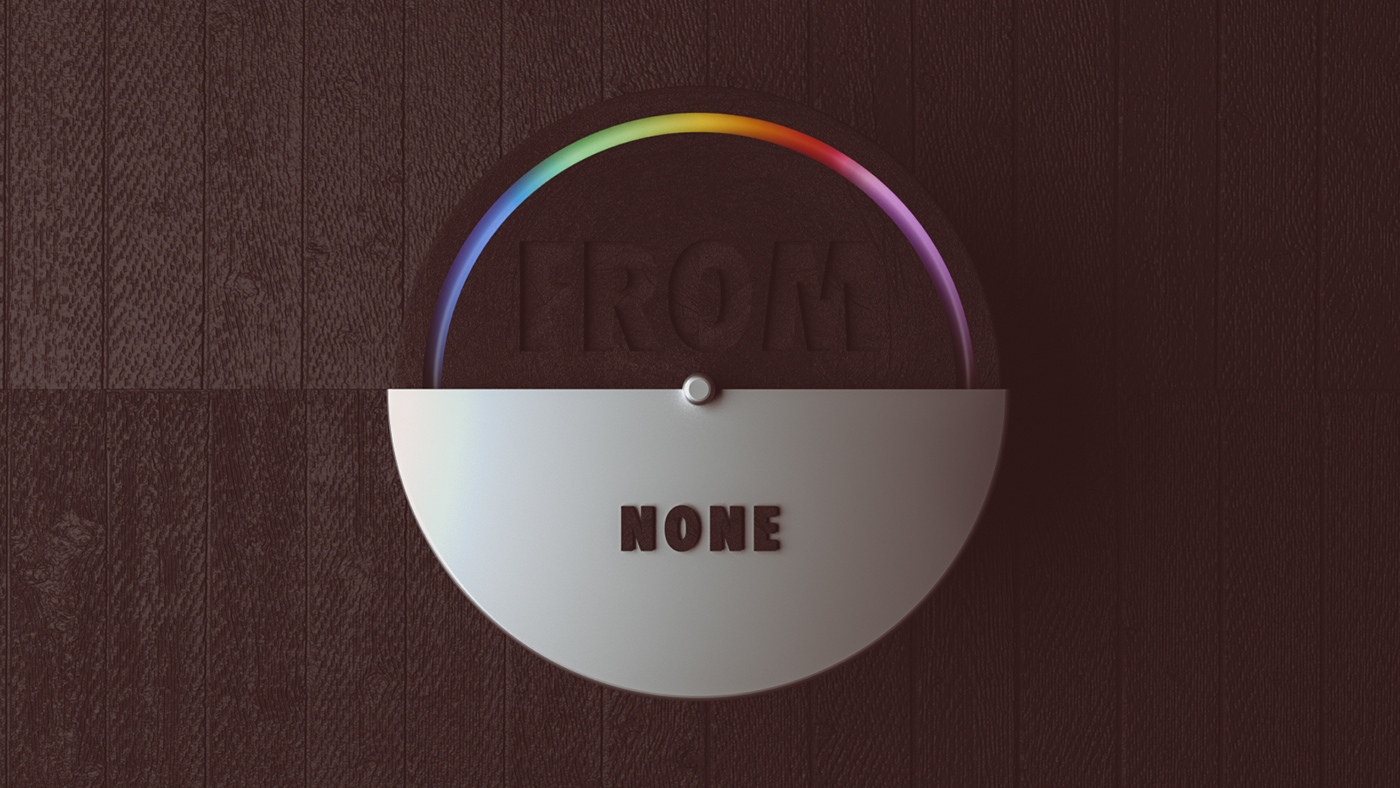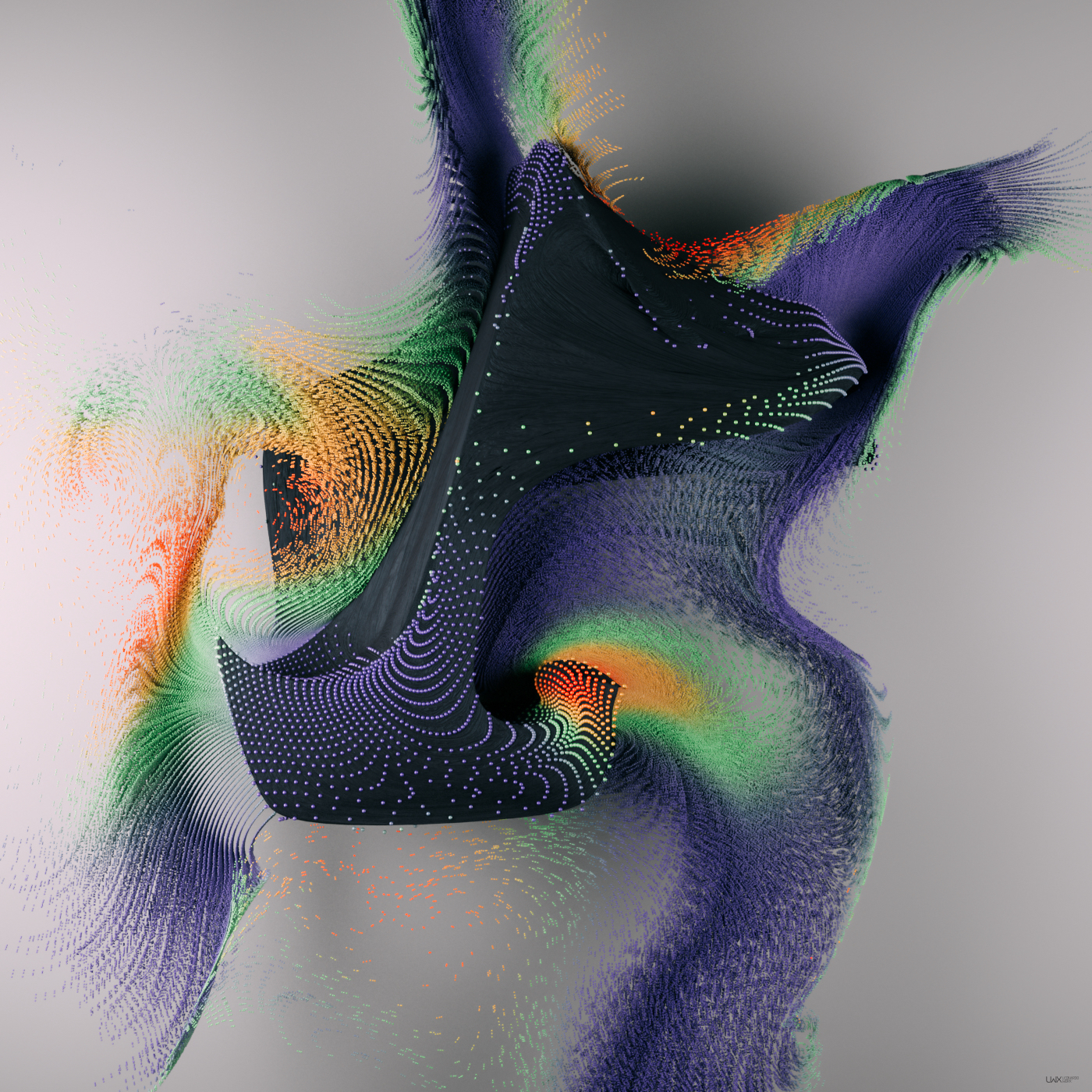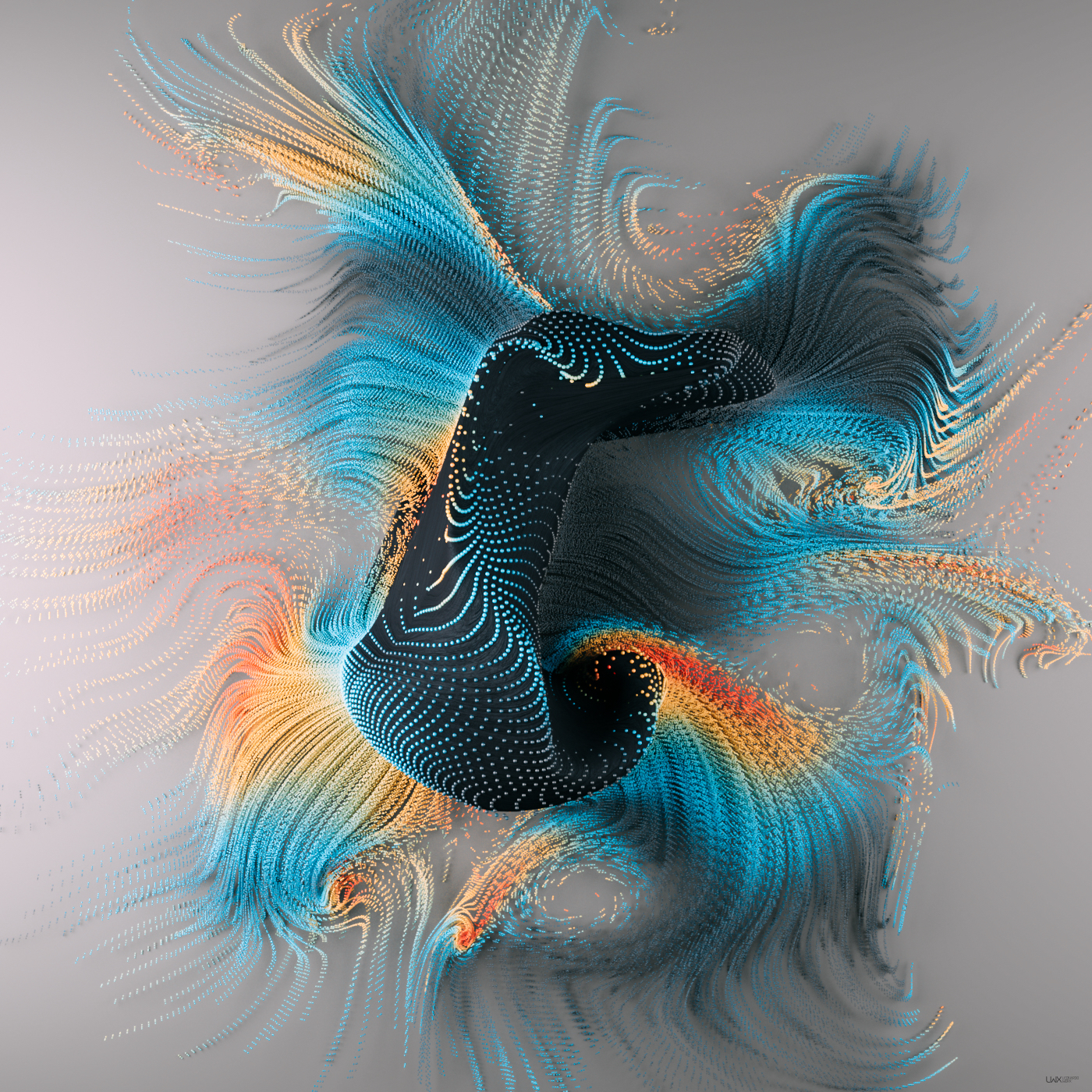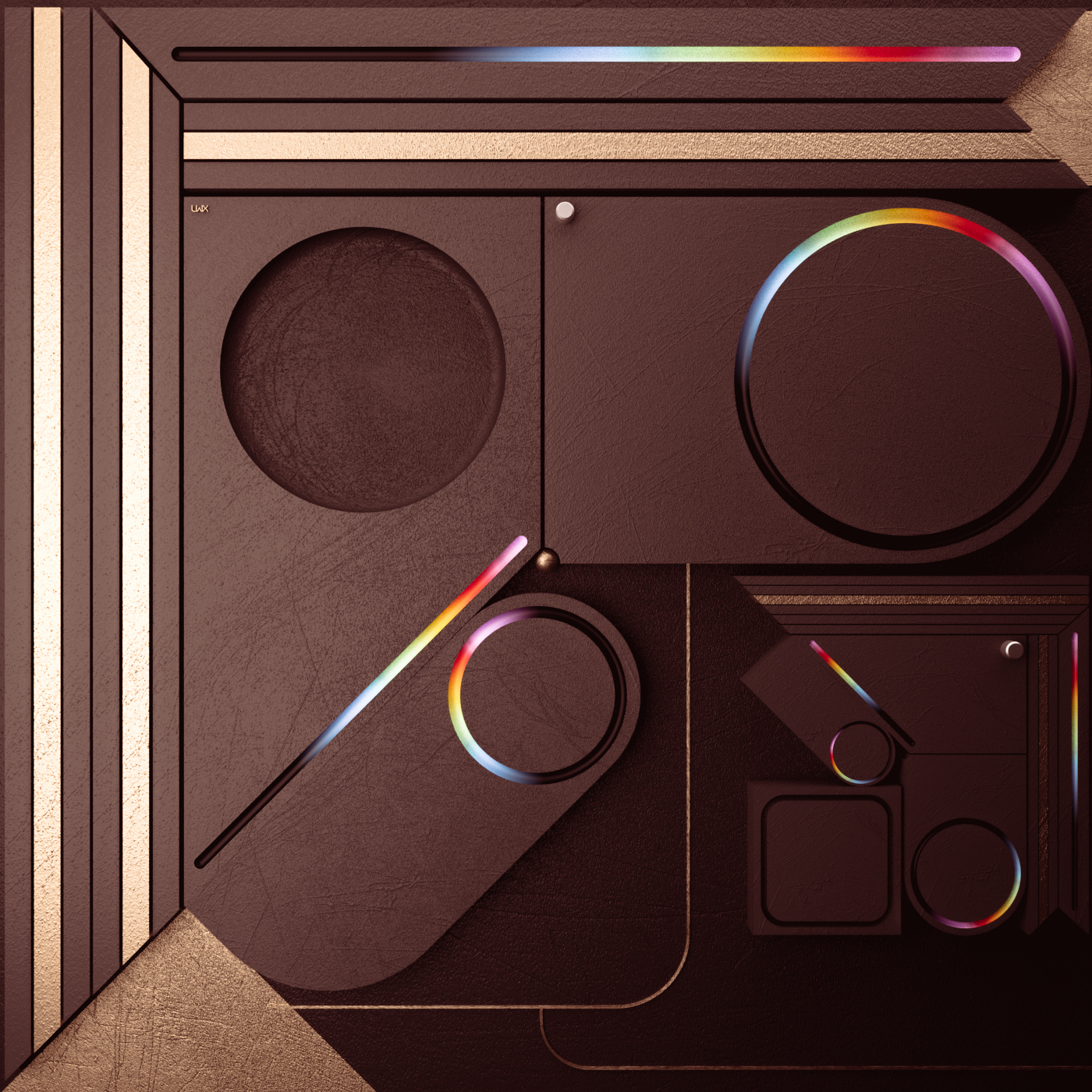Neon Puddles by Thisset
Russian digital artist and resident of our own London's Digital Decade collab, Slava Semeniuta best known as @Thisset shared his latest neon street findings
Arthur Brouthers Art
Arthur Brouthers is well known in the world of social media as a pioneer of an abstract fluid painting technique that achieves cellular like separations, with the use of acrylic paints and other chemical agents. In his figurative works, these unconventional methods are used as bottom layers or the “skins” of his subjects. Arthur uses anywhere from 4 to 15 layers of clear resin between layers of acrylic paint, pigmented inks, and spray paint to show depth, giving a 3D effect.
UPDATE by Antoni Tudisco
Antoni Tudisco (the one of Digital Decade 5 artists) released a new pack of mind-blowing CGI art he created last year for commercial and personal projects
Explore: A Visual Essay by Andres Rossi
Exploration seems to be a human compulsion, so I wanted to tell a little story in the form of a visual essay, with a few images that can each convey an emotion related to Explore, showing a progression, going from Footsteps on a trail, climbing, looking at the skies, travellling through the void of space and in the end turning to meditation, completing a full circle.
Concept Design and animation: Andres Rossi
Music & SFX: Duomoro - duomoro.com
Sculpture by Toru Kurokawa
Japanese artist Toru Kurokawa sculpts improbable liquid and biological shapes from a variety of ceramic materials. What begins life as a mere lump of clay, the artist molds and carves into artworks that appear like arrays of honeycomb, undulating coral, or dripping stalactites. Last year Kurokawa had a solo show with Sokyo Gallery titled The Savage Math, and you can see more of his work on Artsy
Lucy Hardcastle Reel
One of the Phygital Art pioneer Lucy Hardcastle (previously) released her show reel of selected works she did in 2017
Art of Light by Adela Andea
"Romanian-born artist Adela Andea creates futuristic light installations that range from wall-based works to immersive environments. The pieces appears as lit explosions, with LED lights, magnifying lenses, and flex neon springing outwards in a blend of chaos and control. Despite their composition of electrified material, each work is inspired by a natural phenomena. Andea looks to bioluminescent sea life, melting icebergs, and cosmological events to shape the composition and meaning of her large-scale installations." via Colossal
Andea is currently represented by Anya Tish Gallery in Houston and Cris Worley Fine Arts in Dallas. You can see more of her neon-based installations on her website
Moving Creates Vortices and Vortices Create Movement
"For their latest dizzying interactive installation, Japanese collective teamLab (previously) brought the ocean indoors, creating a projected environment that reacts to the movements of visitors, all encased within the infinite space of a mirror room. Titled “Moving Creates Vortices and Vortices Create Movement” the work is inspired in part by the life cycle of the ocean, particularly the movement of plankton as represented by the reactive particle effects that spin like whirlpools as you pass through the exhibition space. The speed and direction of people’s movements are all factored into the projections and in the absence of motion the room gradually reverts to darkness." via Colossal
The Vortices installation just opened at the National Gallery of Victoria in Melbourne, Australia where it will remain on view through April 15, 2018
Kirsten Beets Art
Cape-Town-rooted artist Kirsten Beets works predominantly with oil paint on paper. Her main subject is the interaction between humans and nature.
"The artist infuses observations of people and places, fleeting moments, into physical objects. She lifts their significance to touchstones of remembrance. Beets’ artworks represent the fragmentary illustrations of a shifting memory. They oscillate between the feeling of dry, heat shimmering Cape Town, geometric-shaped swimming pools and the preserved green nature of the suburban and gardens. In her paintings the artist expresses the illusionary spaces that remind of nature but are in fact fully constructed by humans. This play with illusion is substantial for Beet’s works where she comments on the interaction between humans and their environment in a bigger picture. Beets has exhibited both nationally and internationally, including the Royal Academy of Arts in London and the Scuola Internationale di Grafi in Venice, Italy. She also took part in the Cape Town and the Johannesburg Art Fairs."
Gutless Wonder
"Gutless Wonder creates eye-popping CG illustrations and 3D sculptures. With intricate patterns and vivid colours, her work brings to mind psychedelia, religious iconography and tribal art." Read full interview on Creative Review
Rubber People by Simon Christoph Krenn
"Simon Christoph Krenn’s 3D animation, Parasitic Endeavours, initially started out as the creative wanting to explore distorted perspectives on human evolution."
The result is a compilation of body parts, mainly heads and torsos, that wobble along a white backdrop and bump together like rubber mannequins. The hyperreal detail is unnerving and to see recognisable human parts being manipulated making the viewer feel both uncomfortable and mesmerised.
Words by Rebecca Fulleylove, It's Nice That
Memory Lapses by François Ollivier
Memory Lapses are temporary installations photographed by François Ollivier when he revisited places linked to strong memories, past or recent. By overexposing reflective material in the process, data becomes absent from the digital file, creating an empty zone in the image that alters reality and distorts our perception: like time and distance do.
Ceramic Donuts by Jae Yong Kim
For his ongoing series of ceramic donuts, sculptor Jae Yong Kim chooses patterns and images that evoke a sense of pop culture both past and present
“Without my intention, references to Pop Art have been a consistent occurrence throughout the entirety of the donut artworks. Questioning myself regarding the donuts falling in line with a specific genre has brought questions and need for understanding. Each individual donut has invariably read to me as a small painting; color, pattern and physicality have been the ultimate procedure for my personal expression.”
HALF&HALF Gzhel Plates
It began few years ago when Russian Design magazine AD asked 5 leading designers to come up with pilot projects to save significant local industries from dying out of ideas. We wrote about Yar Misonzhnikov reinventing Vologda lace traditions. But today we put on review the only one project went in production
That was a redesign of classic Gzhel Porcelain Ceramics by then a designer and now art-director of Strelka Institute - Anna Kulachek. In 2015 together with HALF&HALF production firm, Anna released a small bunch of desert plates HALF&KULACHEK - the modern designs that use classical Gzhel colour motifs and geometrical patterns.
This autumn, the company decided to produce a limited supply of table version plates (27.5 cm) in two colours. Next year, the brand owners intend to continue the series with the same print, as well as produce cups, sugar bowls and other objects.
KHADI by Helena Bajaj Larsen
Designer Helena Bajaj Larsen left Paris to move to New York and attended Parsons School of Design. Her focus from the start has been on textile design and the exploration of a surface through print, knit and various other techniques. Outside of school, she tried to develop textile related skills as much as she could through internships (Rohit Gandhi and Rahul Khanna, Mary Katrantzou for Embroidery, Thakoon) and workshops in India.
For her final terms in Parson she chose the topic of "khadi". Khadi constitutes an Indian homespun cotton cloth often referred to as “the fabric of social change” due to its crucial role in the Indian Independence movement led by Mahatma Gandhi. Her thesis by this very name is a contemporary take on an old story which is both close to her heart as it reflects her family history but also embodies her passionate relationship to textiles.
“I travelled to many factories and collectives studying how Khadi was made from start to finish (plucking the cotton, to weaving it and then dying it) which helped me better understand the potential of collaboration between craftsmen and designers and when the opportunity presented itself in April, I applied for a design fellowship in Haiti led by Donna Karan and in partnership with Rihanna’s Clara Lionel Foundation. Thankfully I was one of the three students they chose to go to down to Haiti for the summer to develop a range of products with the local artisans at a design training center called D.O.T located in the capital city. It was an incredible experience and ever since I have been trying to think of ways I could keep working on projects of this sort.”
Recently, Helena was shortlisted as one of the top 20 finalists for the WGSN X ARTS THREAD Future Creator Award as well as one of the five selected brands (out of 600 applicants) of the Lakmé Gen Next Mumbai Fashion Week competition. Each year they select five young designers to showcase their work among established Indian designers at the country’s largest fashion event.
Photographer: Helena Bajaj Larsen
Model: Neloufar Taheri
Styling Assistant: Mary Raggazino
BROSMIND: Working With a Brother
OFFF Festival residents BROSMIND is a creative duo of brothers Juan and Alejandro Mingarro. During his childhood, Juan and Alejandro already formed a prolific creative pair that could be considered as the germ of what is now its visual and conceptual universe. This fact personifies the essence of Brosmind, and is of great importance both in the contents that generate and in the mechanics of work.
To make a retrospective of their work BROSMIND ran the exhibition "Working with a brother" this year. The retrospective reflected on the importance of the fraternal bond that exists between the brothers and described how the present work can be considered an extrapolation of the childhood creations.
From Colors to None by Leonardoworx
In the creative industry, we are overwhelmed by abstract CGI animation, most of the times made using presets, most of the times without a concept.
FROM COLORS TO NONE is a research about 3 human steps through colours. Each step is represented by a basic geometric form: A circle, a square and a triangle. The circle is humanity, Square is coherence, Triangle is relationships. Nowadays, these 3 aspects are, day by day, chocked by our digital routine. Sometimes we feel like swimming in the sand, blinded by powder. But when it seems all black, we try to survive and research for a new balance. So we build our Color Machine from none. Cause, maybe, from none we come… and our life is 100% colourful :)
Digital Tattoos by Billelis
"A series of 3D illustrations inspired by traditional tattoo patterns. Tattoo culture has always been a fascinating environment to be part of. The skills and talents of the great traditional artists have always been a huge inspiration in my work." - Billelis
